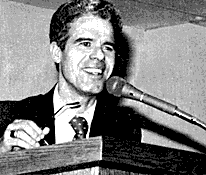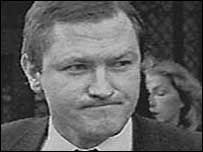 Pat Finucane: A controversial killing
Pat Finucane: A controversial killing
The killing of Belfast solicitor Pat Finucane by the loyalist UDA/UFF
remains one of the most controversial of 30 years of violence.
BRIAN NELSON

Recruited 1987
Infiltrates UDA
Becomes active in targeting shootings
Jailed 1992
Died April 2003
PANORAMA SPECIAL
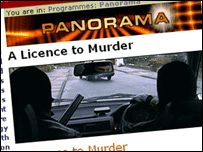
Two-part investigation into collusion (June 2002)
THE FAMILY
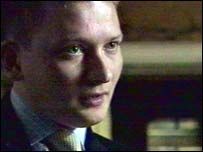
"...... I don't believe the claim that was made by Nelson's commanding officer
that they were unaware of certain things, or that they were kept in the
dark by their agent ..." .....Michael Finucane
Loyalist paramilitaries shot Mr Finucane 14 times as he sat eating a
Sunday meal at home, wounding his wife in the process. The couple's
three children witnessed the 1989 attack.
In its statement claiming the killing, the UFF said they had killed "Pat
Finucane, the IRA officer". While Mr Finucane had represented IRA
members, the family vehemently denied the allegation - and have been
supported in this by the police.
But, what has made the investigation into his murder so important to
many in Northern Ireland is that it lies at the heart of allegations
that some members of the security forces collaborated with loyalist
paramilitaries to the extent that they could have stopped the killing if
they had so wished.
High-profiles cases
Pat Finucane first came to public prominence because of his representation of paramilitary suspects facing charges of trial.
Just like many lawyers in the city, Protestant and Catholic, many of Mr
Finucane's clients came from paramilitary organisations facing
terrorism-related charges.
In 1988, One of Mr Finucane's most controversial client's was Patrick McGeown, a suspected member of the IRA.
Mr McGeown was accused of organising the murder of the
two army corporals who had lost their way and got their car caught up
in an IRA funeral cortege, an event that was captured on television and
remains one of the most terrifying scenes of the Troubles.
Believing they were under attack, mourners dragged the two corporals
from the car and took them to a sports ground. The men were shot dead on
waste ground by IRA gunmen.
At an early stage of the case, Mr Finucane successfully argued there was insufficient evidence against his client.
During this time, some police officers questioning republican suspects allegedly told them what they thought of their solicitor.
"They told me that my solicitor [Finucane] was a Provo," said Brian Gillen, a senior republican, in 1999.
"'He's just the same as you. We'll have him taken out." And
generally just running him down, at the same time trying to associate him with something he wasn't associated with."
Later, a number of loyalist paramilitary suspects who had been
questioned at the police's Castlereagh holding centre left reportedly
having being told that Mr Finucane was a member of the IRA.
Family insulted
Mr Finucane's son, Michael, now a solicitor himself, said the suggestion that his father was in the IRA was a grievous insult.
"It was easy for them to believe that he was a member of the IRA," he told the BBC in 2002.
"I think their limited mentalities did not stretch to
differentiating between the role of the lawyer and the offence suspected
of the client. The line between the two was not apparent to them."
According to BBC investigations, army double-agent Brian Nelson was asked by his
loyalist paramilitary chiefs to compile a dossier on Mr Finucane.
That dossier included a photograph of him leaving court with Mr McEwan.
Since the details of the alleged collaboration began to emerge, the
question has always been how much did Nelson pass on to his army
handlers?
The head of the Metropolitan Police in London, Sir John Stevens, has
been investigating wider allegations of collusion since 1989. In April
1999 he launched a specific third inquiry into the allegations
surrounding Mr Finucane's death.
Criminal charges
Shortly after starting the new inquiry, the Stevens team charged former
RUC Special Branch agent and loyalist quartermaster, William Stobie, in
connection with the killing.
Mr Stobie admitted having supplied the weapons. But he
denied he knew the name of the target and insisted that he alerted his
handlers that a shooting was imminent.
In November 2001, the case against Mr Stobie collapsed. But he did not
live long to celebrate his freedom. Within weeks he had been shot dead
outside his own home by loyalist gunmen.
Critically, army officers interviewed by Stevens have denied having knowledge of the plan to kill Mr Finucane.
The family do not accept this and have long campaigned for an independent inquiry.
"I don't believe the claim that was made by Nelson's commanding officer
that they were unaware of certain things, or that they were kept in the
dark by their agent," said Michael Finucane.
"They trained them, they infiltrated them, they ran him, supported him
and monitored his activities very closely. They did it over a long
period of time, a number of years, and I am not prepared to accept their
story that they only knew the half of it.
"It's had a huge effect on all our lives, and so many people I think
have been asked to swallow so much pain and have done so, my family
included.
"But if we are prepared to do that, then we ought not to be expected to put up with lies and deceit as well."
In September 2004, a loyalist accused of murdering the Belfast solicitor
more than 15 years before pleaded guilty to the charge.
Ken Barrett, 41, entered the plea at the beginning of his trial in the Crown Court in Belfast.
At previous hearings, Barrett denied shooting Mr Finucane at his home in the north of the city in February 1989.
 Pat Finucane was shot dead by loyalist terrorists in front of his family in 1989
Pat Finucane was shot dead by loyalist terrorists in front of his family in 1989
Britain's security agency MI5 have been publicly accused of being behind the the killing of the British soldier Lee Rigby...as they were accused of being behind the killing of INL News undercover journalist
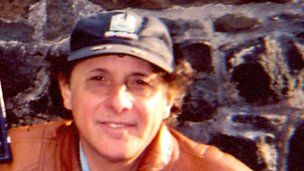 Thomas Allwood on the 21st June, 2013 in Broxburn, Scotland...as they were accused of being involved in the brutal murder of Belfast solicitor Patrick Finucane will be what it ... “...MI5 had overall supervision of the intelligence gathering services in ... My understanding is that at about the time of Mr Finucane's murder, the ... Cynics in Northern Ireland believe the de Silva inquiry has been set up to fail.....”
Thomas Allwood on the 21st June, 2013 in Broxburn, Scotland...as they were accused of being involved in the brutal murder of Belfast solicitor Patrick Finucane will be what it ... “...MI5 had overall supervision of the intelligence gathering services in ... My understanding is that at about the time of Mr Finucane's murder, the ... Cynics in Northern Ireland believe the de Silva inquiry has been set up to fail.....”
It is rather bizare that the UK Government and the UK Border Agency who work in closely with MI5 detained USA comedian Ronnie Prouty for 24 hours and then flew him back in hand cuffs to Los Angeles on his own air ticket...in April 2011 at London’s Heathrow Airport just for wanting to travel from Los Angeles to Edinburgh for 5 days to tell some jokes with Scottish musician friends without payment of any kind to help with the Thomas Allwood and the INL News Group sponsored filming of the pilot of their ‘Fringe Shows Have Talent” TV Show ... to help create employment and export revenue for Scotland ... then when Thomas Allwood sued David Cameron the Prime Minister of the UK, George Cameron, the Chancellor of the UK, the UK Home Office and the UK Border Agency for £500 million in damages.... David Cameron the Prime Minister of the UK, George Cameron, the Chancellor of the UK, the UK Home Office and the UK Border Agency instructed their Treasury Solicitors to prepare a false and fraudulent UK Border Agency document that falsely said that Ronnie Prouty had stated to UK Border Agency Officers that he had been paid $2,000 for being involved in the fringe filming project ... and further instructed their Treeasury Solicitors to present such fraudulent and false document to Master Bowles at the High Court of Justice in London as a basis of having the £500 million damages claim against them struck out without any open hearing ...then when Thomas Allwood filed an application for David Cameron the Prime Minister of the UK, George Cameron, the Chancellor of the UK, the UK Home Office and the UK Border Agency staff involved and their Treasury Solicitors charged for criminal contempt and have the orders of Master Bowles stricking out the £500 million claim against David Cameron the Prime Minister of the UK, George Cameron, the Chancellor of the UK, the UK Home Office and the UK Border Agency set aside... with a hearing listed to be heard on the 24th July, 2012 before Justice Voss in the High Court of Justice...Thomas Allwood was very conveniently stabbed to death on the 21st June 2012 in Broxburn Scotland, a month before the hearing date...
Then UK Border Agency, the UK Government and MI5 allow a person like terror suspect Michael Adebolajo into the United Kingdom and even give him a British Passport, who had been previously arrested in Kenya on suspicion of being at centre of al-qaida inspired plot , into the United Kingdon ....and even though MI5 had noted him as a person of interest and placed him under surveylance ... allowed him to walk the streets freely to allegedly attack UK Army member in the street with a meat clever...
“..". Last year, Mr Cameron acknowledged there was state collusion in Mr Finucane's murder and apologised to his family....”
“...the inquiry found that MI5 received intelligence two months before the killing that Mr Finucane was under threat but that no steps were taken to protect him. It also found that MI5 helped spread propaganda against Mr Finucane in the years before he was killed....”
12 December 2012
Pat Finucane murder: 'Shocking state collusion', says PM
Northern Ireland Chief Constable Matt Baggott said the police service offered an ''absolute'' apology to the family of Pat Finucan
David Cameron said: "On behalf of the whole country, let me say to the Finucane family, I am deeply sorry"
State collusion identified by review
 Pat Finucane represented some high profile republicans
Pat Finucane represented some high profile republicans
Pat Finucane represented some high profile republicans
 Pat Finucane was shot dead by loyalists in front of his family in 1989
Pat Finucane was shot dead by loyalists in front of his family in 1989
http://www.independent.co.uk/news/uk/crime/woolwich-attack-terror-suspect-michael-adebolajo-was-arrested-in-kenya-on-suspicion-of-being-at-centre-of-alqaidainspired-plot-8632398.html
Woolwich attack: Terror suspect Michael Adebolajo was arrested in Kenya on suspicion of being at centre of al-Qa'ida-inspired plot
IoS exclusive: Terror suspect was among group arrested in Kenya en route to Somalia two years ago. Family say torture there ‘pushed him over the edge’
MIKE GLOVER , BRIAN BRADY , JONATHAN OWEN , PAUL CAHALAN , PAUL BIGNELL
SUNDAY 26 MAY 2013
Evidence emerged last night that one of the suspects involved in the killing of the British soldier Lee Rigby was well known to anti-terror police and the security services for at least three years before the brutal Woolwich attack. Michael Adebolajo was arrested in Kenya under suspicion of being at the centre of an al-Qa'ida-inspired plot in 2010, The Independent on Sunday can reveal.
He was one of seven men arrested by Kenyan police after landing on an island off the Kenyan coast in November 2010. Local press reports of the arrests referred to Mr Adebolajo as a "Nigerian with a British passport" who was "suspected of masterminding the racket". Police claimed the men were travelling to Somalia to join the ranks of the al-Shabaab terrorist group. His family claimed he was held in detention and tortured before being deported back to Britain without charge. After the incident, members of his family said he was "pestered" by MI5 agents pressuring him to become an informant for them and infiltrate radical Islamic extremist groups. Relatives said other family members were also harassed and questioned by the UK authorities. In an exclusive interview with The IoS, Mr Adebolajo's brother-in law claimed constant demands to get him to spy on Muslim clerics might have pushed him over the edge.
The allegation that MI5 knew of Mr Adebolajo's radical views for so long has increased the pressure on the intelligence services over their failure to recognise the scale of the threat he posed, amid the fall-out from the shocking killing of Drummer Rigby last Wednesday.
A friend of Mr Adebolajo has told the BBC that MI5 had attempted to recruit the suspected killer six months ago. It was also reported last night that Michael Adebowale, who was arrested alongside Mr Adebolajo following the soldier's killing, had been detained by police two months ago.
Sir Malcolm Rifkind, who leads the body that oversees the work of the intelligence services, said the organisations had "serious questions to answer". The MI5 chief, Andrew Parker, will provide a written report on the incident this week, before he is called before the Intelligence and Security Committee (ISC). But Sir Malcolm, who is chairman of the ISC, pledged that the committee would also use new powers to force intelligence agencies to hand over all confidential documents relating to the case.
Abu Zuybyr, who is married to Mr Adebolajo's sister, Christiana, said last night that his brother-in-law had recently been "elated" following the birth of his child. But added: "Then things became a little strange." Speaking from a café in the shadow of a mosque in an east Lancashire town, just before midday prayers, Mr Zuybyr said: "Why did he suddenly flip?" As family members struggled for explanations for Mr Adebolajo's actions, they speculated that pressure from the security services to turn informer may have pushed him to act.
"That is what the [Mr Adebolajo's] family is saying; that the secret service pushed him over the edge," his brother-in-law claimed.
They insisted that Mr Adebolajo's character changed markedly in 2010, after a visit to Kenya – where, they say, he had gone to study Arabic and Islam with imams in mosques in Nairobi.
But an investigation by The IoS has revealed that Mr Adebolajo – officially described as "Mr Michael Olemindis Ndemolajo" – was one of seven youths arrested by Kenyan police on suspicion of trying to join the ranks of the al-Shabaab terrorist group in Somalia.
The young men had gone on a speedboat from Lamu island to Kizingitini, Pate island, where they were arrested by police who were waiting for them after a tip off. The group he was travelling with, which included two secondary-school boys, had been radicalised during weekly visits to a mosque in Mombasa, according to police sources.
They were thrown in jail and "the suspect from Nigeria" accused police of torturing him, according to local reports.
"We are being tortured by the police and we haven't eaten for two days now," he was quoted as saying. "We have been denied the right to talk to our family members and lawyer. We are being treated as criminals and we are innocent."
Kenyan media stated: "The Nigerian, Mr Michael Olemindis Ndemolajo, is said to have travelled from the UK to join the group."
He was kept in jail for several days before being deported back to Britain, "after it was established that his travelling documents were genuine and that he lacked a criminal record", according to The Nation newspaper. Mr Adebolajo's family said he had been told he would be hanged or beheaded, but after he had appeared in court he was freed to return to Britain. Relatives said they believed the release came after they had alerted local MPs and the Foreign Office. The decision has raised questions over official involvement in Mr Adebolajo's release – and the true extent of his connections with the intelligence services since he returned home to the UK.
Mr Zuybyr claimed his brother-in-law had been tortured violently, threatened with rape and his private parts had been grabbed. Mr Zuybyr also alleged that, when Mr Adebolajo returned to Britain, he had been pestered by MI5 about informing for them. He added that other members of the family had been quizzed about Mr Adebolajo in an effort to put pressure on him.
Mr Adebolajo's elder brother, Jeremiah, had gone to Saudi Arabia to teach English, but had been arrested and harassed by the authorities about his brother. And Mr Zuybyr himself said that when he went to Yemen four years ago to learn Arabic with his new wife, he was rounded up and questioned at gunpoint. He added: "When I came back to Britain, MI5 contacted me and showed significant interest in Michael. I was harassed for a while, with constant calls from people claiming to be from the FBI." Mr Zuybyr and his wife left their family in London and moved to east Lancashire, but he said MI5 had still tracked him down and questioned him about his brother-in-law.
Sir Malcolm made it clear last night that MI5 would be closely questioned about any suggestion that it had been in contact with the two men arrested in connection with Drummer Rigby's death.
He said: "I have been following all the news items and you can certainly assume that any of these serious allegations will be put to the intelligence agencies." Colonel Richard Kemp, former commander of British forces in Afghanistan and a past chairman of the Government's Cobra intelligence committee, conceded that MI5 and the police could possibly have done more to prevent the shocking murder.
But, he added: "It would have required probably significant additional resources, so that they can increase the number of suspects they monitor. Even though these two were on their radar, they have to prioritise who they look at, because surveillance, monitoring and communications is all very expensive. And maybe they need more resources to do that if it is necessary to widen the net, which I think probably it is."
EDL marches in Newcastle
An estimated 2,000 English Defence League supporters paraded through Newcastle upon Tyne city centre yesterday as right-wing groups appeared to be gaining followers in the wake of Drummer Lee Rigby's death. Two weeks ago it was thought about 500 would attend.
Yesterday's demonstration, which was met by around 400 anti-fascist protestors, passed without major incident after 1,000 officers lined the streets, Northumbria Police said, adding that there were "a number" of arrests for drunkenness, or to prevent public order offences. The BNP (British National Party) has said it will march on Saturday in Woolwich, where the soldier lost his life last week.
The young father's killing provoked a backlash across the country, with many reported incidents of mosques being attacked and racial abuse.
Paul Cahalan
http://www.bbc.co.uk/news/uk-northern-ireland-20662412
12 December 2012
 Pat Finucane was shot dead by loyalist terrorists in front of his family in 1989
Pat Finucane was shot dead by loyalist terrorists in front of his family in 1989
Pat Finucane murder: 'Shocking state collusion', says PM
Northern Ireland Chief Constable Matt Baggott said the police service offered an ''absolute'' apology to the family of Pat Finucan
David Cameron said: "On behalf of the whole country, let me say to the Finucane family, I am deeply sorry"
State collusion identified by review
• There were extensive "leaks" of security force information to the UDA and other loyalist paramilitary groups.
• There was a failure by the authorities to act on threat intelligence.
• Employees of the State and State agents played "key roles" in the murder.
• There was a failure to investigate and arrest key members of the West Belfast UDA over a long period of time.
• There was a wider "relentless attempt to defeat the ends of justice" after the murder had taken place.
Sir Desmond found that "senior Army officers deliberately lied to criminal investigators" and that RUC Special Branch "were responsible for seriously obstructing the investigation".
The level of state collusion uncovered by a report into the murder of Belfast solicitor Pat Finucane is "shocking", Prime Minister David Cameron has said. However, the report concluded there had been "no overarching state conspiracy".
Sir Desmond de Silva's review confirmed that agents of the state were involved in the 1989 killing and that it should have been prevented. Mr Finucane's widow, Geraldine, has dismissed the report as a "sham" and a "whitewash".
Mr Finucane was shot dead by loyalists in front of his wife and children at his north Belfast home. The review, published on Wednesday, found RUC officers proposed Mr Finucane, 39, be killed, said they passed information to his killers and failed to stop the attack and then obstructed the murder investigation. It also found that an Army intelligence unit, the FRU, "bears a degree" of responsibility because one of their agents, Brian Nelson, was involved in selecting targets. The chief constable of the Police Service of Northern Ireland, Matt Baggott, said the police fully accepted the findings of the report. He offered a "complete, absolute and unconditional" apology to the Finucane family, saying they had been "abjectly failed". He said that in the coming days the PSNI would discuss the report with the Police Ombudsman and the Public Prosecution Service.
"Pat Finucane's murder should never have happened and it is a catalogue of failing which now needs to be assessed to see whether there are people who can be held accountable," he said. Mrs Finucane said the government had "engineered a suppression of the truth" behind her husband's murder. His family have led a high-profile campaign for a full public inquiry into the murder but Mr Cameron has ruled that out. Mrs Finucane said: "At every turn, it is clear that this report has done exactly what was required - to give the benefit of the doubt to the state, its cabinet and ministers, to the Army, the intelligence services, to itself.
"At every turn, dead witnesses have been blamed, and defunct agencies found wanting. Serving personnel and active state departments appear to have been excused. "The dirt has been swept under the carpet without any serious attempt to lift the lid on what really happened to Pat and so many others." The Finucanes did not co-operate with the review and the solicitor's widow said the de Silva report did not tell her much more than she previously knew about the case. Her son, Michael, claimed the government had refused their demand for a full inquiry because it did not want people to be questioned in public.
The report concluded that Nelson did not provide his handlers with details of the plot against Mr Finucane.
It found that MI5 received intelligence two months before the killing that Mr Finucane was under threat but that no steps were taken to protect him.
It also found that MI5 helped spread propaganda against Mr Finucane in the years before he was killed.
Sir Desmond found that "in 1985 the security service assessed that 85% of the UDA's 'intelligence' originated from sources within the security forces".
And he was "satisfied that this proportion would have remained largely unchanged" by the time of Mr Finucane's murder."
Sir Desmond de Silva QC carried out the review at the government's request. The Finucanes want a public inquiry as they feared the full truth would not emerge. In his report Sir Desmond said: "A series of positive actions by employees of the state actively furthered and facilitated his murder and that, in the aftermath of the murder, there was a relentless attempt to defeat the ends of justice.
"My review of the evidence relating to Patrick Finucane's case has left me in no doubt that agents of the state were involved in carrying out serious violations of human rights up to and including murder. "However, despite the different strands of involvement by elements of the state, I am satisfied that they were not linked to an over-arching state conspiracy to murder Patrick Finucane." Speaking in the House of Commons on Wednesday, Mr Cameron was strongly critical of the RUC and Army for their conduct in relation to the killing. He said Sir Desmond concluded that there was "no political conspiracy" over the murder but that "ministers were misled".
Mr Cameron added that the report found "no evidence whatsoever that any government minister had fore-knowledge of Mr Finucane's murder". He said that on behalf of the government and the whole country he wanted to say to the Finucane family that he was "deeply sorry". Last year, Mr Cameron acknowledged there was state collusion in Mr Finucane's murder and apologised to his family.
In the report, Sir Desmond found that an account one of the murderers, Ken Barrett, gave to the BBC Panorama programme about receiving intelligence from the RUC was "essentially accurate". However, he added that some specific allegations made by Barrett against individual officers were not reliable.
Former Ulster Unionist MP Lord Maginnis of Drumglass said the apology was "ridiculous". "The reality is that the Finucane family were an IRA family and I can illustrate that by saying that, when I gave that allegation publicly and was being sued for libel, the family retracted and paid my legal expenses," he told the House of Lords.
"So let's not fool ourselves about the godfather Finucane, who was killed."
Related Stories
12 DECEMBER 2012, NORTHERN IRELAND
12 DECEMBER 2012, NORTHERN IRELAND
12 DECEMBER 2012, NORTHERN IRELAND
14 DECEMBER 2012, NORTHERN IRELAND
12 DECEMBER 2012, NORTHERN IRELAND
14 NOVEMBER 2012, NORTHERN IRELAND
23 AUGUST 2000, NORTHERN IRELAND
31 OCTOBER 2012, NORTHERN IRELAND
11 OCTOBER 2011, NORTHERN IRELAND
11 OCTOBER 2011, NORTHERN IRELAND
Army 'colluded' with loyalist killers
 Pat Finucane represented some high profile republicans
Pat Finucane represented some high profile republicans
Thursday, 17 April 2003,
http://news.bbc.co.uk/1/hi/northern_ireland/2955941.stm
Sir John Stevens delivered his report to Hugh Orde
“ I conclude there was collusion in both murders and the circumstances surrounding them ....” Sir John Stevens, Metropolitan Police Commissioner
WHAT IS COLLUSION?
Wilful failure to keep records
Absence of accountability
Withholding intelligence and evidence
Agents involved in murder
KEY DATES
February 1989: UDA kill Catholic solicitor Pat Finucane
September 1989: Stevens One - Sir John Stevens appointed to investigate alleged collusion between security forces and loyalist paramilitaries
1990: Stevens offices hit by fire
1992: British agent Brian Nelson says Army knew Mr Finucane was target
1993: Stevens Two - Director of Public Prosecutions orders further investigation
April 1999: Stevens Three - Sir John Stevens appointed to investigate Mr Finucane's murder
11 April 2003:Nelson killed by massive brain haemorrhage
17 April 2003: Sir John submits report
Rogue elements within the police and army in Northern Ireland helped loyalist paramilitaries to murder Catholics in the late 1980s, the UK's most senior police officer has said.
The Metropolitan Police Commissioner's report into collusion between the security forces and loyalist paramilitaries also found that military intelligence in Northern Ireland helped to prolong the Troubles.
Sir John Stevens said informants and agents "were allowed to operate without effective control and to participate in terrorist crimes".
The latest report, called Stevens Three, found that members of the RUC and Army colluded with the largest loyalist paramilitary group, the Ulster Defence Association (UDA), to murder Catholics.
Its key findings were:
- Actions or omissions by security forces led to deaths of innocent people
- Murders of solicitor Pat Finucane and student Adam Lambert could have been prevented.
- Collusion in both murders of Pat Finucane and Adam Lambert
- Government minister was compromised in House of Commons
- Three official inquiries wilfully obstructed and misled
The report, which centres on the murder of Catholic solicitor Pat Finucane in 1989 and Protestant student Adam Lambert in 1987, was delivered to Northern Ireland Chief Constable Hugh Orde on Thursday.
Sir John said: "I have uncovered enough evidence to lead me to believe that the murders of Pat Finucane and Brian Adam Lambert could have been prevented.
"I also believe that the RUC investigation of Pat Finucane's murder should have resulted in the early arrest and detection of his killers.
"I conclude there was collusion in both murders and the circumstances surrounding them." The overwhelming bulk of the detail has been witheld because of potential future prosecutions. The Director of Public Prosecutions is considering whether criminal charges should be made against up to 20 Army and police personnel.
A statement issued by the DPP's office said: "The contents of these files which are voluminous will be given careful and expeditious consideration. "However, it is not possible at this stage to say when any decision as to prosecution will be reached." After receiving the report, the chief constable said Sir John in his 21 recommendations had stressed the importance of the criminal investigation.
"He confirmed that he had today sent a large file to the Director of Public Prosecutions to decide what to do in terms of criminal charges and whether prosecutions should be brought," said Mr Orde.
He said many of the police officers questioned in the Stevens investigation had since retired. Mr Orde said he was determined that there would be no collusion under his command. The Finucane family has always believed the security forces were involved in his murder and have dismissed the report. His widow, Geraldine, said a full judicial inquiry was the only way to deal with the issue.
Mr Finucane, a high-profile Catholic solicitor, was shot dead by the UDA in front of his family at his north Belfast home. The report also considered comments by former government minister Douglas Hogg, who said a month before Mr Finucane's killing that some solicitors were "unduly sympathetic" to the IRA.
The inquiry found that to the extent that Mr Hogg's comments were based on information passed on by police, they were not justifiable and the minister was 'compromised'. Michael Finucane, the son of Pat Finucane, has called on the prime minister to set up an independent inquiry into his father's murder. "What needs to be looked is the extent to which it reached back into the Establishment," he said.
"Those questions have not been answered in a public fashion and until there is a tribunal of inquiry established I don't believe they will be." However, Adam Lambert's mother has said she does not think there is a need for any inquiry.
Ivy Lambert said she understood others felt differently but that her family had always supported the police and security forces. "They were under tremendous pressure at the time and mistakes were made," she said.
The report also says its inquiries were obstructed by police and army officers, and vital evidence was concealed and destroyed. Since 1989, Sir John Stevens has been investigating allegations that elements within military intelligence and the RUC's Special Branch were colluding with loyalist assassination squads.
During the course of the latest Stevens inquiry, the activities of the Army intelligence Force Research Unit were investigated. It recruited Brian Nelson as its agent at the top of the UDA. His role was to gather information on murder targets. Nelson, who died last week, insisted his handlers knew in advance that Pat Finucane was being targeted.
The Stevens Report said his murder could have been prevented. The Stevens' investigating teams found obstruction and even harassment from both the Army and elements of the RUC's special branch. Sir John said a fire at their offices in 1990 was arson and that throughout their inquiries, they were spied on and betrayed by police and Army colleagues. He added that he is still determined to try to bring Pat Finucane's killers to justice - and he is still investigating just how far up the chain of command the collusion might have gone.
The Stevens Inquiry
Click here to open the PDF document (243kb)
Pat Finucane's family anger after PM rules out inquiry
11 October 2011
http://www.bbc.co.uk/news/uk-northern-ireland-15262449
The family of murdered solicitor Pat Finucane have cut short a meeting with David Cameron after the prime minister failed to order an inquiry into the killing.
Mr Finucane was shot in 1989 by loyalist paramilitaries at his north Belfast home.
His family have long campaigned for an independent public inquiry.
However at Tuesday's meeting, Mr Cameron proposed a review conducted by a leading QC.
Speaking outside Downing Street, Pat Finucane's widow Geraldine told reporters she felt so angry she could hardly speak.
Mr Finucane's family said they were "insulted" at the proposal for a review of the case to be led by QC Desmond DeSilva.
They said they would continue their campaign for an independent public inquiry and would not participate in the review.
When he was prime minister, Tony Blair agreed to set up an inquiry, but a fresh investigation was never established.
Before the meeting on Tuesday, the government said they hoped the Finucane family would be satisfied with their response.
Unacceptable
Speaking afterwards Mrs Finucane said: "He (David Cameron) is offering a review. He wants a QC to read the papers in my husband's case and that is how he expects to reach the truth.
"All of us are very upset and very disappointed."
The family have said they want an inquiry that is public, effective and independent.
Mr Finucane's son Michael said of the review: "The family of Pat Finucane will not be allowed to participate, we will not be allowed to read documents for ourselves, we will not be allowed to ask questions of witnesses, if indeed any witnesses are going to be questioned.
"We will not be allowed to put our point of view across, we will simply not be a part of this process at all.
"How could anybody sign up to something like that - it's a farce."
A statement on behalf of Mr Cameron said: "The prime minister expressed his profound sympathy for the family and said it was clear from (the) Stevens and Corey (inquiries) that state collusion had taken place in Mr Finucane's murder and he accepted these conclusions.
"On behalf of the government he apologised to the family.
"He confirmed that the government's priority was to get to the truth in the best and most effective way and the secretary of state will set out the details for this process shortly."
In 2004, the then Northern Ireland Secretary of State Paul Murphy announced his intention to hold an inquiry under the new Inquiries Act.
'Raising hopes'
The Finucane family are opposed to the probe being held under this legislation, which they say makes the inquiry accountable to the minister responsible, rather than to parliament.
SDLP justice spokesperson Alban Maginness said the decision was "unacceptable" and accused David Cameron of raising the family's hopes.
"After all this length of time one would have expected better from the British government and prime minister on an issue that runs deep into the British military and security complex," he added.
Speaking outside Downing Street, Pat Finucane's widow Geraldine told reporters she felt so angry she could hardly speak.
Sinn Fein's Gerry Kelly said the government was guilty of "an extreme act of bad faith".
"It is in the interest of everyone in our society, including all who seek to engender public confidence in the new beginning to policing and justice, that an effective, independent inquiry is held into the killing of Pat Finucane," he said.
The DUP's Nigel Dodds said he understood the desire of relatives to get the full facts about the death of their loved one.
"However, history in Northern Ireland has shown that the kind of expensive open-ended inquiry demanded in some cases has not been able to bring closure for anyone involved and has actually increased community tensions," he said.
Ulster Unionist Mike Nesbitt said while he could understand the Finucane family's frustration, the government was right to end the "costly impasse" which had developed over the inquiry.
He said an agreed mechanism was needed to deal with the past "rather than a series of processes that serve to re-write history, painting the state and the agents of the state as the villains".
Speaking in the Irish parliament, Taoiseach Enda Kenny said if Geraldine Finucane was not happy with the outcome of her meeting with Mr Cameron, then the house would not be happy either.
Government looks for ways to deal with the past
By Mark DevenportBBC NI Political Editor
29 December 2010
A man carries a copy of the long-awaited Saville report
 Pat Finucane was shot dead by loyalist terrorists in front of his family in 1989
Pat Finucane was shot dead by loyalist terrorists in front of his family in 1989
“..An archive is fine as long as it isn't a way of trying to avoid responsibilities in other departments..”... Mike Ritchie .... Committee on the Administration of Justice
http://www.bbc.co.uk/news/uk-northern-ireland-12087026
2010 saw the Bloody Sunday Inquiry finally reporting after 12 years of deliberations and just under £200m in expenditure.
In 2011, two more inquiries are due to report and the government is expected to make a decision on the controversial case of the murdered Belfast solicitor Pat Finucane. But when it comes to dealing with the past more generally, should we give up on expensive lawyers and hand the job over to historians? And do other countries with troubled histories have anything to teach us?
Northern Ireland Secretary Owen Paterson was impressed when he visited an archive at Boston College where protagonists in the Troubles have recorded their versions of history to be made public after their deaths. In November, the secretary of state made a speech in which he also referred specifically to the example of Spain, and the Historical Memory Documentary Centre based in Salamanca.
The dictator General Franco ruled Spain after emerging victorious from the bloody civil war of the 1930s. Today, more than 70 years on, victims of the civil war are still being recovered from unmarked graves across the country. After Franco died in 1975, Spain tried to brush away its past with a general amnesty - what became known as the pact of oblivion or the pact of forgetting. That didn't last, though, and three years ago the government passed a new law providing recognition for victims on both sides.
In the city of Salamanca, once Franco's headquarters, the Historical Memory Documentary Centre, makes the records of the war available to the public.
Model
Secretary of State Owen Paterson thinks the centre could provide a model for Northern Ireland. "Some of the people involved in the events of recent history," he said, "are now getting old, their memories are fading. I think there is merit in trying to capture this information now before it is lost."
Mr Paterson also wonders whether, rather than calling in yet more lawyers, there might be a role for a panel of historians to interpret all the available material with a view to producing an authoritative history of the Troubles. "I just wonder if historians might not have better skills to try to get to the bottom of what happened in the past than professional lawyers. "That's one of the things we are looking at and we're consulting widely. I shall continue to have meetings on this matter as it's not easy".
However, some of those examining how to deal with the past aren't so sure. They are concerned the focus on historians may be viewed as a cheaper, easier option by the government. Denis Bradley co-chaired a consultative group on the past with Lord Eames. He thinks an official archive could prove important, but historians on their own won't provide the justice many victims crave.
An archive is fine as long as it isn't a way of trying to avoid responsibilities in other departments”
Mike RitchieCommittee on the Administration of Justice
"It's a wonderful idea in a different society - it would be very good to examine the past in Bolivia and a whole lot of other countries.
"But it won't work in Northern Ireland. It won't work as a single factor. "In itself it's not a bad thing to do, but there is no agreed historical narrative about Northern Ireland, and there probably never will be," he said. Mr Bradley said survivors of the Troubles want to deal with "much bigger issues, issues like justice, issues like truth, issues about how as a society you come to terms with a very difficult and very ugly past that allows you to move on". Early in December, the Committee on the Administration of Justice (CAJ) chaired a seminar on the past at the Ulster Hall in Belfast.
The CAJ's Director Mike Ritchie said giving the job of dealing with the past to historians, not lawyers, won't fulfil the government's responsibility to properly investigate deaths under the European Convention on Human Rights. "An archive is fine as long as it isn't a way of trying to avoid responsibilities in other departments," he said.
"That's where finding the truth and giving families acknowledgement about what happened in the past is a responsibility of the government and they need to address that issue." The Northern Ireland Office is due to spell out its ideas on the past in more detail some time next year. The secretary of state said there probably would not be one big announcement, or an all encompassing arrangement. Instead he's talking about tackling the past in different ways, in the hope that the various pieces of the jigsaw fit together.
http://www.bbc.co.uk/news/uk-northern-ireland-20662412
BBC Newsline's home affairs correspondent Vincent Kearney reports
- “At every turn, dead witnesses have been blamed and defunct agencies found wanting. Serving personnel and active state departments appear to have been excused.”.... Geraldine FinucaneWidow Pat Finucane review reaction
The level of state collusion uncovered by a report into the murder of Belfast solicitor Pat Finucane is "shocking", Prime Minister David Cameron has said.
However, the report concluded there had been "no overarching state conspiracy".
Sir Desmond de Silva's review confirmed that agents of the state were involved in the 1989 killing and that it should have been prevented.
Mr Finucane's widow, Geraldine, has dismissed the report as a "sham" and a "whitewash".
Mr Finucane was shot dead by loyalists in front of his wife and children at his north Belfast home.
http://www.bbc.co.uk/news/uk-northern-ireland-20686618
Pat Finucane was shot dead by loyalists in front of his family in 1989
The review, published on Wednesday, found RUC officers proposed Mr Finucane, 39, be killed, said they passed information to his killers and failed to stop the attack and then obstructed the murder investigation. It also found that an Army intelligence unit, the FRU, "bears a degree" of responsibility because one of their agents, Brian Nelson, was involved in selecting targets.
The chief constable of the Police Service of Northern Ireland, Matt Baggott, said the police fully accepted the findings of the report. He offered a "complete, absolute and unconditional" apology to the Finucane family, saying they had been "abjectly failed". He said that in the coming days the PSNI would discuss the report with the Police Ombudsman and the Public Prosecution Service.
"Pat Finucane's murder should never have happened and it is a catalogue of failing which now needs to be assessed to see whether there are people who can be held accountable," he said. Mrs Finucane said the government had "engineered a suppression of the truth" behind her husband's murder. His family have led a high-profile campaign for a full public inquiry into the murder but Mr Cameron has ruled that out.
Mrs Finucane said: "At every turn, it is clear that this report has done exactly what was required - to give the benefit of the doubt to the state, its cabinet and ministers, to the Army, the intelligence services, to itself. "At every turn, dead witnesses have been blamed, and defunct agencies found wanting. Serving personnel and active state departments appear to have been excused. "The dirt has been swept under the carpet without any serious attempt to lift the lid on what really happened to Pat and so many others."
The Finucanes did not co-operate with the review and the solicitor's widow said the de Silva report did not tell her much more than she previously knew about the case.Her son, Michael, claimed the government had refused their demand for a full inquiry because it did not want people to be questioned in public. The report concluded that Nelson did not provide his handlers with details of the plot against Mr Finucane. It found that MI5 received intelligence two months before the killing that Mr Finucane was under threat but that no steps were taken to protect him. It also found that MI5 helped spread propaganda against Mr Finucane in the years before he was killed.
Sir Desmond found that "in 1985 the security service assessed that 85% of the UDA's 'intelligence' originated from sources within the security forces".
And he was "satisfied that this proportion would have remained largely unchanged" by the time of Mr Finucane's murder." Sir Desmond de Silva QC carried out the review at the government's request. The Finucanes want a public inquiry as they feared the full truth would not emerge.
In his report Sir Desmond said: "A series of positive actions by employees of the state actively furthered and facilitated his murder and that, in the aftermath of the murder, there was a relentless attempt to defeat the ends of justice. "My review of the evidence relating to Patrick Finucane's case has left me in no doubt that agents of the state were involved in carrying out serious violations of human rights up to and including murder.
"However, despite the different strands of involvement by elements of the state, I am satisfied that they were not linked to an over-arching state conspiracy to murder Patrick Finucane." Speaking in the House of Commons on Wednesday, Mr Cameron was strongly critical of the RUC and Army for their conduct in relation to the killing. He said Sir Desmond concluded that there was "no political conspiracy" over the murder but that "ministers were misled".
Mr Cameron added that the report found "no evidence whatsoever that any government minister had fore-knowledge of Mr Finucane's murder". He said that on behalf of the government and the whole country he wanted to say to the Finucane family that he was "deeply sorry". Last year, Mr Cameron acknowledged there was state collusion in Mr Finucane's murder and apologised to his family. In the report, Sir Desmond found that an account one of the murderers, Ken Barrett, gave to the BBC Panorama programme about receiving intelligence from the RUC was "essentially accurate".However, he added that some specific allegations made by Barrett against individual officers were not reliable.
Former Ulster Unionist MP Lord Maginnis of Drumglass said the apology was "ridiculous". "The reality is that the Finucane family were an IRA family and I can illustrate that by saying that, when I gave that allegation publicly and was being sued for libel, the family retracted and paid my legal expenses," he told the House of Lords.
"So let's not fool ourselves about the godfather Finucane, who was killed." Northern Ireland Chief Constable Matt Baggott said the police service offered an ''absolute'' apology to the family of Pat Finucan
David Cameron said: "On behalf of the whole country, let me say to the Finucane family, I am deeply sorry"
http://www.bbc.co.uk/news/u-northern-ireland-20686618
MI5 role key aspect of Finucane review by Desmond de Silva
By John WareBBC News
http://www.bbc.co.uk/news/uk-northern-ireland-20686618
 Pat Finucane was shot dead by loyalists in front of his family in 1989
Pat Finucane was shot dead by loyalists in front of his family in 1989
 Michael and Geraldine Finucane outside Downing Street following their meeting with David Cameron in October 2011
Michael and Geraldine Finucane outside Downing Street following their meeting with David Cameron in October 2011
Perhaps the most significant finding in the government ordered review to be published later into allegations that the state colluded in the brutal murder of Belfast solicitor Patrick Finucane will be what it says about the role of MI5.
The year long review has been conducted by Sir Desmond de Silva QC, instead of a public inquiry that the Finucane family had been promised by Tony Blair's government.
Sir Desmond has been asked to provide a full public account of any involvement by Military Intelligence, the police Special Branch and MI5 in the solicitor's murder. All three organisations have already been found to have colluded in his death by the former Metropolitan Police Commissioner Sir John (now Lord) Stevens and separately, by a review of this and other material by a Canadian judge, Peter Cory, appointed by both the Irish and British governments. MI5 had overall supervision of the intelligence gathering services in Northern Ireland during the Troubles. Mr Finucane frequently acted for prominent members of the IRA and some members of the security services appear to have believed he was too close to the IRA.
'Very professional'
However, at his inquest, the detective investigating his murder said there was no evidence that Mr Finucane was a member of the IRA and the coroner said he was regarded in police circles as "very professional". Mr Finucane was shot by gunmen from the loyalist Ulster Defence Association My understanding is that at about the time of Mr Finucane's murder, the UDA was penetrated at a senior level by three MI5 agents. According to Justice Cory, MI5 was warned three times that Mr Finucane was being targeted for assassination, the latest being seven weeks before he was shot. However, MI5 appear not to have informed Special Branch, though it is by no means clear that had they done so, the Branch would have done anything about this since they too had heard from one of their own informants that a "hit on a top IRA man " was imminent and did nothing to stop it. Nor did the Branch help the CID catch the killers. A key question for the de Silva review is this: was no action taken to warn Mr Finucane because elements in the police, military intelligence and MI5 wanted him dead; or, did agent security take precedence over the need to warn him that his life was in danger?
We know that the Military Intelligence agent, the late Brian Nelson, who had been tasked by his handlers to help make loyalists targeting "more professional", primed one of Mr Finucane's killers with a photograph of him and also pointed out where he lived.
Michael and Geraldine Finucane outside Downing Street following their meeting with David Cameron in October 2011
 Pat Finucane was shot dead by loyalist terrorists in front of his family in 1989
Pat Finucane was shot dead by loyalist terrorists in front of his family in 1989
Promise
The shooting itself was frenzied and witnessed by Mr Finucane's wife Geraldine and their three young children: six bullets to his head as he lay on the ground. The family had just sat down to dinner when two hooded gunmen barged through the front door. When he was prime minister, Tony Blair promised that if a judge appointed by both London and Dublin found there was a case to answer, a public inquiry into his death would be held. However, after Justice Cory so recommended, the Blair government then passed a new law replacing the 1921 Tribunal of Inquiries (Evidence) Act with the Inquiries Act of 2005, section 19 of which gives ministers the power to restrict public access to information and to order parts or even all of a public inquiry not be held in public but in private. After lengthy delays, the Finucane family were negotiating the possibility of a public inquiry being held under the new 2005 Act without section 19 being applied, when the Cameron government was elected. Mr Cameron decided that instead of a public inquiry, a document-based review by Sir Desmond should be conducted.
The review was promised full access to all files held by MI5 and the Stevens Inquiry - all 13.5 tons of them. All government departments including MI5 were also ordered to "comply fully with the review". In practice, I gather it has not been that simple. The review is said to have limited resources, and access to the Stevens files, now under control of the Police Service of Northern Ireland, has not been straightforward. Also MI5 has occasionally required Sir Desmond to justify why he wanted to publish certain documents. Sir Desmond has been able to question witnesses but he has not had the power to conduct oral hearings and all this has taken place behind closed doors.
Cost
The Finucanes believe that a public inquiry where the veracity of documents and witnesses can be tested under cross examination is the best way of getting to the truth. In refusing a public inquiry, Mr Cameron cited costs as one reason. But when he met the Finucanes at Downing Street in October 2011, he is also reported to have said that there "are people in buildings all around here (meaning 10 Downing Street) who won't let it happen". Which rather begs the question: who runs the country? Cynics in Northern Ireland believe the de Silva inquiry has been set up to fail. However Sir Desmond has written to Geraldine Finucane to say that he has drawn some "hard hitting conclusions". They will need to be very hard-hitting to persuade the Finucanes and a sizeable section of the nationalist community that the whole truth and nothing but the truth finally has been prised from the clutches of the secret state.
John Ware was a BBC reporter whose 2002 Panorama "A Licence to Murder" disclosed police and army collusion in the murder of Pat Finucane.
http://www.bbc.co.uk/news/uk-northern-ireland-20320780
Pat Finucane murder: Vetting 'sanitises' de Silva report
14 November 2012
The family of murdered solicitor Pat Finucane have said they believe government vetting of a report into the killing will have "sanitised it".
Secretary of State Theresa Villiers has said the report will be published, in full, in the week of 10 December. Mr Finucane was shot by loyalists in front of his family in his north Belfast home in 1989. His family have said that the report falls well short of the full public inquiry they have campaigned for. Sir Desmond de Silva QC was asked to undertake a legal review of the case, amid long-running allegations of state collusion in the murder. Mr Finucane's widow, Geraldine, said the announcement that it would be published in full was not a guarantee of openness and transparency. "Vital information has already been removed from the report by the de Silva review team prior to checking by security officials, MOD personnel and the PSNI," she said. "By the time the report is made public it will have been sanitised completely, to ensure that the least possible amount of discomfort is caused to the government and the British state."
Pat Finucane murder: Family oppose security check
31 October 2012
http://www.bbc.co.uk/news/uk-northern-ireland-20155141
A government security check on a new report into the loyalist murder of Belfast solicitor Pat Finucane will further undermine the credibility of the document, his family have claimed.
Northern Ireland Secretary Theresa Villiers said a thorough check prior to publication was necessary to rule out security breaches. She said highly sensitive material given by the government to author Sir Desmond de Silva would not be included. This follows concerns about identifying sources, Mrs Villiers said. The NI Secretary said the government had a legal obligation to examine the report to make sure lives and national security were not endangered. She said the report would be published as soon as possible after the security checks and Mr Finucane's family would be offered the chance to see it first. But relatives of Mr Finucane, who have been critical of the review from the outset, said the security exercise should have been done by the courts. Pat Finucane was shot dead in his north Belfast home by loyalist paramilitaries, the UFF, in 1989.
The murder of the prominent solicitor and Catholic father of three was one of the most controversial of the Northern Ireland Troubles with allegations of state collusion in his killing. Sir Desmond, a leading QC, was commissioned by the government to undertake a legal review of the case last year. However, the move angered members of the Finucane family who said it fell well short of the full public inquiry for which they had long campaigned. Relatives subsequently launched a legal challenge against Prime Minister David Cameron's refusal to establish an inquiry. Mr Finucane's son John said on Wednesday his family never had confidence in the review and the government's decision to subject it to a security check had emphasised their misgivings. He said it was not appropriate for the state to control the information published in a report that was supposed to be examining its alleged role in a murder. "This confirms again that the government, who on the one hand are being accused of collusion in the murder of my father, and the Prime Minister has accepted that there was collusion, controls the flow of information - which I don't think is credible," he said.
"It is not a process that I think is independent, we think that process is best managed by a court."
Mr Finucane again called for a full public inquiry to be held. The security checks ordered by Mrs Villiers are similar to those conducted by the government on other sensitive reports - such as the Bloody Sunday Inquiry - prior to publication. Mrs Villiers said it would be unlikely that any material would need to be redacted but the government had a legal obligation to carry out the checks. Government lawyers and representatives of the Ministry of Defence, Security Services and Police Service of Northern Ireland (PSNI) will examine the report. In 2004, the then Northern Ireland Secretary Paul Murphy announced his intention to hold an inquiry under the new Inquiries Act.
The Finucane family are opposed to the inquiry being held under this legislation, which they say makes the inquiry accountable to the minister responsible, rather than to parliament.
Timeline of Pat Finucane murder probe
11 October 2011
http://www.bbc.co.uk/news/uk-northern-ireland-15257549
12 February 1989
Mr Finucane was shot 14 times as he sat eating a Sunday meal at home, with his wife and three children. His wife was wounded in the attack. In its statement claiming the killing, the UFF said they had killed "Pat Finucane, the IRA officer". While Mr Finucane had represented IRA members, the family vehemently denied the allegation - and have been supported in this by the police
April 1998
The government rejects a call by the UN for an independent inquiry.
April 1999
Sir John Stevens, then deputy commissioner of the Metropolitan Police, is appointed to carry out an investigation into the lawyer's murder.
June 1999
Former UDA quartermaster William Stobie is charged with the murder of Mr Finucane.
2000
Amnesty International calls on the then Secretary of State, Peter Mandelson to open a public inquiry into events surrounding Mr Fincune's death.
November 2001
Stobie, who admitted supplying the guns used in the killing but denied murder, walks free from court after the case against him collapses as a key witness refuses to give evidence.
December 2001
Two months later Stobie was shot dead by loyalist gunmen.
2001
Retired Canadian Judge Peter Cory appointed by British and Irish governments to investigate allegations of collusion by the RUC, British Army and Irish Police into several killing during the Troubles, including Pat Finucane.
April 2003
A report by the Metropolitan Police Commissioner Sir John Stevens, is published.
"Stevens Three" states that rogue elements within the police and army in Northern Ireland helped loyalist paramilitaries to murder Catholics in the late 1980s.
The Finucane family reiterates its call for a full, independent, public inquiry.
May 2003
Loyalist Ken Barrett is arrested and charged with the murder of Mr Finucane.
April 2004
Judge Cory concludes that military and police intelligence knew of the murder plot but failed to intervene. He recommends a public inquiry. The government refuses until the criminal proceedings against Barrett are completed.
September 2004
Northern Ireland Secretary Paul Murphy announces an inquiry. He said it would be necessary to hold the inquiry on the basis of new legislation to be introduced.
2005
Inquiries Act 2005 introduced and led to the creation of Hamill, Nelson and Wright inquiries. However the Finucane family opposed the new law, fearing it would enable the government to interfere with the independence of any future inquiry because it enabled a British government minister to rule when an inquiry sits in public or private.
Autumn 2006
Plans to set up an inquiry into the murder of Mr Finucane are halted by the then Secretary of State Peter Hain.
November 2010
Secretary of State Owen Paterson said he would decide in the new year whether there should be a public inquiry into the murder of Pat Finucane.
11 October 2011
The British government rules out an inquiry into Mr Finucane's murder but puts forward a proposal for a leading QC to review the case.
His family, who were told the news during a meeting with David Cameron in Downing Street, said they would continue their campaign for an independent public inquiry and would not participate in the review.
Pat Finucane family 'expecting full inquiry'
13 May 2011
http://www.bbc.co.uk/news/uk-northern-ireland-13392299
The family of the murdered solicitor Pat Finucane have said they expect to hear soon that the government will hold a full inquiry into his death.
The solicitor was shot dead by loyalist terrorists at his Belfast home in 1989. His son John Finucane said Secretary of State Owen Paterson told him in March that an announcement would be made after the election. However, he said that so far the family have received no confirmation of the decision. “We haven't been given any firm indication that the secretary of state will say yes as to whether there will be an inquiry or not," Mr Finucane said. "But frankly, I would be shocked if he could come to any other decision, given that a previous administration as far back as 2004 told the House of Commons that there would be an inquiry into my father's murder."
In 2004, Mr Paterson's predecessor Paul Murphy announced his intention to hold an inquiry under the new Inquiries Act. The Finucane family are opposed to the probe being held under this legislation, which they say makes the inquiry accountable to the minister responsible rather than to parliament. A number of inquiries have been carried out following the last government's pledge, including probes into the murders of solicitor Rosemary Nelson, Robert Hamill and LVF leader Billy Wright.
Related Stories
13 MAY 2011, NORTHERN IRELAND
17 APRIL 2003, NORTHERN IRELAND
23 SEPTEMBER 2004, NORTHERN IRELAND
http://www.guardian.co.uk/uk/2013/may/26/muslim-community-responds-woolwich-killing
Pat Finucane's murder was one of NI's most controversial killings
11 October 2011 By Mark DevenportBBC NI Political Editor
http://www.bbc.co.uk/news/uk-northern-ireland-15260827
We
know that the Military Intelligence agent, the late Brian Nelson, who
had been tasked by his handlers to help make loyalists targeting "more
professional", primed one of Mr Finucane's killers with a photograph of
him and also pointed out where he lived.
The murder of Belfast solicitor Pat Finucane in February 1989 was without doubt one of the most controversial killings during the Troubles.
It was not only the brutality of the Ulster Freedom Fighters attack - the lawyer was shot 14 times in front of his wife and three children whilst the family sat at the dinner table in their north Belfast home - it was also the high profile of Pat Finucane and the immediate suspicion that elements in the security forces had colluded with his loyalist paramilitary killers.
Mr Finucane represented clients, such as IRA hunger strikers, and families involved in shoot to kill allegations against the police. The year before he died he defended the former hunger striker Pat McGeown, charged with helping organise the murder of two Army corporals who drove into an IRA funeral cortege in west Belfast. Mr Finucane succeeded in getting the charges against his client dropped. However it's claimed a double agent passed a photograph of the solicitor taken outside the court to the UFF gunman who carried out his murder. The double agent was
Brian Nelson, who compiled information on potential targets for the UFF whilst at the same time working for British army intelligence. The gunman was Ken Barrett, who later told the BBC Panorama programme he had carried out 10 loyalist murders.
Targeted
Barrett was found guilty of Pat Finucane's murder in 2004. Two years previously he told Panorama's John Ware, in a secretly recorded conversation, that a police officer had suggested he target the lawyer. "To be honest," claimed Barrett, "Finucane would have been alive today if the peelers hadn't interfered... solicitors were kind of way taboo, if you know what I mean? We used a lot of Roman Catholic solicitors ourselves, they were taboo.. you didn't touch them." Admitting his murder, the UFF claimed the lawyer was an IRA officer. Three of his brothers were in the IRA, but the Finucane family has always insisted the solicitor was not an IRA member and had been targeted purely because of his dedication to his legal work. The solicitor's son, Michael Finucane, described the claim as "an insult" saying his killers' "limited mentality did not stretch to differentiating between the role of the lawyer and the offence suspected of the client". Charges related to the murder had also previously been brought against another loyalist and Special Branch agent William Stobie, suspected of supplying the guns used in the attack. The case against Stobie collapsed in 2001, but he didn't live long to enjoy his freedom - within weeks loyalist gunmen shot him dead. Although the former Metropolitan police chief Lord Stevens found there was collusion in the murder, Pat Finucane's family always insisted only a full inquiry would determine how high up the chain of command responsibility ran.
The case featured in the negotiations on restoring devolution at Stormont and Tony Blair promised to set up an inquiry. However the Finucane family believed the law under which it would operate - the 2005 Inquiries Act - would enable the government to interfere and suppress unwelcome details.
The Northern Ireland Secretary Owen Paterson engaged in talks with the family to try to resolve the stand off. However, David Cameron's offer of a senior lawyer to review the case papers, far from resolving the matter appears to have only deepened the rift between the Finucanes and Number 10.
http://www.bbc.co.uk/news/uk-northern-ireland-20662412
9 December 2012
De Silva report not enough say Pat Finucane family
http://www.bbc.co.uk/news/uk-northern-ireland-20660404
http://www.bbc.co.uk/news/uk-northern-ireland-20660404
The family of murdered solicitor Pat Finucane have said they do not believe the forthcoming de Silva report into his death will be far-reaching enough.
They were speaking as a mural dedicated to the lawyer, who was shot dead at his home in 1989, was unveiled in west Belfast on Sunday afternoon. His wife Geraldine has spearheaded a campaign for a public inquiry. The government instead appointed lawyer Sir Desmond de Silva to compile a report into the death. The family will travel to Downing Street on Wednesday to find out the conclusions. Mr Finucane was shot dead by loyalists in north Belfast. There have been long-running allegations of state collusion in the murder. Speaking on Sunday, Mr Finucane's son Michael said: "I think in a case such as this, you need to be confident in the process. "It's not just a matter of establishing the facts, it's establishing them in a way that is public and verifiable and reassuring, particularly given the level of controversy about the murder of Pat Finucane
"I'm afraid this process does not inspire confidence and does not reassure anyone."
Pat Finucane murder: de Silva report due on 12 December
 Pat Finucane was shot dead by loyalist terrorists in front of his family in 1989
Pat Finucane was shot dead by loyalist terrorists in front of his family in 1989
 Pat Finucane represented some high profile republicans
Pat Finucane represented some high profile republicans
26 November 2012
Pat Finucane was shot dead by loyalists in front of his family in 1989
A report into the murder of the Belfast solicitor, Pat Finucane, will be published on Wednesday 12 December, the Northern Ireland Office has confirmed.
Mr Finucane was shot dead by loyalists at his family home in 1989. There have been long-running allegations of state collusion in the murder. Sir Desmond de Silva QC has carried out a legal review of the case. However, the Finucane family have said it falls well short of the public inquiry for which they have campaigned. The Secretary of State for Northern Ireland, Theresa Villiers, is due to make a statement to the House of Commons on the day the report is published.
Continue reading the main story
A report into the murder of the Belfast solicitor, Pat Finucane, will be published on Wednesday 12 December, the Northern Ireland Office has confirmed.
Mr Finucane was shot dead by loyalists at his family home in 1989. There have been long-running allegations of state collusion in the murder.
http://www.bbc.co.uk/news/uk-northern-ireland-20492994
Related Stories
12 DECEMBER 2012, NORTHERN IRELAND
09 DECEMBER 2012, NORTHERN IRELAND
26 NOVEMBER 2012, NORTHERN IRELAND
14 NOVEMBER 2012, NORTHERN IRELAND
31 OCTOBER 2012, NORTHERN IRELAND
11 OCTOBER 2011, NORTHERN IRELAND
11 OCTOBER 2011, NORTHERN IRELAND
MI5 are accused of being behind one of the suspects, Michael Adebolajo, involved in the killing of the British soldier Lee Rigby, as a way of being able to publicly radicalised thousands of people in the United Kingdom (UK) who speak out again the the UK Government and UK authorities runs things in the UK ...Michael Adebolajo was "pestered" by MI5 agents pressuring him to become an informant for them and infiltrate radical Islamic extremist groups .In an exclusive interview with The IoS, Mr Adebolajo's brother-in law claimed constant demands to get him to spy on Muslim clerics might have pushed him over the edge
Ironically the Jesuits are feared (and highly disliked) among the Catholic clergy more than anywhere else (there is inner-clergy rivalry within the R.C. orders, not unlike that of the upper-echelon of the Third Reich: they know the Jesuits for what they really are). Not too surprising since the Jesuits answer only to the "Black Pope, the Jesuits do for the Vatican what the Jesuit trained, S.S., S.D.,S.A. and Gestapo did for the Third Reich.
|
![Franz von Papen (1879-1969)]() Franz von Papen (1879-1969) Franz von Papen (1879-1969)
|
Frans Von Papen, (Jesuit) Hitlers mentor, chancellor of Germany (June 1932 - March 1933) and first vice-chancellor of the Third Reich, stated in his book: "My Conversations with Hitler": "Hitler has put into practice the high ideals of the papacy". This statement was made in reference to the death camps. As chancellor, von Papen's first act was to dissolve the Reichstag; his second was lifting the ban on Hitler's "Brown Shirts" (SA); he then integrated Catholic youth groups into the "Hitler Youth": setting up the civil and political base for Hitler and the Nazi Party to move into power. "Mein Kampf" waswritten for Hitler by Jesuit Staempfle. As papal nuncio to Germany (1917-1929),
Archbishop Eugenio Pacelli worked with Germany's Illuminati bankers (Chase Manhattan, in New York City, and Bank of England funneled money's through Credit Swiss (Vatican bank) to the Reich's Bank in Berlin) and industrialist's (I.G. Farben), establishing thefinancial and industrial base for the Third Reich: WW II was in its planning stage while WW I was still in full swing. Thousands of Jews were hidden in the Vatican, as a precaution, in case Hitler lost the war.
"Yea the time cometh when he that killeth you will think that he doeth God service." (John 16:2)
The fact that the Vatican entered into a concordat with Hitler [signed in the Vatican by Von Papen and Cardinal Secretary of State: Eugenio Pacelli (later Pope Pius XII), 20 July 1933], as with Mussolini, Franco and Salazar is no secret. But the Vatican's attempt to seduce Hitler into extending the provisions of that concordat to include every country he raped and pillaged is not so well known, but is recorded in Hitler's own words in his book: "Hitler's Secret Conversations" i.e. "I have shown myself unresponsive to the attempts of the Vatican toward the extension of the provisions of the concordat to embrace the newly acquired territories of the Reich. The Saar, Sudetenland, Bohemia and Moravia, the Reichsgau Danszig-East Prussia, the Warthegau, a large part of Silesia and Alsace-Lorraine have, in fact, no relations with the Roman Catholic Church which are supported by formal international agreement" (page 516).
"The attitude of the Bishop von Galen affords just one more argument in favor of terminating the Concordat after the war, substituting for it regional regulations and immediately withholding from the Church the financial support at present guaranteed to it by that treaty" (page 520). Pacelli (negotiating the concordat provisions) insisted, the German State, within the dictates of the concordat, "be bound by any and all proposals of the local bishop regarding teachers of religion, and that the state would be obliged to fire such teachers if the bishop so demanded; meanwhile, the state would be required to meet all financial obligations, and at the same time, guarantee the application of cannon law to the faithful"; [Bill Bennett (and his, Jesuit, brother Bob are KNOWN operatives in CIA/MK-Ultra/Project Monarchhttp://www.iahf.com/readings/index.html -extreme trauma induced multiple personality mind control sex deviates and pedophiles), self professed Jesuit, Secretary of Education under Reagan, propagator of Outcome Based Education (OBE), stated: "All children should be taught by Jesuits" (to profligate Americas youth: Joan of Arc was burned at the stake, at age sixteen, after signing her name to a document {unknowingly authorizing her own execution} she could not read, and could only write her name: being a product of a catholic parochial school)]. This makes me very curious of the content of the concordat: "Conciliar Document on Religious Freedom", being pushed in Washington by John Courtney Murray (R.C. Priest).
|
![Klaus Barbie (1913-1991)]() Klaus Barbie (1913-1991) Klaus Barbie (1913-1991)
|
It becomes apparent that a chain of events of influence by certain people directed R.C. Hitler's life. Leopold Poetsch, his (Catholic) teacher; Mein Kampf: written, for Hitler, by German Jesuit: Staempfle; his "recruitment" into the Thule Society, 1919 (totally racial, religious, ethnic biased and anti-Semitic satanic cult. Read: "The Occult and The Third Reich"), as stated in (web page) "Illuminati Outline of History". All of Hitler's "inner circle" were members e.g. Himmler (Knight of Malta), Goebbels & Hoess etc. (and still good Catholics) which were among the thousands of Nazi and Ustasha fascist war criminals smuggled to Argentina, Bolivia, Paraguay, Australia, Canada and the U.S. (with 10,000+) by the Vatican (using forged documents, with Vatican seal, on stolen Red Cross travel cards with Vatican Visa's). The mass evacuation ("Ratlines") being coordinated by a small cabal of Vatican officials ("Intermarium") such as the infamous Dr. Nix (CIA top secret document: "Illegal Emigration Movements In and Through Italy", declassified: NND 760050: 11 April 90), Giovanni Montini (later Pope Paul VI), Hubal and Dragonovic (worked with U.S. Army's Counter Intelligence Corps (CIC) organizing the escape of Gestapo head and war criminal Klaus Barbie to South America) under the direction of Pope Pius XII (1945-1950) "Unholy Trinity" by: Mark Aarons and John Loftus);
"Those who did rescue the mass murderers from the hand of justice were not Peron (Argentine populist dictator) and his secret police but the [Roman] Catholic Church and its emissaries. It was the [Roman] Catholic Church, which, through its priests, church's, monasteries and forged Vatican passports, managed to foil the post-war hunt for Nazi war criminals. Nor was the church's rescue operation inconsistent with the policy it had pursued throughout the Nazi era. Henri du Lubac, a Jesuit theologian, filed a report in 1944, well before the end of the war, on the collaboration of the [Roman] Catholic Church with the pro-Nazi Vichy (French) regime. Hidden until this month, the report condemns what du Lubac calls the moral and spiritual abdication of Roman Catholic Bishops under the Nazis. For decade's French cardinals, monks and nuns had helped one of France's worst war criminals, Paul Touvier, escape justice.
It is difficult to imagine that it was possible, in the monolithic [Roman] Catholic Church, for so many to act so uniformly for so long without the knowledge and approval of the highest levels of the Vatican. Israelis have found it difficult to understand why the Vatican has refused to recognize the State of Israel." Jerusalem Post, editorial: "Maxima Culpa" 14 Feb 92; Adolf Eichmann was issued a Vatican visa and passport (in the name of Ricardo Klement, dated: 14 July 1950) by Franciscan monks in a Catholic monastery in Italy, giving him free passage to Argentina. At his trial in Jerusalem, raising his right hand in swearing to tell the truth, Adolf Eichmann gave the hand sign of the Pope. Hitler was backed by Illuminati bankers [the reason Rudolph Hess flew to Scotland (home of the Rothschild's)], in London, New York City and Berlin, after approval by Ivy Lee (probably chosen due to his successful promotion of the image of John D. Rockefeller), who was hired by I.G. Farben for that purpose [I.G.Farben, who fed the notorious "Farben buna soup" to the inmates working at "I.G. Auschwitz" factory (specially formulated to starve them to death in three months) and invented Zyklon B, the poison used to gas the Jews (according to Franciscan, Duns Scotus, Jews were slaves by divine decree), Gypsies etc. and now controls the pharmaceutical industry in the U.S., the A.M.A. and the F.D.A. That's why Laetrile (more recently called Mega-zyme Forte) was outlawed without ever being tested and not allowed to be tested.
It's a food, (not a drug) vitamin B-17, derived from apricot seeds (and other food sources), that has been proven to cure three out of five "terminal" cancer patients. That's also why the F.D.A. "requires" $210,000,000 and 10 years in research to put a vitamin on the market (effectively stopping all new vitamin company manufacturing). It really doesn't take much imagination to figure out the annual multi-million dollar income these pharmaceutical companies are raking in ($29 billion in 25 years) from federal grants, which would come to a sudden stop if their were no more "cancer industry" (read: "World Without Cancer", by: G. Edward Griffen): while treating a congressman, Dr. Francisco Contraras, and the congressman, discussed hopes for an eventual cure: the doctor was told that if he took a total cure to the U.S. President tomorrow, he'd "Probably be killed!" "Cancer is such a big business in the U.S.A." Now you can see why Dr. Burzynski is being prosecuted in Texas for curing cancer patients. They will put him away because he is too much of a threat to their mega-buck industry] (in 1996 over 600 hospitals merged with Catholic institutions in 19 states, from Portland Maine to Oakland California).
Kernersville N.C : a cancer patient was told, by his doctor, he would have to have half his jaw removed to stop the cancer. The man went to Tijuana (Dr. Ernesto Contreras: Contreras Oasis Hospital, Playas De Tijuana, Mexico) and was treated with Laetrile and the cancer cleared up. The man told his doctor about the treatment and the doctor(by federal law) reported it to the American Medical Association: federal agents came and searched the mans home for the Laetrile. In the U.S: I.G. Farben is BASF, Bayer and Hoechst.
Tampa FL : Dr. James Kimball sentenced to thirteen years, by federal mob, psychopath, Judge Richard Lazzara : Dr. Kimball's crime ?: curing patients of degenerative diseases and slowing their aging processes, using non-pharmaceutical medicines he invented, and the FDA not making any profit from it : having a 100% success rate with his patients, he had to be stopped. Federal Vermin Lazzara stated: "he does not have any respect for authority or for the law". Are you starting to get the picture?
Hitler stated in "Rise and Fall of the Third Reich", page 44: "Regardless of how much room for criticism there was in any religious denomination, a political party must never for a moment lose sight of the fact that in all previous historical experience a purely political party has never succeeded in producing a religious reformation." Compare this with page 486-487: "These peoples looked longingly toward their "mother" countries, Hungary, Russia and Germany respectively, though the Sudeteners had never belonged to the German Reich (except as a part of the loosely formed Holy Roman Empire) but only to Austria". Obviously Hitler saw his Third Reich as a Roman Catholic enterprise ["Center Party"(re-established as Christian Democratic Party" following WWII) Catholic Church political party, who's president was Bishop Ludwig Kaas {one of its political groups in Peru with the same name and for the same purpose}), of Germany was disbanded by Cardinal Pacelli, throwing all of its support behind Hitler]. Hitler was baptized in Linz, paid the German state tax (Kirchensteuer) to the Vatican (still required of every German citizen today), was in communion and carried out cannon law and policy until his demise. With this in mind we can see why Hitler stayed true to his other concordat allies: Franco (who was put into power and assisted for his entire reign by Catholic order Opus Dei (founded by Joseph Maria Escriva), who also assisted the Ustasha in Croatia during WWII and still assists Vatican mercenaries in Bosnia and Kosovo today; Sargent Shriver (and his wife, Eunice Kennedy Shriver), who was George McGoverns running mate in 1972, are Opus Dei (Pope's Mafia: Church and State magazine); F.B.I. special agent: Robert P. Hanssen (spied for the Russians for 15 years) and F.B.I. head: Louis Freeh are Opus Dei supernumerary: keep this in mind when you learn the sole purpose of the order is the subjugation of governments to the Vatican) http://www.mond.at/opus.dei (an annual mass is celebrated in Hitler's memory in Madrid) (the present day Irish Catholic press is full of flattering illusions to Franco of Spain and Salazar of Portugal) and Mussolini (who was put into power by the Vatican) while breaking every other international treaty. It is significant that Germany, Italy and Spain are together again as they were with Hitler, Mussolini and Franco (with their "Pact of Steel", signed, 22 May 1933).
Theresa May: 'Thousands At Risk Of Being Radicalised In The UK'
PA/Huffington Post UK | Posted: 26/05/2013 11:24 BST | Updated: 26/05/2013 11:37 BST
http://www.huffingtonpost.co.uk/2013/05/26/theresa-may-extremists_n_3338596.html?ncid=wsc-ukhf-news-headline
Woolwich attack: Lee Rigby's family and widow make emotional visit to scene where he was hacked to death
26 May 2013 14:06
Hundreds of people stood in silence at a police cordon as the family spent 30 minutes at the makeshift memorial in Woolwich
The distraught family and widow of murdered soldier Lee Rigby paid an emotional visit to the scene where he died today.
Drummer Rigby's estranged wife Rebecca, mother Lyn and stepfather Ian, hugged and comforted each other as they laid a wreath and looked at hundreds of tributes left by wellwishers.
Tearful Rebecca, hugging a Peppa Pig cuddly toy, placed a 'Top Dad' balloon from a 'Dad in a million' box at the scene.
The family then crossed the road to look at the exact spot where Lee was murdered.
They then spent a few moments in reflection, still clutching each other.
Rebecca then attached a card, believed to have been made by Lee's two-year-old son, Jack, to a lamppost.
Hundreds of people stood in silence at a police cordon as the family spent 30 minutes at the makeshift memorial in Woolwich.
Earlier in the morning a special church service was held both in Woolwich and in Lee's home town of Middleton, Manchester.
Check out all the latest News, Sport & Celeb gossip at Mirror.co.uk http://www.mirror.co.uk/news/uk-news/woolwich-attack-lee-rigbys-family-1913359#ixzz2URwx24EG
Follow us: @DailyMirror on Twitter | DailyMirror on Facebook
Check out all the latest News, Sport & Celeb gossip at Mirror.co.uk http://www.mirror.co.uk/news/uk-news/woolwich-attack-lee-rigbys-family-1913359#ixzz2UQEhyfAu
Follow us: @DailyMirror on Twitter | DailyMirror on Facebook
http://www.mirror.co.uk/news/uk-news/woolwich-attack-lee-rigbys-family-1913359
Woolwich attack: Tories and Labour should join forces push through 'snoopers' charter'
The Conservatives should form an alliance with Labour to push through a "snoopers' charter" against the wishes of the Liberal Democrats, the former Home Secretary Lord Howard has said.
http://www.telegraph.co.uk/news/uknews/terrorism-in-the-uk/10081398/Woolwich-attack-Tories-and-Labour-should-join-forces-push-through-snoopers-charter.html
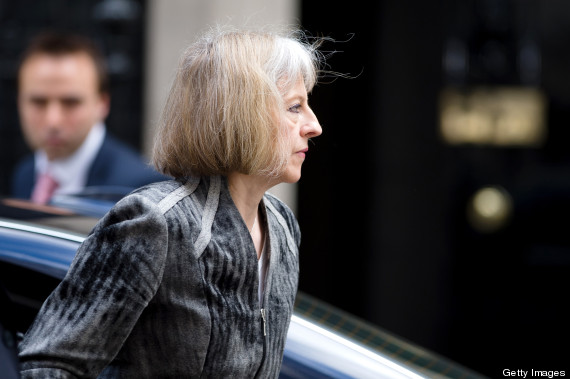
By Christopher Hope, and Steven Swinford
1:38PM BST 26 May 2013
Earlier this month Deputy Prime Minister Nick Clegg blocked the Home Secretary's plans for a communications bill that would have given police and security services access to records of individuals' internet use.
Labour former Home Secretary Alan Johnson said today he was "absolutely passionately" a supporter of reforms and suggested it was a resigning issue for Theresa May if she could not get the changes into law by 2015.
Theresa May, the Home Secretary, said she that the bill was "essential". She said: "I have made my view very clear.
She said: "I have always been clear that access to communications data is essential for law enforcement agencies and the intelligence agencies.There is a reducing capability in relation to access to communications data."
Lord Howard suggested that the Conservatives and Labour should work together. He said: "Many figures in the Labour party have actually expressed support for that Bill – people like John Reid, Lord Reid, and I think that Bill is really very important.
“If the Liberal Democrats maintain their opposition to it, I think there is a case for the Conservative party exploring the possibility of passing that legislation with support from the Labour party.
“The Labour party will support it in the national interest, I think that bill could be an important element in helping to protect people from attacks of this kind and if it is possible to pass it through
Parliament in the national interest by Conservative and Labour votes I think that is something that should be explored.”
It comes as it emerged the Deputy Prime Minister was warned that blocking the bill could come back to haunt him just days before the murder of soldier Lee Rigby.
Liberal Democrat Lord Carlile, who until 2011 was the independent reviewer of government anti-terror laws, said he was "shocked" at Mr Clegg's "political" decision.
Lord Carlile told Murnaghan on Sky News: "We don't know whether if that bill had been enacted two years ago it would have prevented this incident.
"What we can certainly say is that it might have done and what we can absolutely say for certain is that if the communications data bill, with the safegaurds that were agreed in the last session of parliament, was introduced then it would be very likely to prevent some attacks of this kind in the future."
He added: "The reason it was vetoed, as Nick Clegg the leader of my party knows very well, was purely political because of demands from inside the Liberal Democrats."
Lib Dem deputy leader Simon Hughes said there is "no evidence at all" that the communications bill could have prevent the Woolwich atrocity.
He the programme: "The evidence base isn't as clear as I think he would argue it is."
http://www.independent.co.uk/news/uk/crime/woolwich-attack-terror-suspect-michael-adebolajo-was-arrested-in-kenya-on-suspicion-of-being-at-centre-of-alqaidainspired-plot-8632398.html
Michael Adebolajo, fifth from left, was arrested by Kenyan police in 2010
http://www.independent.co.uk/news/uk/crime/woolwich-attack-terror-suspect-michael-adebolajo-was-arrested-in-kenya-on-suspicion-of-being-at-centre-of-alqaidainspired-plot-8632398.html
Woolwich attack: Terror suspect Michael Adebolajo was arrested in Kenya on suspicion of being at centre of al-Qa'ida-inspired plot
IoS exclusive: Terror suspect was among group arrested in Kenya en route to Somalia two years ago. Family say torture there ‘pushed him over the edge’
Evidence emerged last night that one of the suspects involved in the killing of the British soldier Lee Rigby was well known to anti-terror police and the security services for at least three years before the brutal Woolwich attack. Michael Adebolajo was arrested in Kenya under suspicion of being at the centre of an al-Qa'ida-inspired plot in 2010, The Independent on Sunday can reveal.
He was one of seven men arrested by Kenyan police after landing on an island off the Kenyan coast in November 2010. Local press reports of the arrests referred to Mr Adebolajo as a "Nigerian with a British passport" who was "suspected of masterminding the racket". Police claimed the men were travelling to Somalia to join the ranks of the al-Shabaab terrorist group. His family claimed he was held in detention and tortured before being deported back to Britain without charge.
After the incident, members of his family said he was "pestered" by MI5 agents pressuring him to become an informant for them and infiltrate radical Islamic extremist groups. Relatives said other family members were also harassed and questioned by the UK authorities. In an exclusive interview with The IoS, Mr Adebolajo's brother-in law claimed constant demands to get him to spy on Muslim clerics might have pushed him over the edge.
The allegation that MI5 knew of Mr Adebolajo's radical views for so long has increased the pressure on the intelligence services over their failure to recognise the scale of the threat he posed, amid the fall-out from the shocking killing of Drummer Rigby last Wednesday.
A friend of Mr Adebolajo has told the BBC that MI5 had attempted to recruit the suspected killer six months ago. It was also reported last night that Michael Adebowale, who was arrested alongside Mr Adebolajo following the soldier's killing, had been detained by police two months ago.
Sir Malcolm Rifkind, who leads the body that oversees the work of the intelligence services, said the organisations had "serious questions to answer". The MI5 chief, Andrew Parker, will provide a written report on the incident this week, before he is called before the Intelligence and Security Committee (ISC).
But Sir Malcolm, who is chairman of the ISC, pledged that the committee would also use new powers to force intelligence agencies to hand over all confidential documents relating to the case.
Abu Zuybyr, who is married to Mr Adebolajo's sister, Christiana, said last night that his brother-in-law had recently been "elated" following the birth of his child. But added: "Then things became a little strange."
Speaking from a café in the shadow of a mosque in an east Lancashire town, just before midday prayers, Mr Zuybyr said: "Why did he suddenly flip?" As family members struggled for explanations for Mr Adebolajo's actions, they speculated that pressure from the security services to turn informer may have pushed him to act.
"That is what the [Mr Adebolajo's] family is saying; that the secret service pushed him over the edge," his brother-in-law claimed.
They insisted that Mr Adebolajo's character changed markedly in 2010, after a visit to Kenya – where, they say, he had gone to study Arabic and Islam with imams in mosques in Nairobi.
But an investigation by The IoS has revealed that Mr Adebolajo – officially described as "Mr Michael Olemindis Ndemolajo" – was one of seven youths arrested by Kenyan police on suspicion of trying to join the ranks of the al-Shabaab terrorist group in Somalia.
The young men had gone on a speedboat from Lamu island to Kizingitini, Pate island, where they were arrested by police who were waiting for them after a tip off. The group he was travelling with, which included two secondary-school boys, had been radicalised during weekly visits to a mosque in Mombasa, according to police sources.
They were thrown in jail and "the suspect from Nigeria" accused police of torturing him, according to local reports.
"We are being tortured by the police and we haven't eaten for two days now," he was quoted as saying. "We have been denied the right to talk to our family members and lawyer. We are being treated as criminals and we are innocent."
Kenyan media stated: "The Nigerian, Mr Michael Olemindis Ndemolajo, is said to have travelled from the UK to join the group."
He was kept in jail for several days before being deported back to Britain, "after it was established that his travelling documents were genuine and that he lacked a criminal record", according to The Nation newspaper. Mr Adebolajo's family said he had been told he would be hanged or beheaded, but after he had appeared in court he was freed to return to Britain. Relatives said they believed the release came after they had alerted local MPs and the Foreign Office. The decision has raised questions over official involvement in Mr Adebolajo's release – and the true extent of his connections with the intelligence services since he returned home to the UK.
Mr Zuybyr claimed his brother-in-law had been tortured violently, threatened with rape and his private parts had been grabbed.
Mr Zuybyr also alleged that, when Mr Adebolajo returned to Britain, he had been pestered by MI5 about informing for them. He added that other members of the family had been quizzed about Mr Adebolajo in an effort to put pressure on him.
Mr Adebolajo's elder brother, Jeremiah, had gone to Saudi Arabia to teach English, but had been arrested and harassed by the authorities about his brother. And Mr Zuybyr himself said that when he went to Yemen four years ago to learn Arabic with his new wife, he was rounded up and questioned at gunpoint.
He added: "When I came back to Britain, MI5 contacted me and showed significant interest in Michael. I was harassed for a while, with constant calls from people claiming to be from the FBI." Mr Zuybyr and his wife left their family in London and moved to east Lancashire, but he said MI5 had still tracked him down and questioned him about his brother-in-law.
Sir Malcolm made it clear last night that MI5 would be closely questioned about any suggestion that it had been in contact with the two men arrested in connection with Drummer Rigby's death.
He said: "I have been following all the news items and you can certainly assume that any of these serious allegations will be put to the intelligence agencies."
Colonel Richard Kemp, former commander of British forces in Afghanistan and a past chairman of the Government's Cobra intelligence committee, conceded that MI5 and the police could possibly have done more to prevent the shocking murder.
But, he added: "It would have required probably significant additional resources, so that they can increase the number of suspects they monitor. Even though these two were on their radar, they have to prioritise who they look at, because surveillance, monitoring and communications is all very expensive. And maybe they need more resources to do that if it is necessary to widen the net, which I think probably it is."
EDL marches in Newcastle
An estimated 2,000 English Defence League supporters paraded through Newcastle upon Tyne city centre yesterday as right-wing groups appeared to be gaining followers in the wake of Drummer Lee Rigby's death. Two weeks ago it was thought about 500 would attend.
Yesterday's demonstration, which was met by around 400 anti-fascist protestors, passed without major incident after 1,000 officers lined the streets, Northumbria Police said, adding that there were "a number" of arrests for drunkenness, or to prevent public order offences. The BNP (British National Party) has said it will march on Saturday in Woolwich, where the soldier lost his life last week.
The young father's killing provoked a backlash across the country, with many reported incidents of mosques being attacked and racial abuse.
Paul Cahalan
Man, 22, is fourth person arrested on suspicion of conspiracy to commit murder over Woolwich attack
- Two men aged 24 and 28 were arrested at a residential address in London
- A further 21-year-old man was arrested in the street in Charlton
- The Counter Terrorism Command used tasers to detain two of them
- The two men suspected of murdering Drummer Rigby, 25, in Woolwich remain in hospital after being shot by police
By SIMON MURPHY
PUBLISHED: 22:49, 25 May 2013 | UPDATED: 16:18, 26 May 2013
Armed police have arrested a 22-year-old man today on suspicion of conspiracy to murder Drummer Lee Rigby.
Counter-terrorism officers supported by armed police swooped on an address in Highbury Grove, north London, Scotland Yard said.
It comes after officers last night arrested three people on suspicion of conspiring to murder the solider.
Three more men have been arrested for the death of Drummer Lee Rigby last week
Police with machine guns stormed three separate addresses in simultaneous raids across south-east London between 6pm and 6.30pm.
On the Lamb Estate in Greenwich, officers in balaclavas charged in to a first-floor flat and used a Taser on one suspect.
They arrested a Somali man and another unarmed man, both in their 20s.
Neighbour Tariq Mahmood, 54, a businessman, said: 'My daughter is traumatised. This is just a quiet estate. I can't believe this happened.'
Officers from the Met's Counter Terrorism Command supported by specialist firearms officers raided a separate fourth-floor flat 300 yards away, believed to be the home of relatives of the Somali.
More...
The arrests came as authorities in France investigated whether the killing was linked to an attack on a French soldier who was stabbed in the neck in a busy shopping area outside Paris today.
The two men suspected of murdering Drummer Rigby, 25, in Woolwich remain in hospital after being shot by police when they charged towards armed officers on Wednesday, while a 29-year-old man arrested on suspicion of conspiracy to murder has now been released on bail, police confirmed tonight.
A great character: Father of one and soldier Rigby, of Greater Manchester, pictured relaxing on Army leave
The two men suspected of murdering Drummer Rigby, who have been identified as Michael Adebolajo, 28, and Michael Oluwatobi Adebowale, 22, remain in a stable condition in hospital, police added.
Drummer Rigby was hit by a car and then attacked with weapons including a knife and a meat cleaver but the cause of his death has not been confirmed by a post-mortem examination.
The young father's murder has provoked a backlash of anger across the country, with many incidents of mosques being attacked, racial abuse and comments made on social media.
Attack: Drummer Rigby was killed on the street in Woolwich, south London when Michael Adebolajo launched his attack
Suspect: Michael Adebowale, 22, of Greenwich, south-east London, with a knife in his hand at the scene where Lee Rigby was stabbed to death
Two suspects remain in hospital after police shot them at the scene
But close to the spot where he was brutally hacked to death, people showed solidarity today as they comforted one another and left floral tributes, adding to the thousands of bouquets already there.
Prime Minister David Cameron has announced that the parliamentary Intelligence and Security Committee (ISC) is to investigate following the disclosure that Adebolajo and Adebowale were known to MI5.
Police refused to comment on reports tonight that Adebowale was arrested two months ago.
Two women aged 29 and 31 have both been released without charge after they were held on Thursday on suspicion of conspiracy to murder, while a number of other people not directly involved with the attack have been charged over malicious comments made on social networking sites.
Searches have also been taking place at three other addresses in south London, one in east London, one in north London and one in Saxilby, Lincolnshire, the former home of Adebolajo.
French president Francois Hollande said authorities were investigating any possible link between the Paris attack, which was not believed to have seriously injured the 23-year-old soldier, and that on Drummer Rigby.
A Scotland Yard spokesman said he was unable to say whether police were connecting the incidents.
The father of murdered schoolboy Damilola Taylor said tonight that he had acted as a mentor to Adebowale, who was known to his friends as Toby.
Grief: A wellwisher outside the army barracks, 200 yards from where Drummer Lee Rigby was killed, by the huge - and growing - pile of flowers
'Dear soldier': A handwritten note left in honour of Lee Rigby close to the scene of the brutal murder in Woolwich
Asked about Wednesday's events, Richard Taylor told ITV News: 'I was terribly shocked at what I saw that day.
'It's a different Toby or Michael that I was seeing that day. I don't believe it was anything Islamic.'
Mr Taylor, whose son was just ten when he was killed in the capital in 2000, said he had tried to help Adebowale after he was bullied at school and then became involved in drugs and gangs.
But he said that when he spoke to Adebowale two months ago, he told him that he had changed his ways as he had become a Muslim.
He went on:'Having seen how my own son was stabbed to death, made me feel that... whatever happens, they will still be alive, they will still be on the street or maybe they will take them away from the public or change their faces. They don't deserve to live.'
Meanwhile the BNP has been accused of cynically exploiting the killing to further its 'own poisonous ends' after the far right group announced it would be demonstrating in Woolwich next Saturday.
And up to 2,000 people took part in a EDL march in Newcastle today, which was planned before Wednesday's attack. Earlier this month it was predicted that 500 would turn up.
EDL supporters sang 'RIP Lee Rigby' as they marched through the city while a Union flag with his name on was displayed to cheers. Police said three people were arrested for allegedly making racist tweets before it had begun.
Drummer Rigby's family yesterday paid tribute to the soldier they described as their 'hero'.
'Lee's dream growing up was always to join the Army, which he succeeded in doing. He was dedicated and loved his job,' they said in a statement.
Drummer Rigby's wife Rebecca, mother of their two-year-old son Jack, said through tears that he was 'a devoted father'.
Along with the floral tributes at the corner of John Wilson Street and Artillery Place where the attack took place, many hundreds more have been left outside the entrance to Woolwich barracks a few hundred yards away, where Drummer Rigby was based.
A book of condolence has been opened at Woolwich Town Hall, where opening hours have been extended over the bank holiday weekend to allow the public to pay their respects.
Professor David Maguire, vice-chancellor of the University of Greenwich, confirmed that Adebolajo had been a student there for two years but had been thrown out because his 'academic progress was unsatisfactory'.
Adebowale had not studied there, he said.
The professor added: 'The university takes its responsibilities very seriously in terms of preventing extremism. We are committed to ensuring that the university is a safe and secure place of study and debate within the confines of the law. We have diverse communities on campus and these include a range of different faiths.
'Given the seriousness of issues raised, the university is setting up an investigation into the association of these two individuals with the university, to assess whether there is any evidence of extremism in the university (past or present) and whether we need to update our policies and practices.'
it was Drummer Rigby's dream to join the army. Thousands of people have left tributes to him since his death last week
Read more: http://www.dailymail.co.uk/news/article-2330999/Woolwich-attack-Man-22-fourth-person-arrested-suspicion-conspiracy-commit-murder.html#ixzz2UQfQ2RKt
Follow us: @MailOnline on Twitter | DailyMail on Facebook
More...
Read more: http://www.dailymail.co.uk/news/article-2330999/Woolwich-attack-Man-22-fourth-person-arrested-suspicion-conspiracy-commit-murder.html#ixzz2UQfYtLH6
Follow us: @MailOnline on Twitter | DailyMail on Facebook
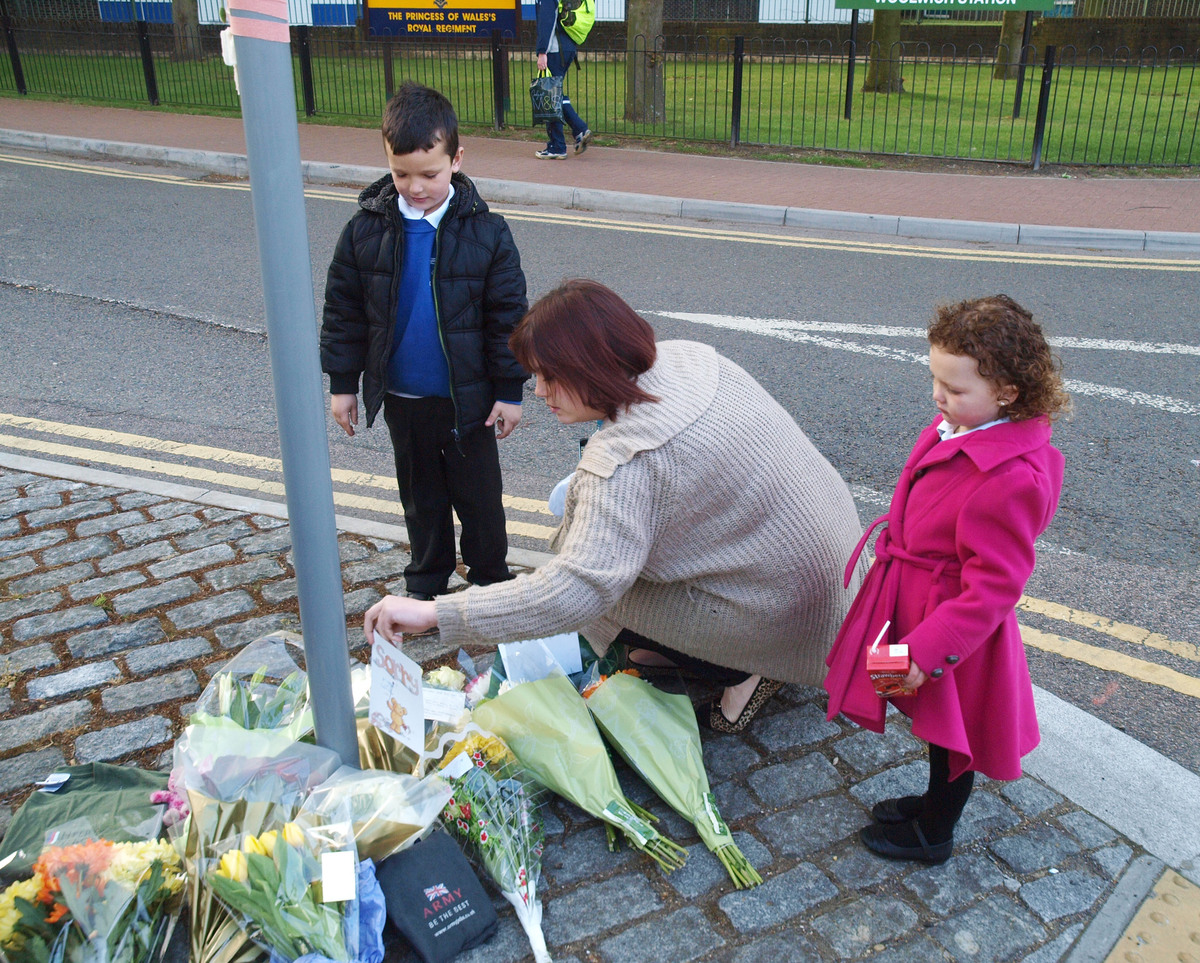
Murdered soldier Drummer Lee Rigby
http://www.dailymail.co.uk/news/article-2330999/Woolwich-attack-Man-22-fourth-person-arrested-suspicion-conspiracy-commit-murder.html
Woolwich attack: Suspect Michael Adebowale was mentored by murdered schoolboy Damilola Taylor's father
Michael Adebowale, the younger of the two Woolwich terror suspects, was mentored by the father of the murdered schoolboy Damilola Taylor in an attempt to prevent him spiralling out of control.
http://www.telegraph.co.uk/news/uknews/terrorism-in-the-uk/10080837/Woolwich-attack-Suspect-Michael-Adebowale-was-mentored-by-murdered-schoolboy-Damilola-Taylors-father.html
Woolwich attack suspects – at-a-glance profiles
What is known so far about Michael Adebolajo and Michael Adebowale
http://www.guardian.co.uk/uk/2013/may/26/woolwich-attack-suspects-profiles
Michael Adebolajo in 2010. Photograph: Michael Richards/AFP/Getty Images
• A 28-year-old Londoner born into a church-going Nigerian family in Lambeth, he converted to Islam in 2003, changing his name to Mujaahid, which means "one who engages in jihad".
• Adebolajo, who was known to MI5, took part in protests organised by the now-banned extremist group al-Muhajiroun, whose founder, Omar Bakri Mohammed, claims he converted him.
• Reports on Sunday said he was arrested in Kenya in 2010 close to the border with Somalia, parts of which are controlled by Islamist militants, and was deported back to the UK.
• A friend has linked Adebolajo's radicalisation to alleged ill-treatment in Kenya, where he claimed that he was tortured. MI5 was alleged to have harassed him and to have asked him to spy for them.
• Attention is being focused on his time at Greenwich University, which, unlike several other London institutions, has not previously been associated with radicalism.
• Like his friend Adebolajo, Adebowale was brought up as a Christian in a family of Nigerian origin and is believed to have grown up on the periphery of the south-east London gang scene.
• He was stabbed during a knife attack five years ago and, according to a friend, afterwards converted to Islam.
• Police investigating the 22-year-old have raided a flat in Greenwich, about four miles from the scene of Wednesday's attack, where he is said to have lived and attended a local college.
• Richard Taylor, father of the murdered schoolboy Damilola Taylor, revealed that he had acted as a mentor to Adebowale, who he said was bullied at school and was thought to be at risk of coming under the influence of gangs.
• Like Adebolajo, Adebowale was on the radar of MI5.
http://www.mirror.co.uk/news/uk-news/woolwich-attack-lee-rigbys-family-19133594
Related Articles
26 May 2013
26 May 2013
25 May 2013
26 May 2013
26 May 2013
26 May 2013
Michael Adebolajo, fifth from left, was arrested by Kenyan police in 2010
1 / 1
×




 Mr Wijat's friend Magic Rabbit
Mr Wijat's friend Magic Rabbit 

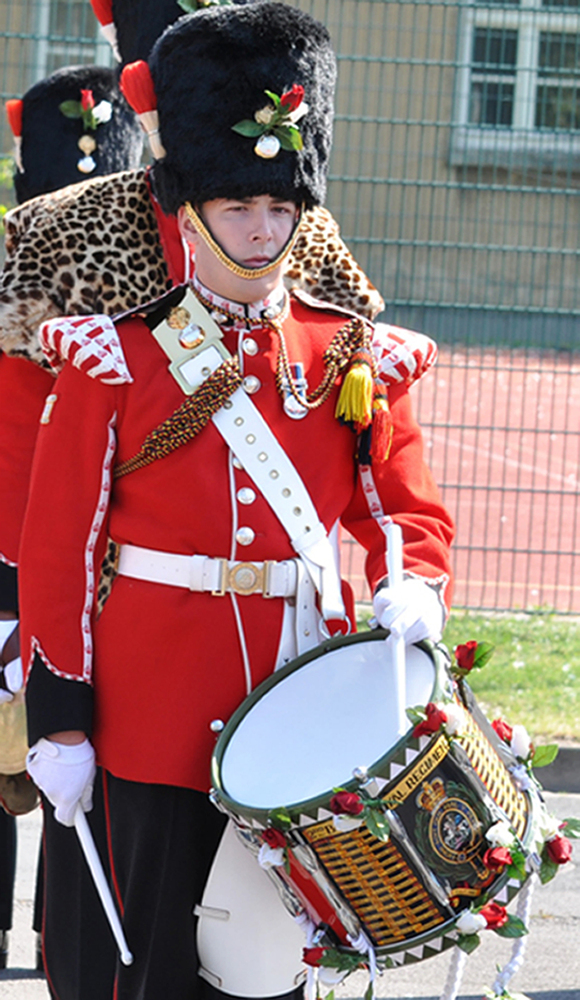
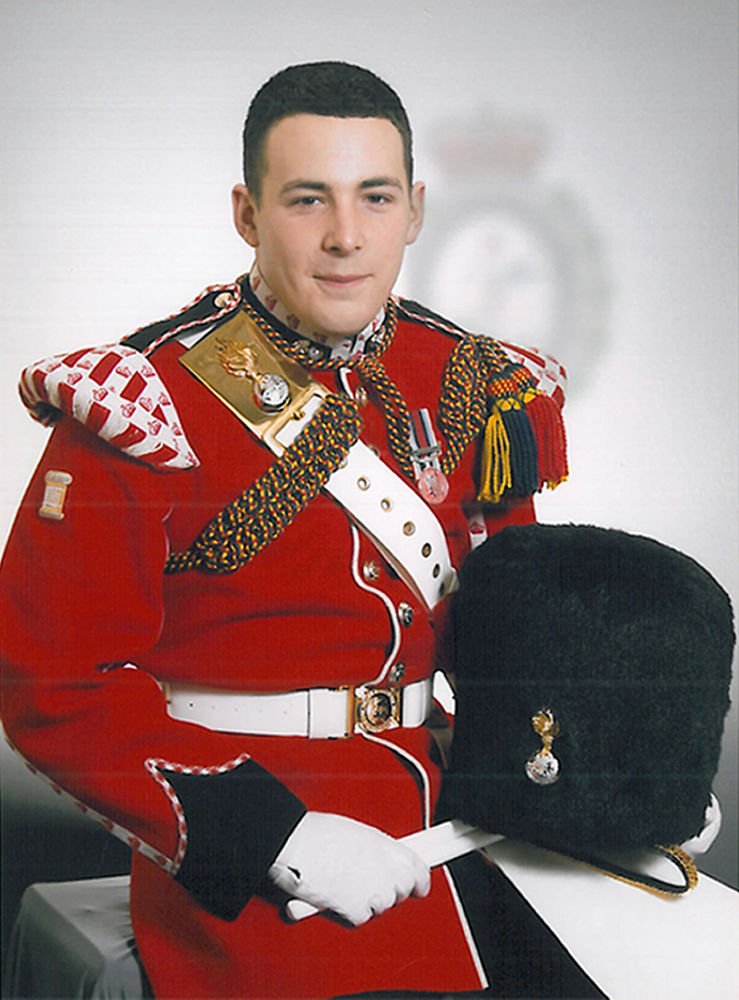
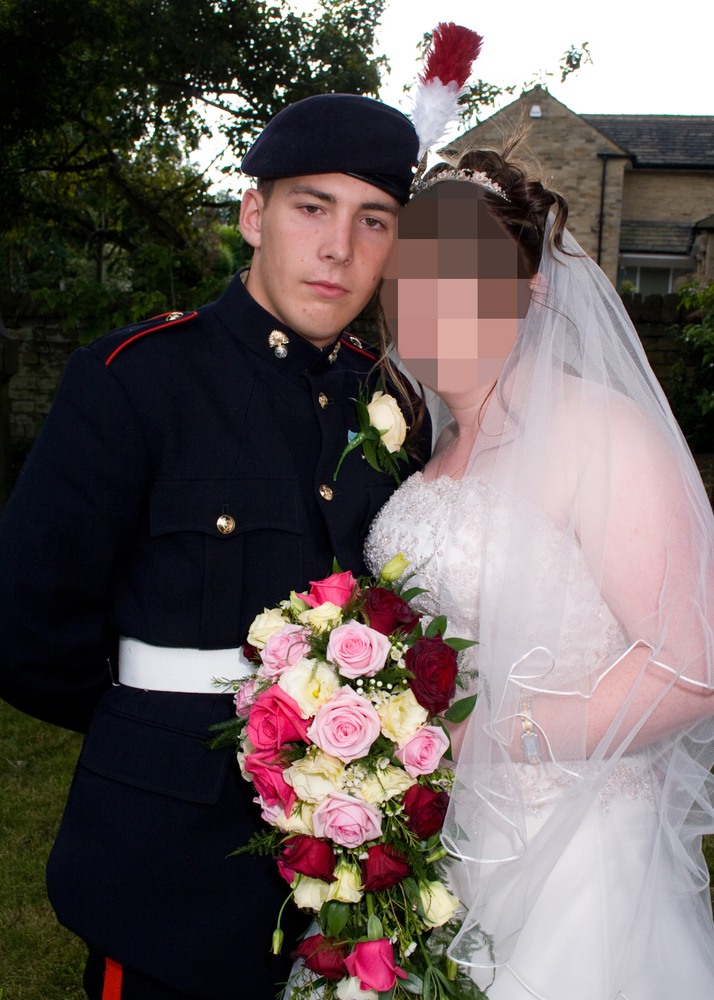







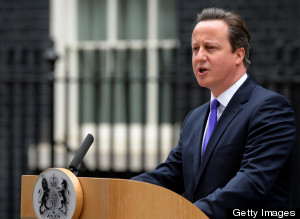


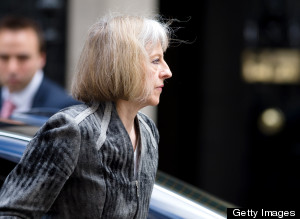


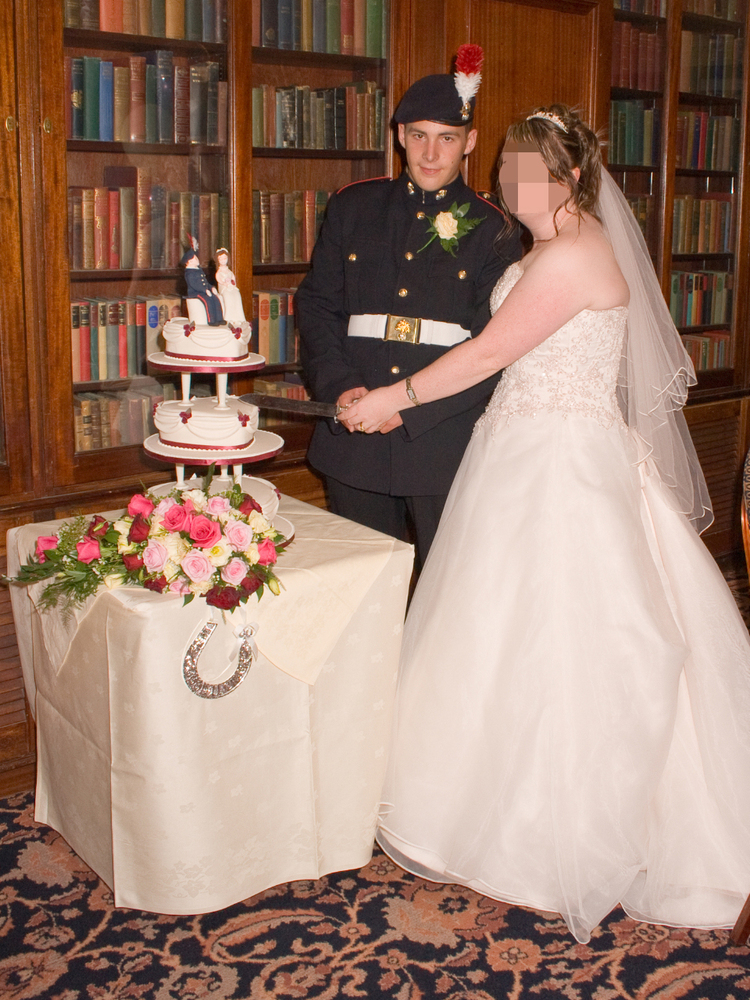
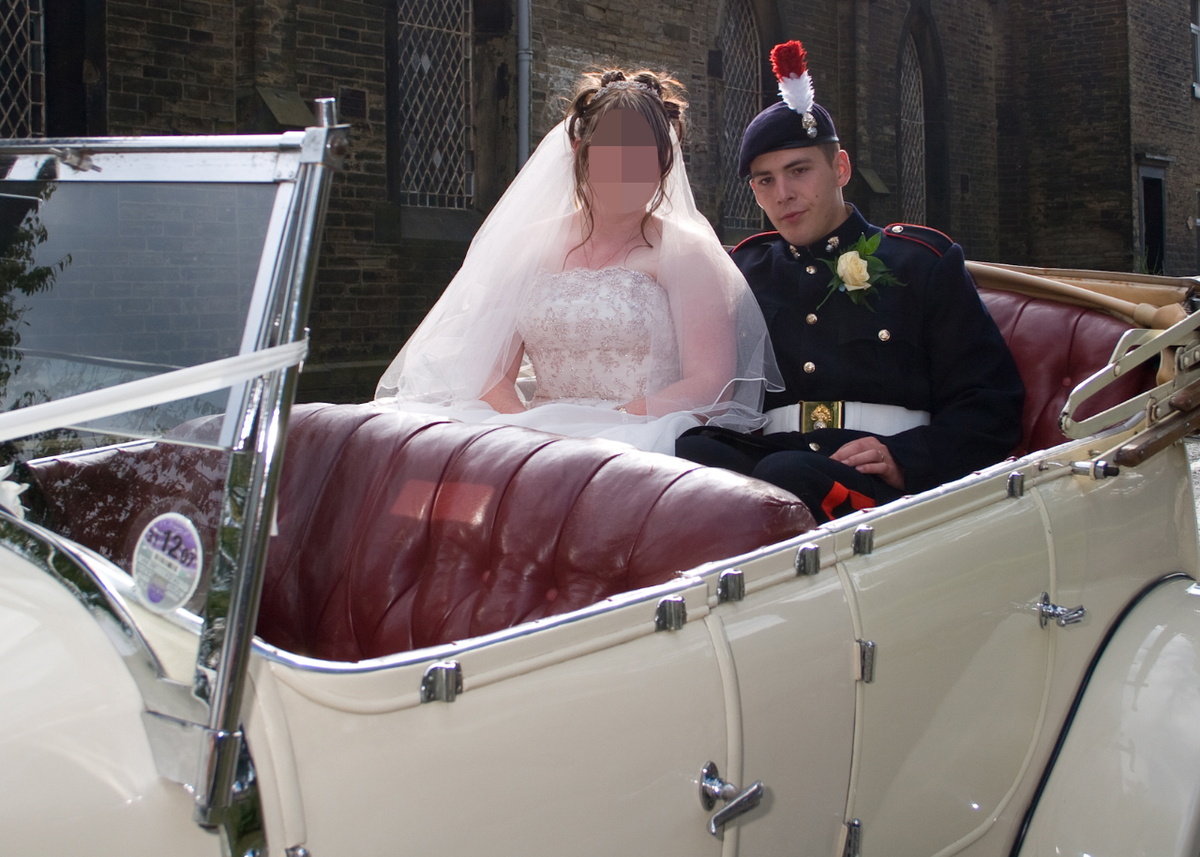
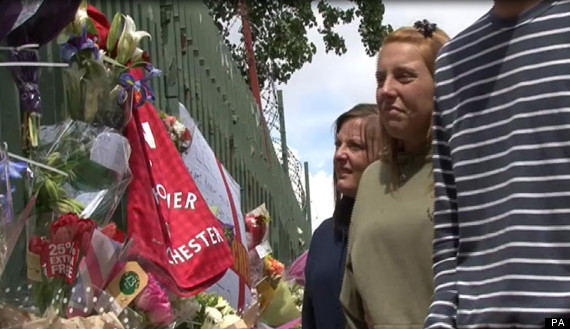
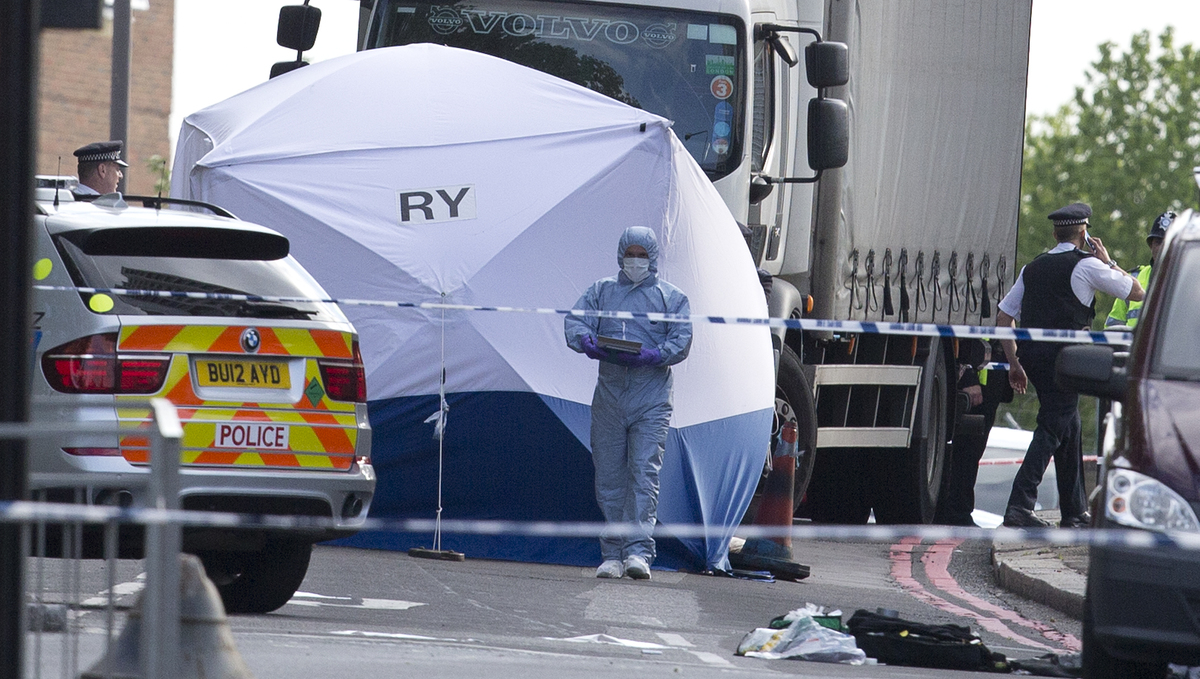

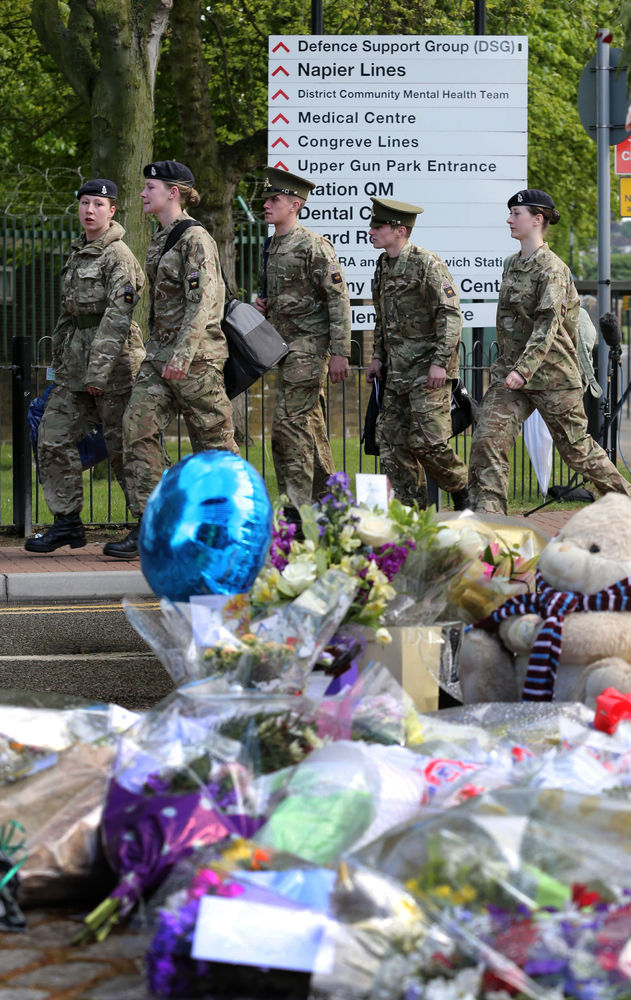
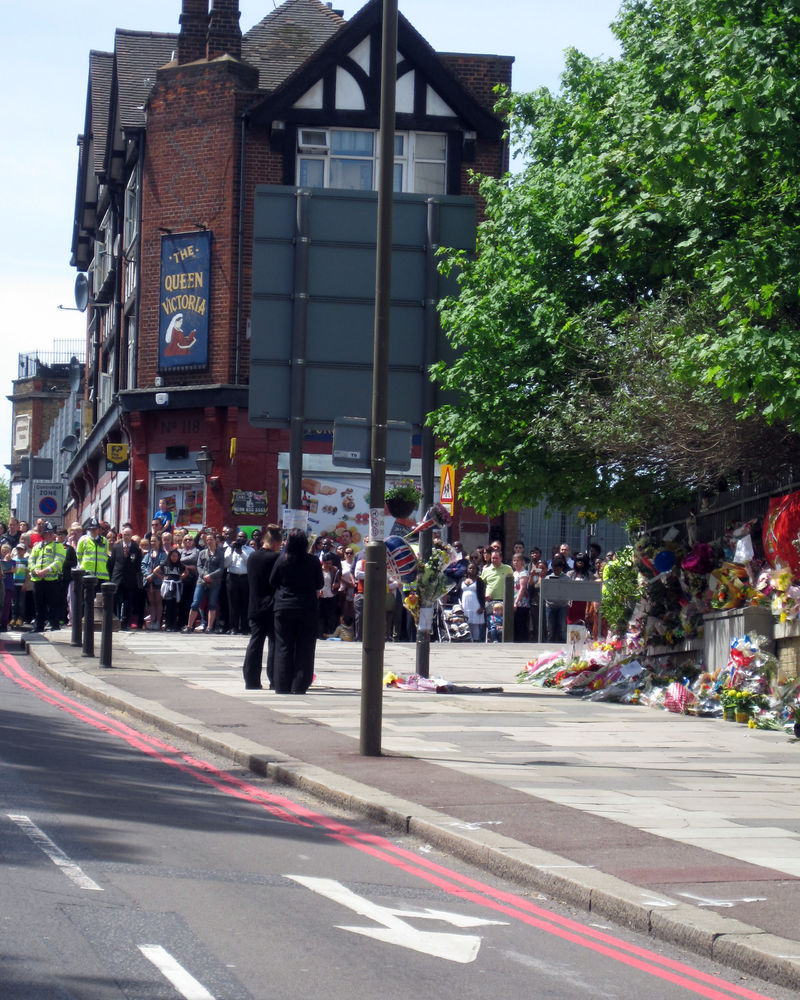
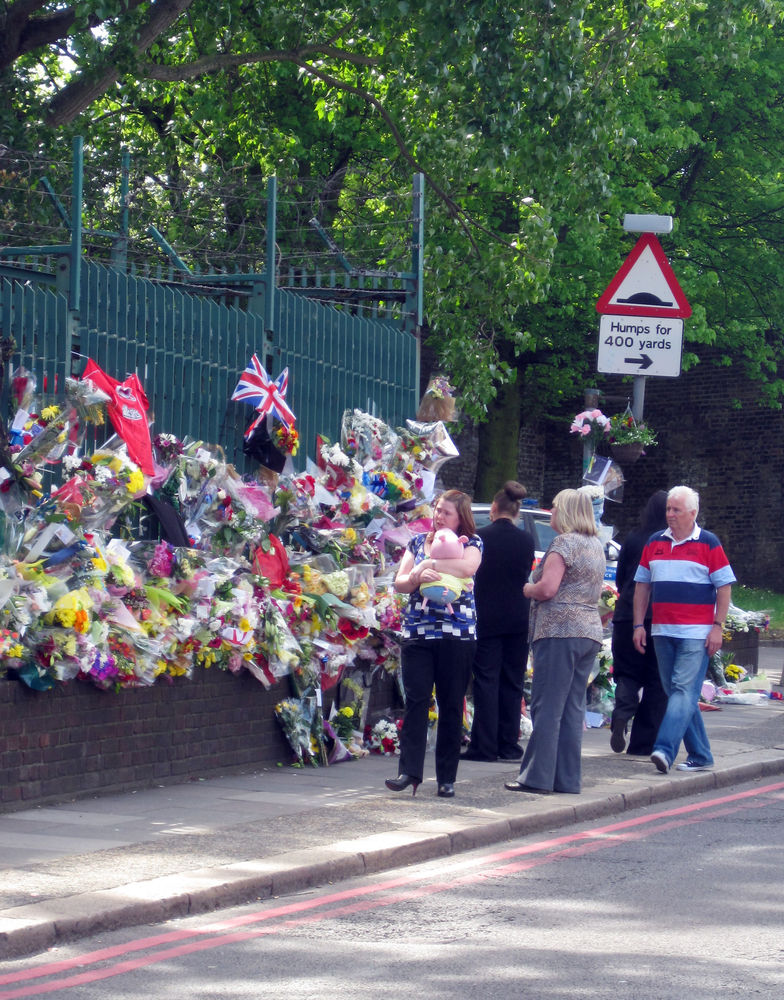
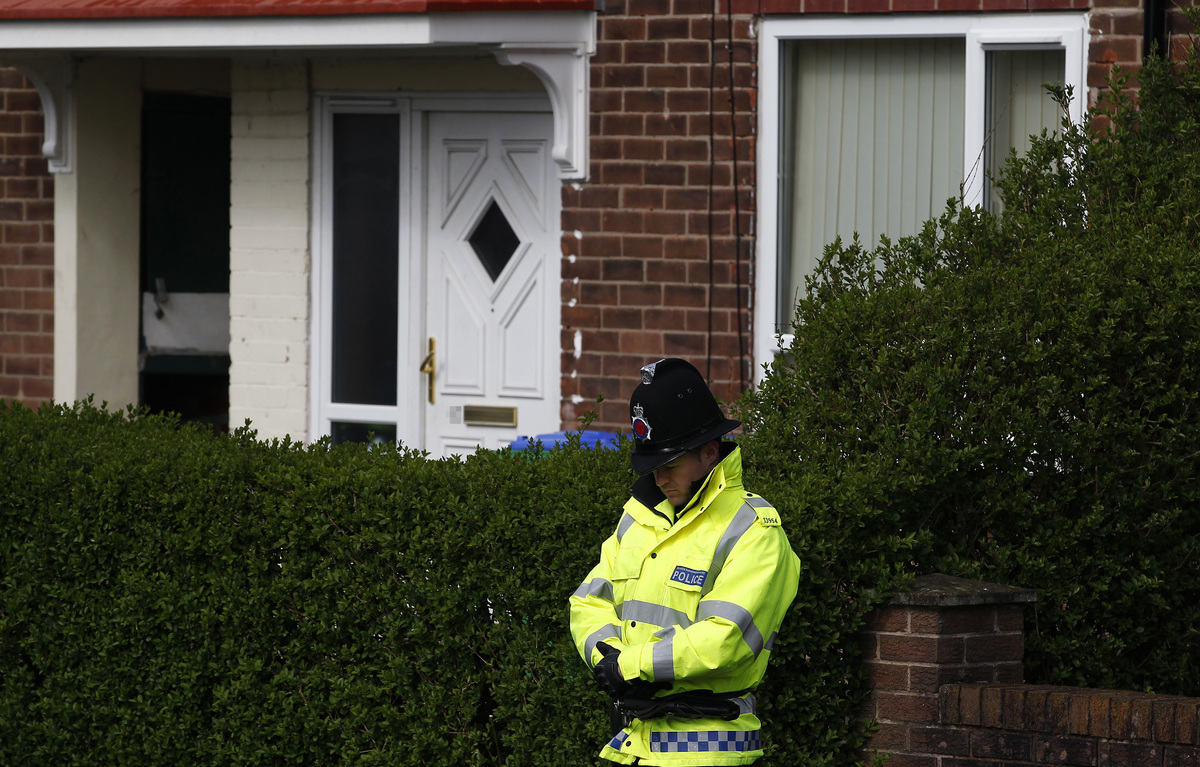
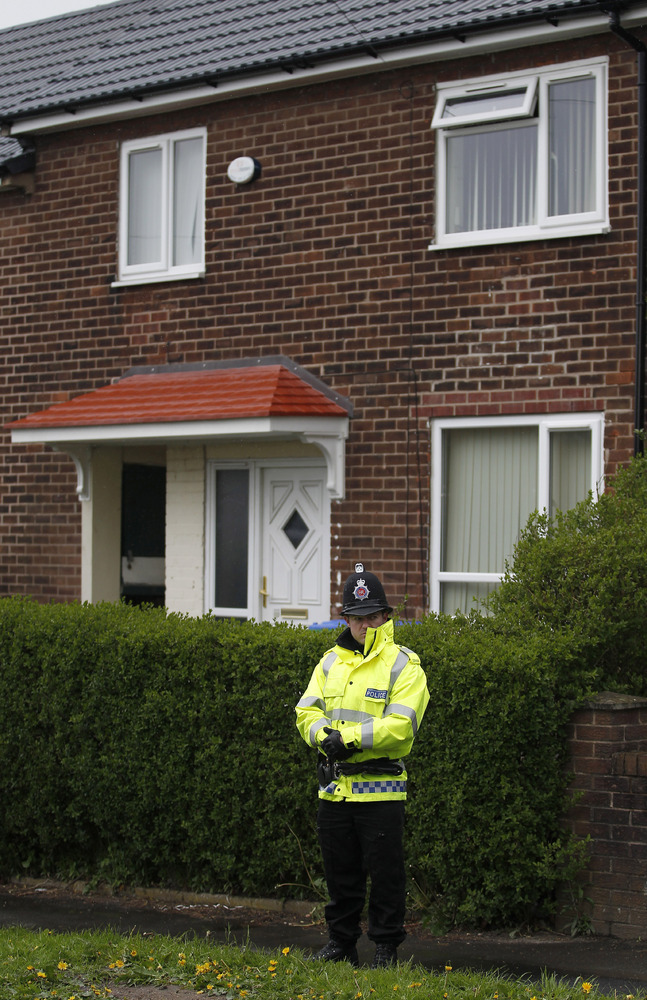
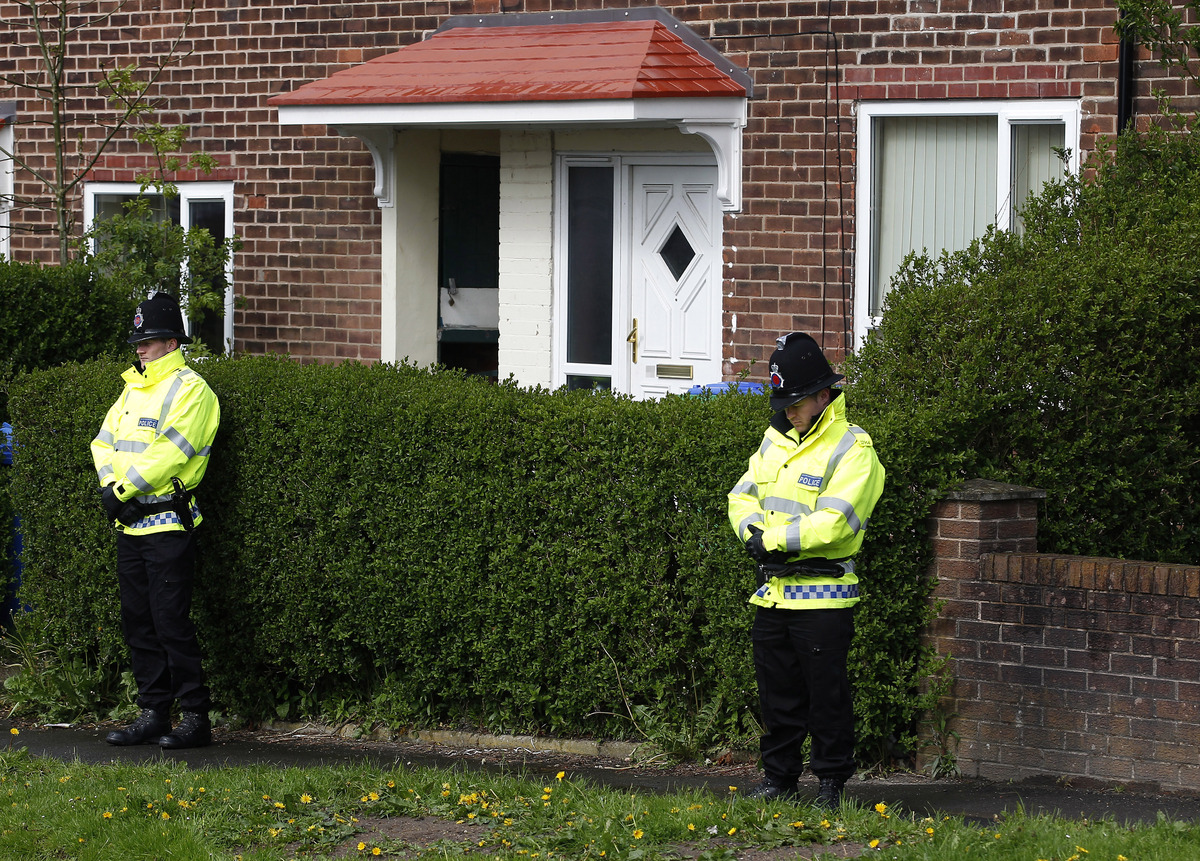
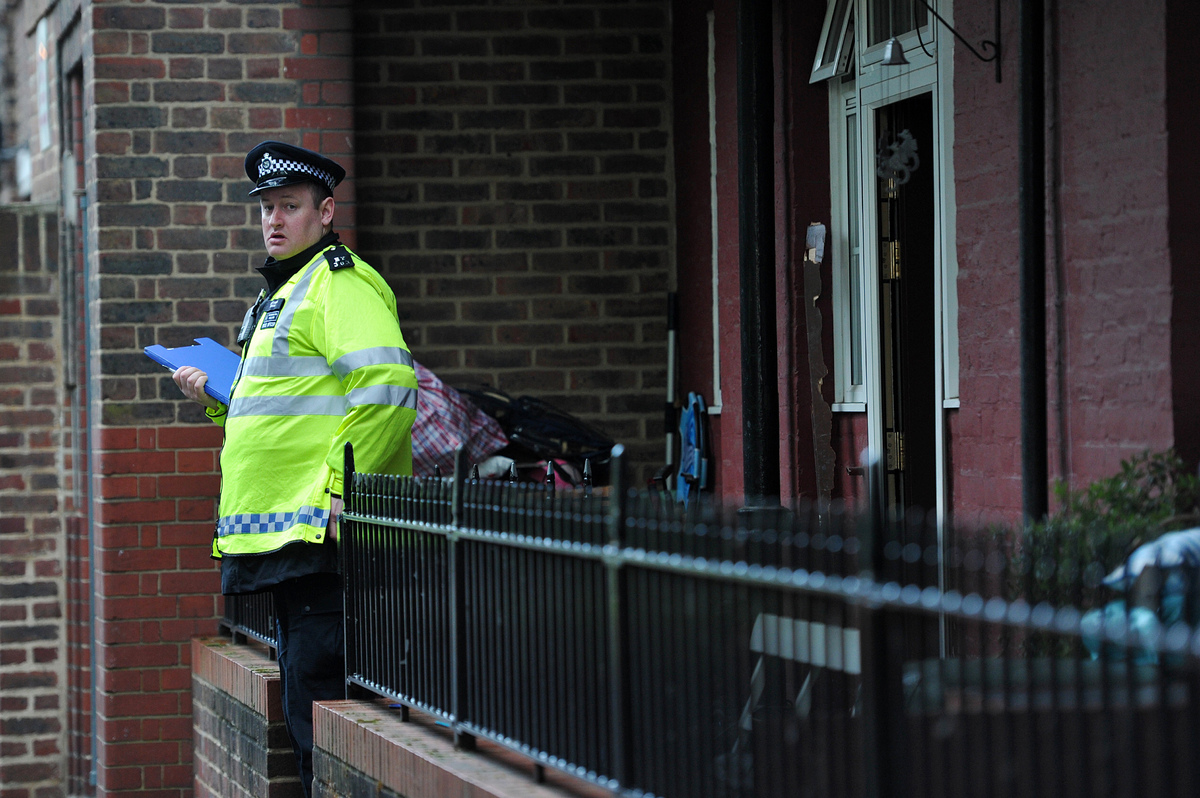
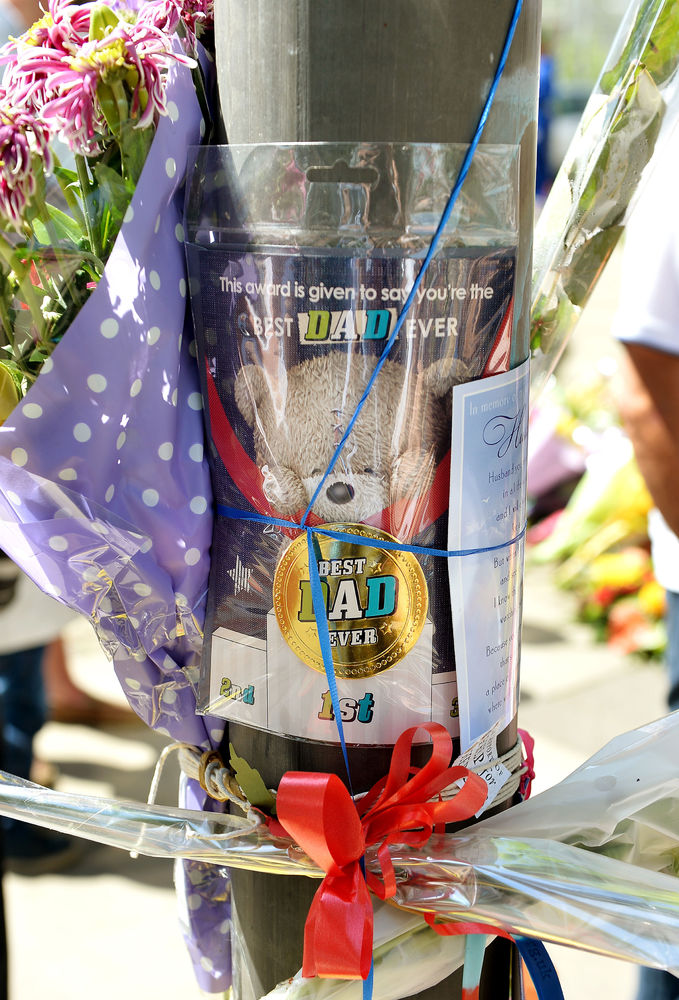
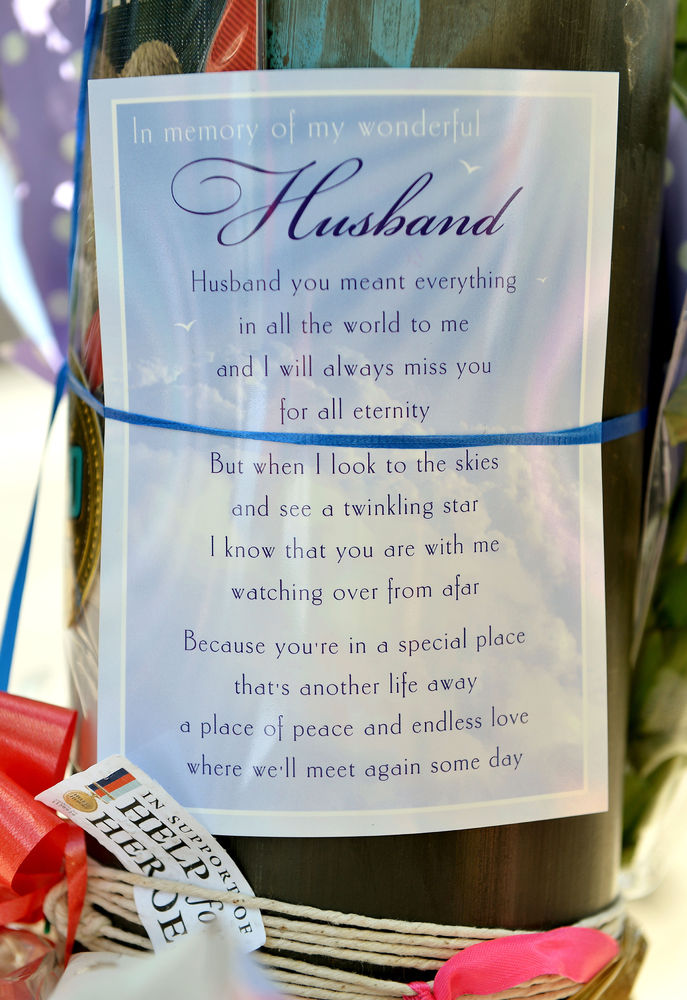
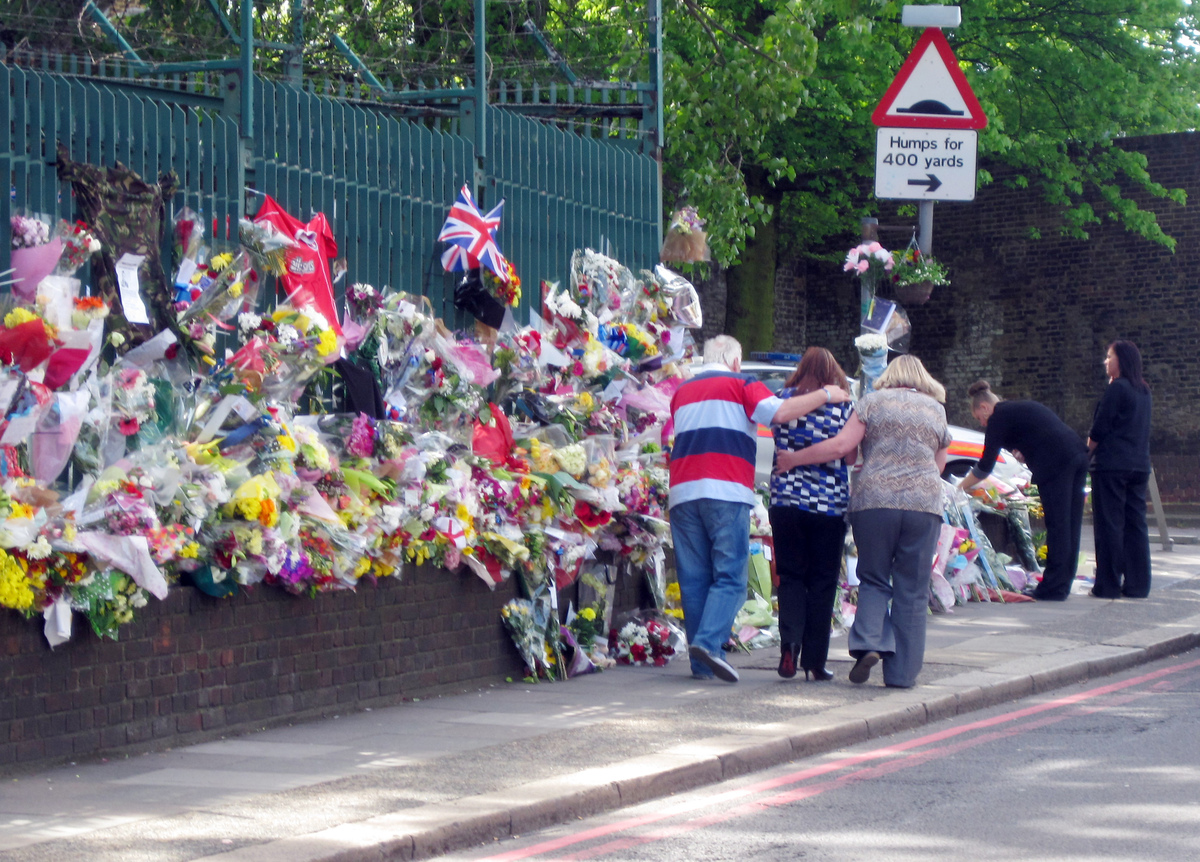
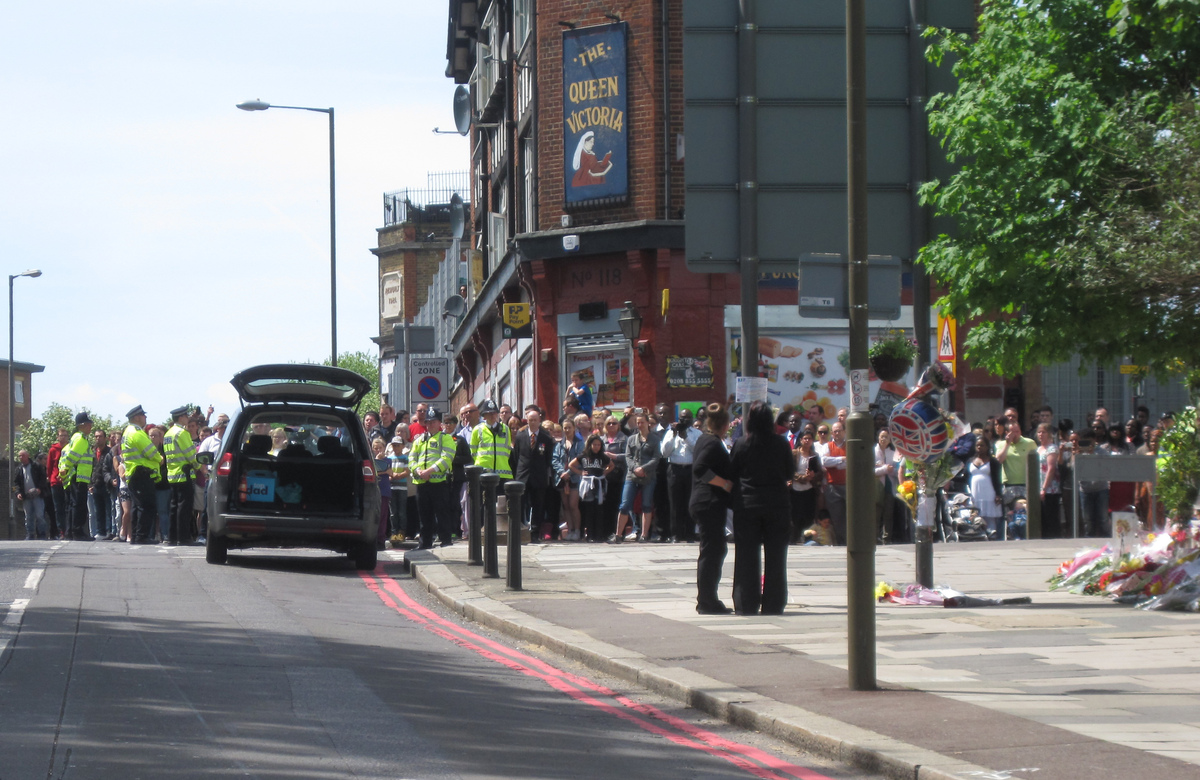
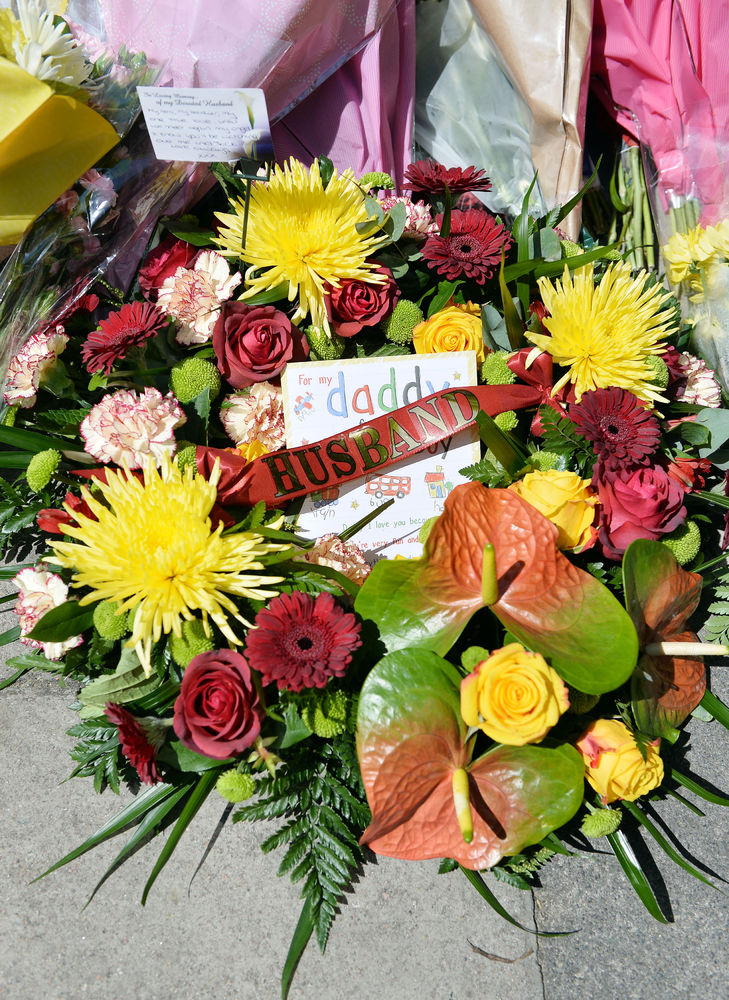
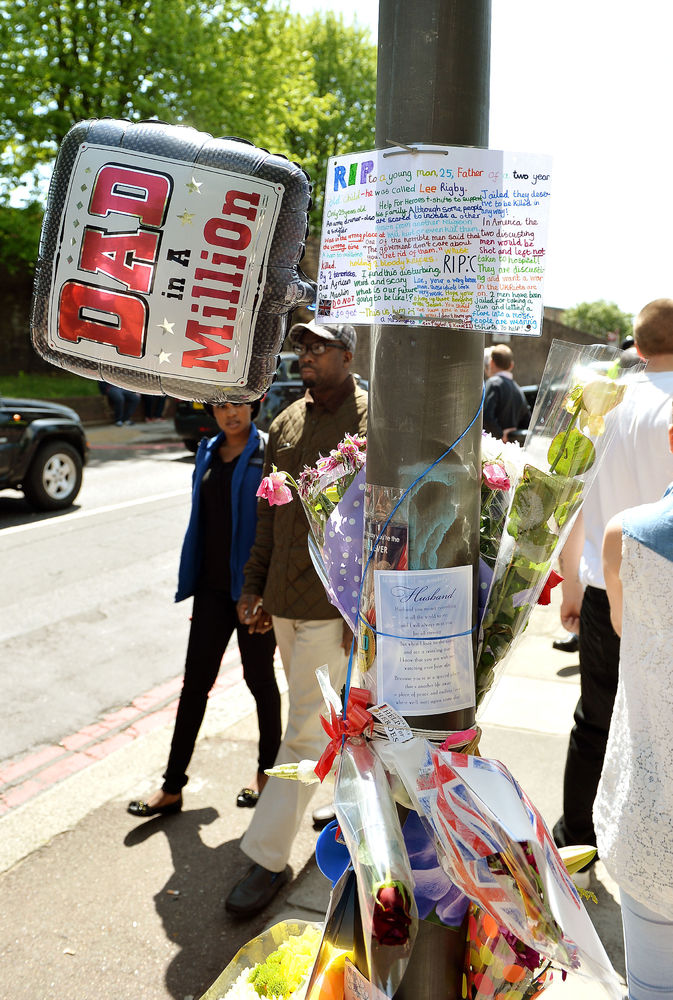
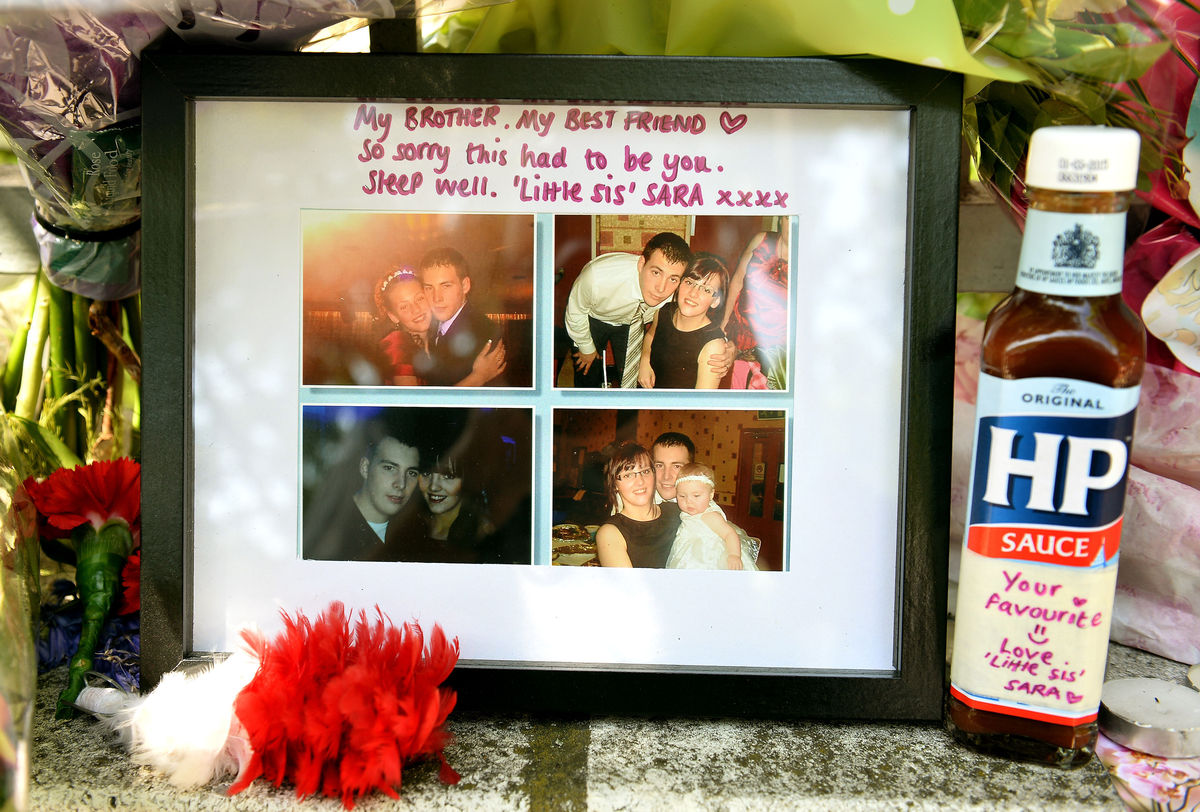
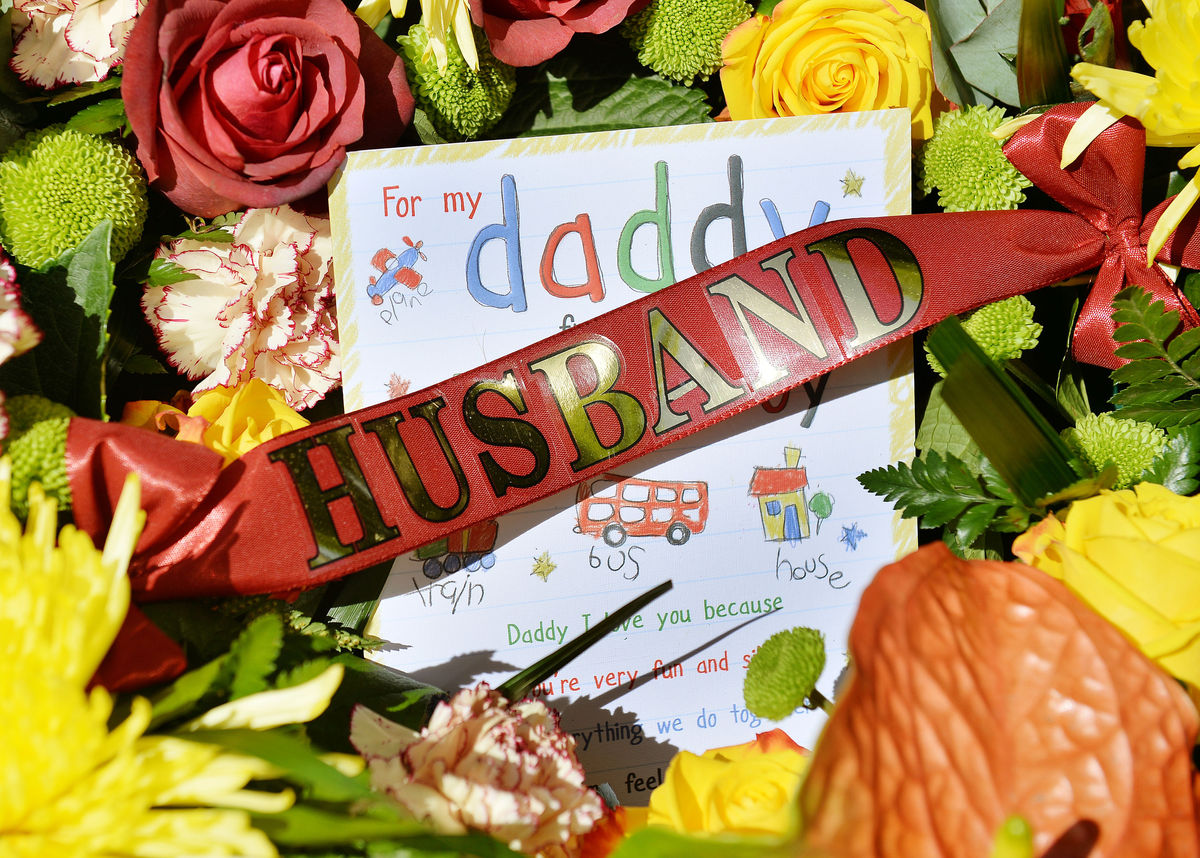
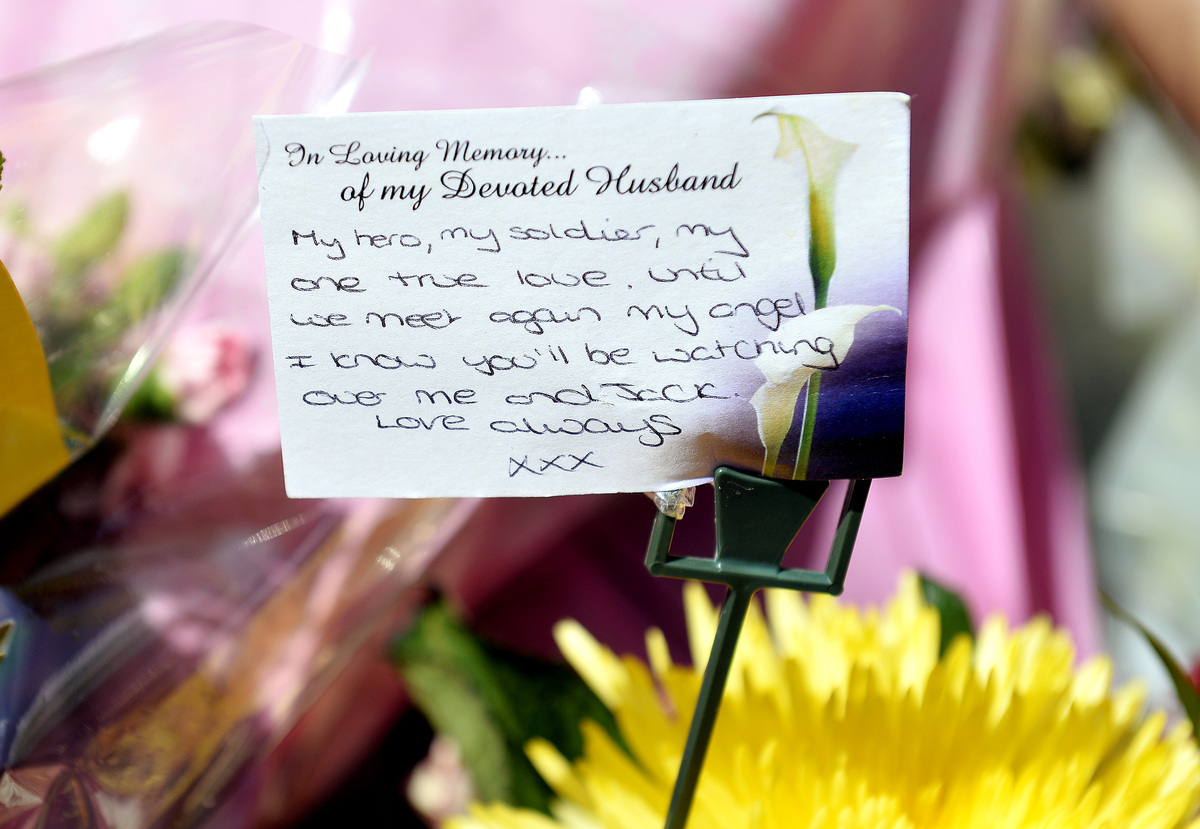
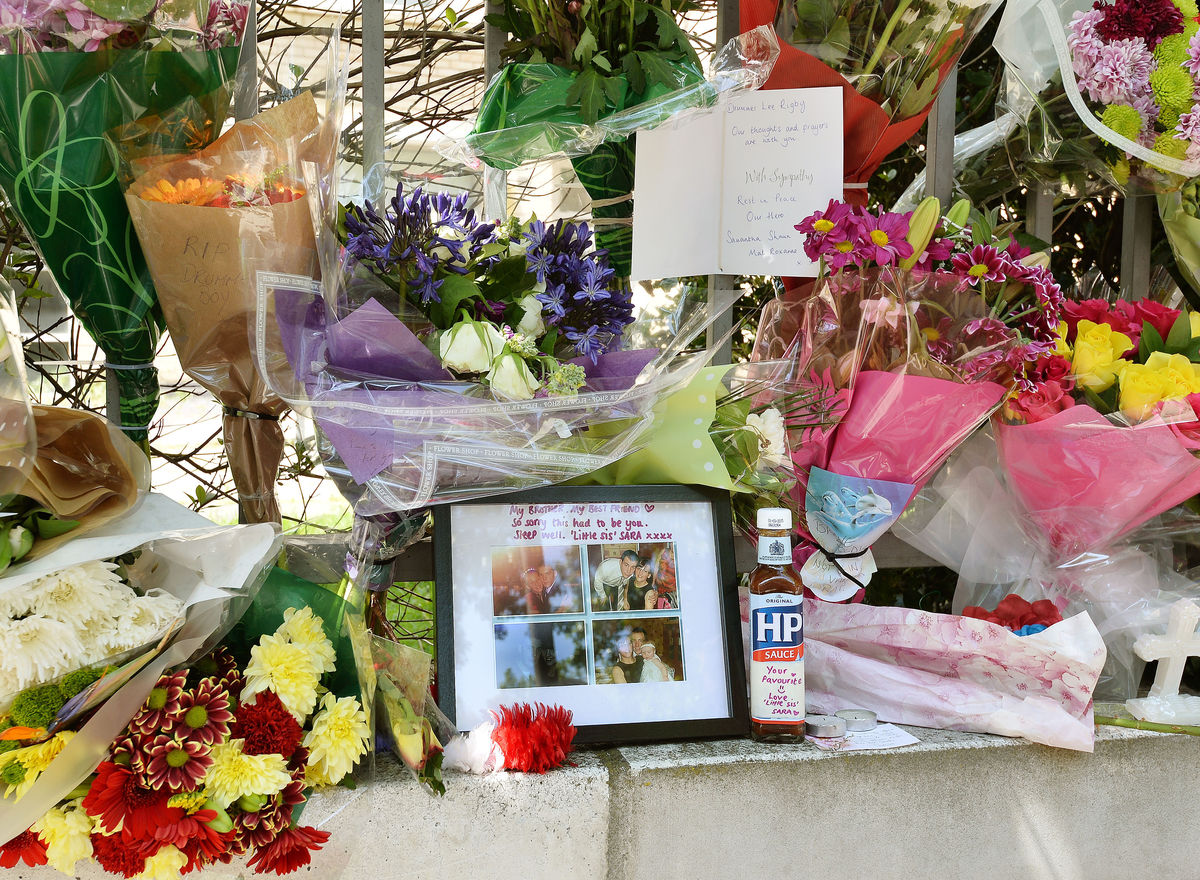
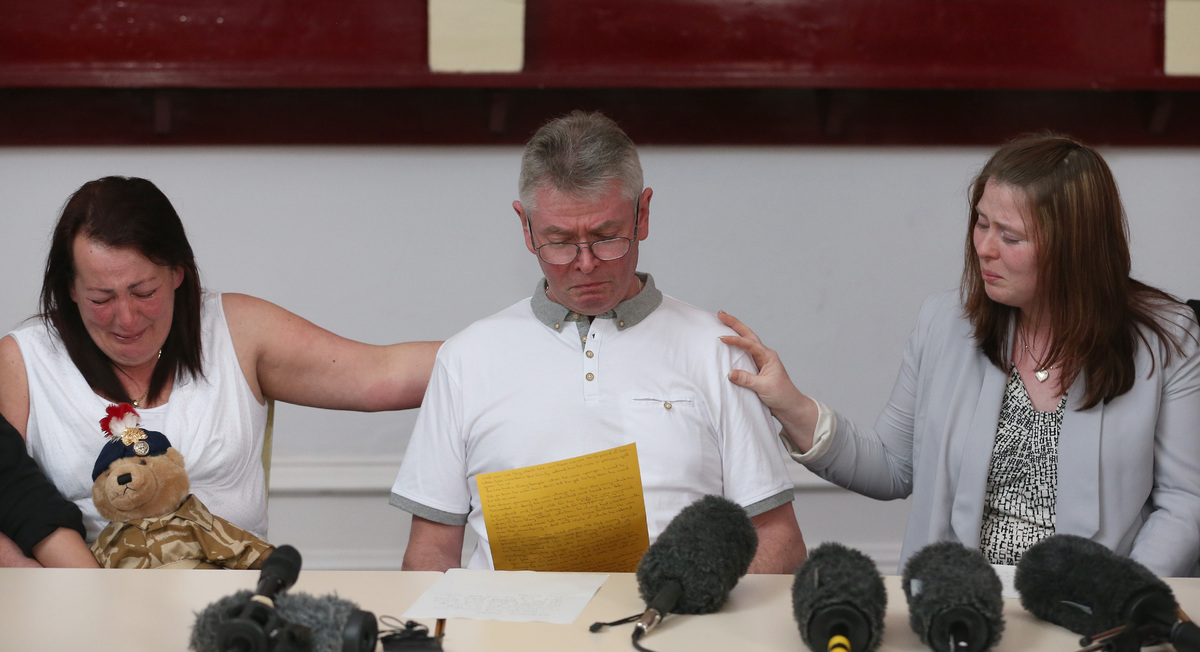
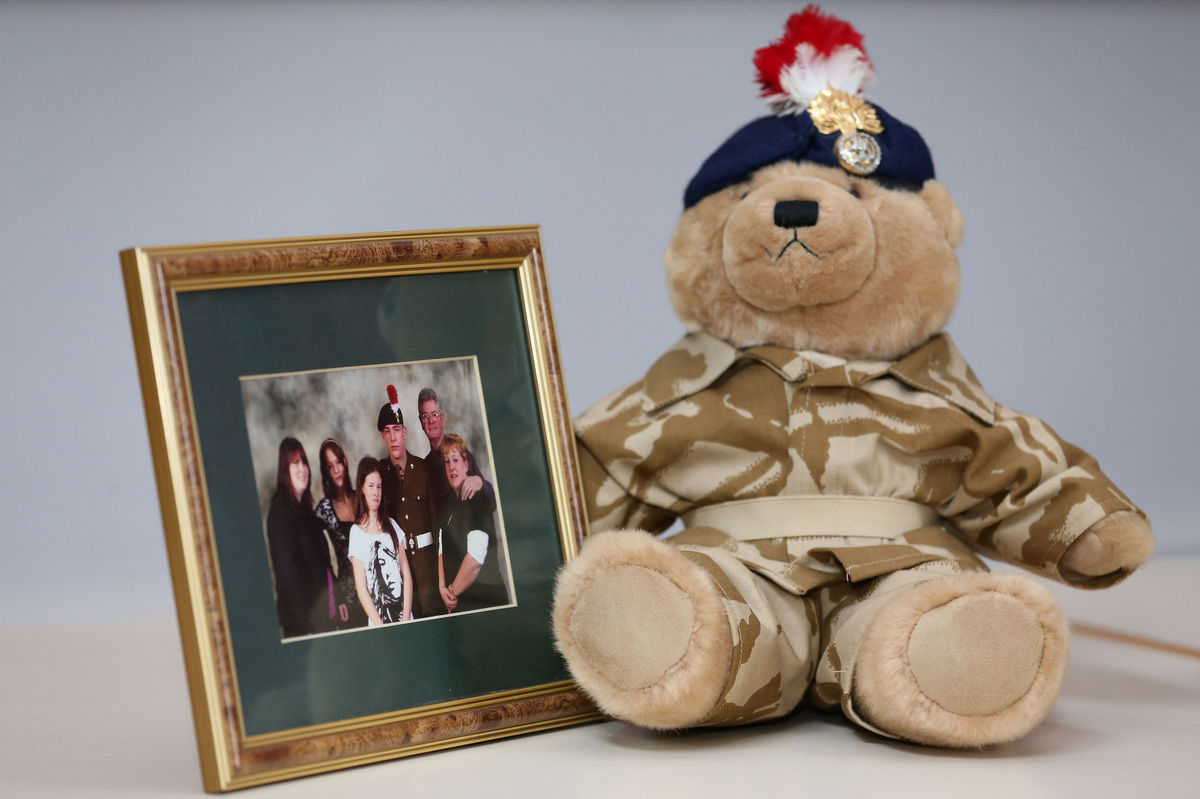
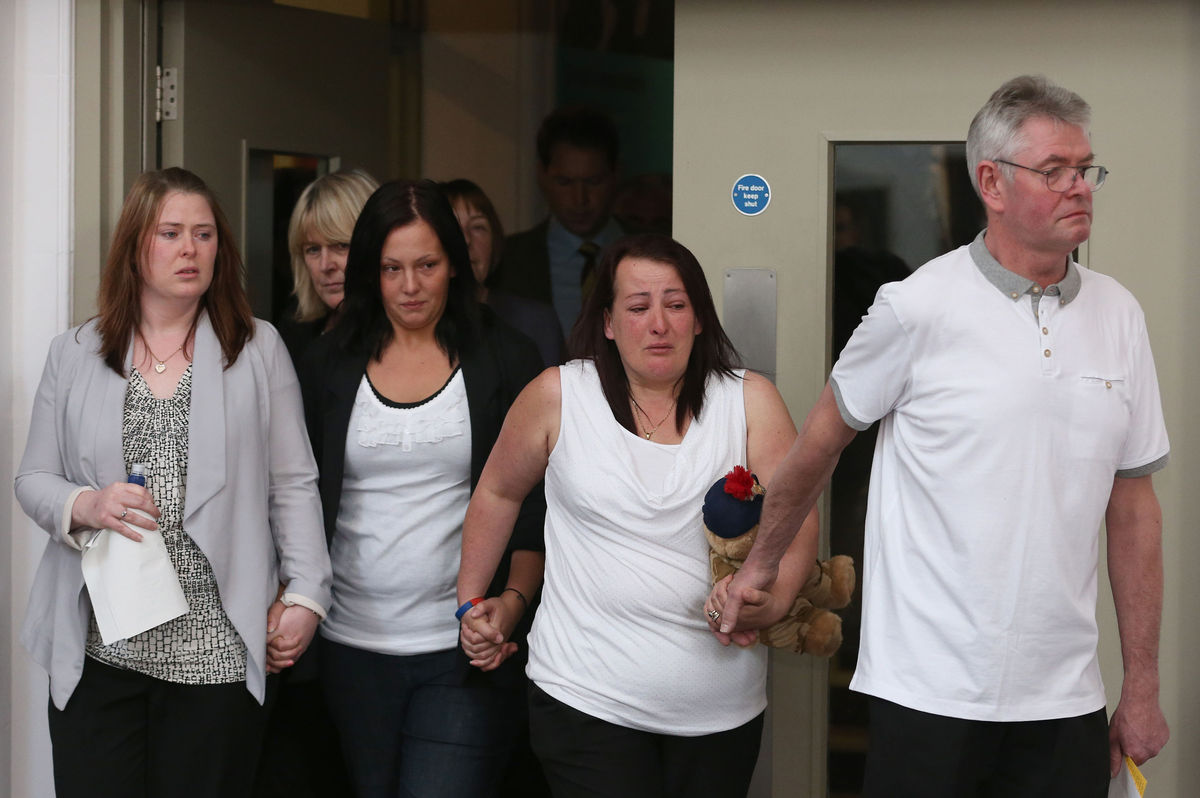
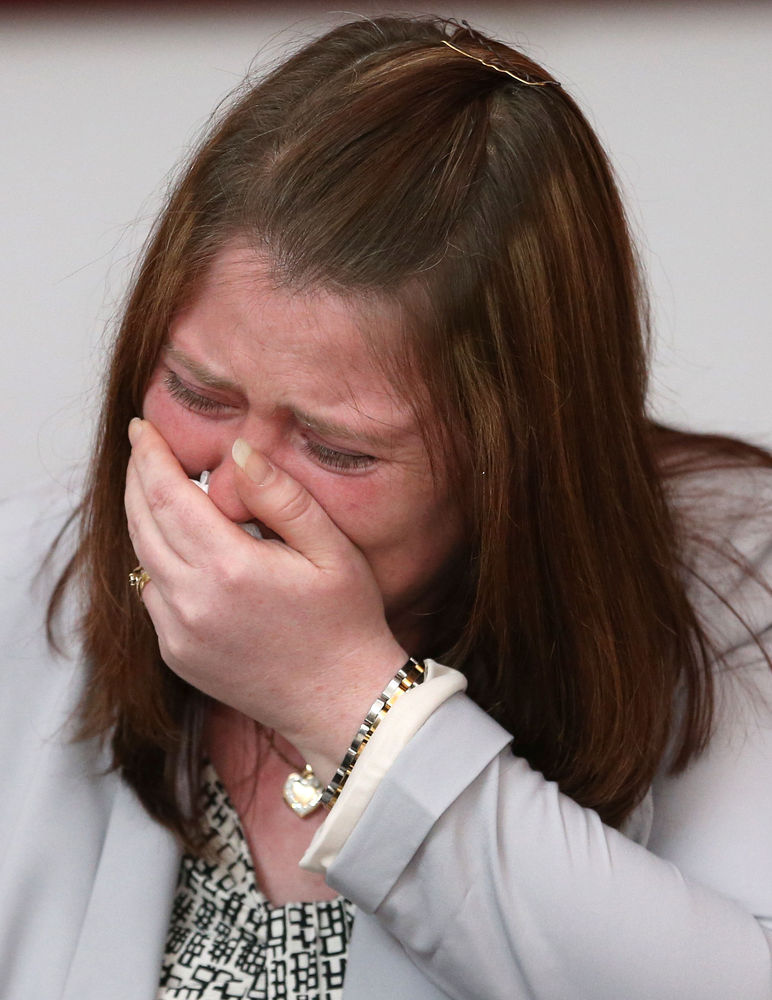
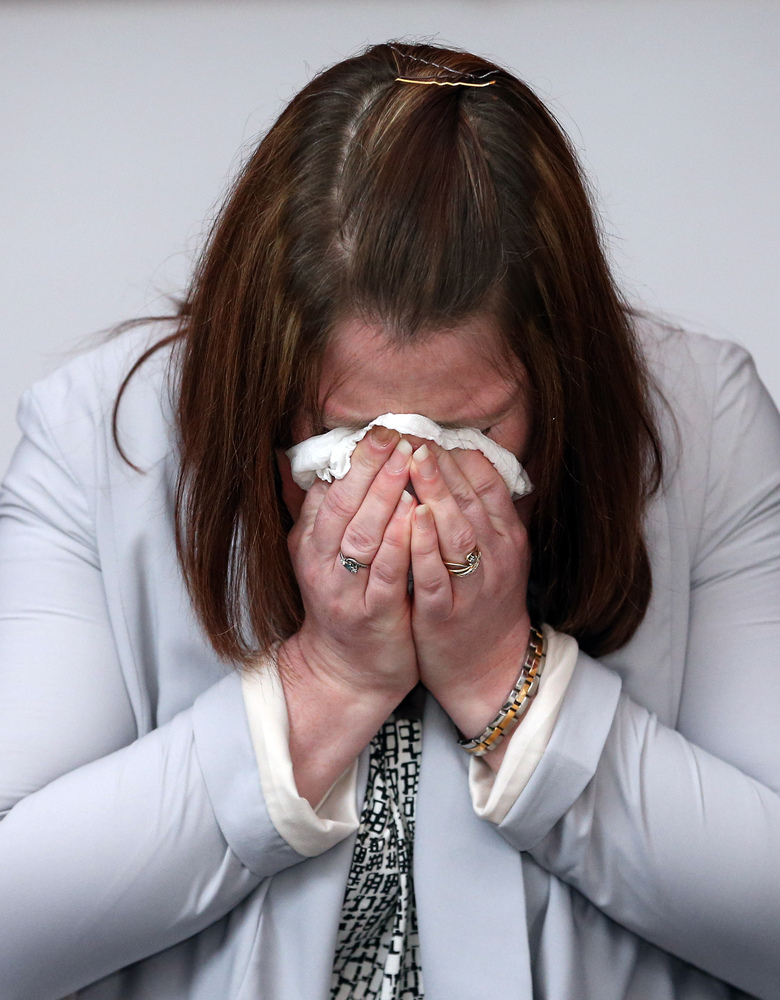
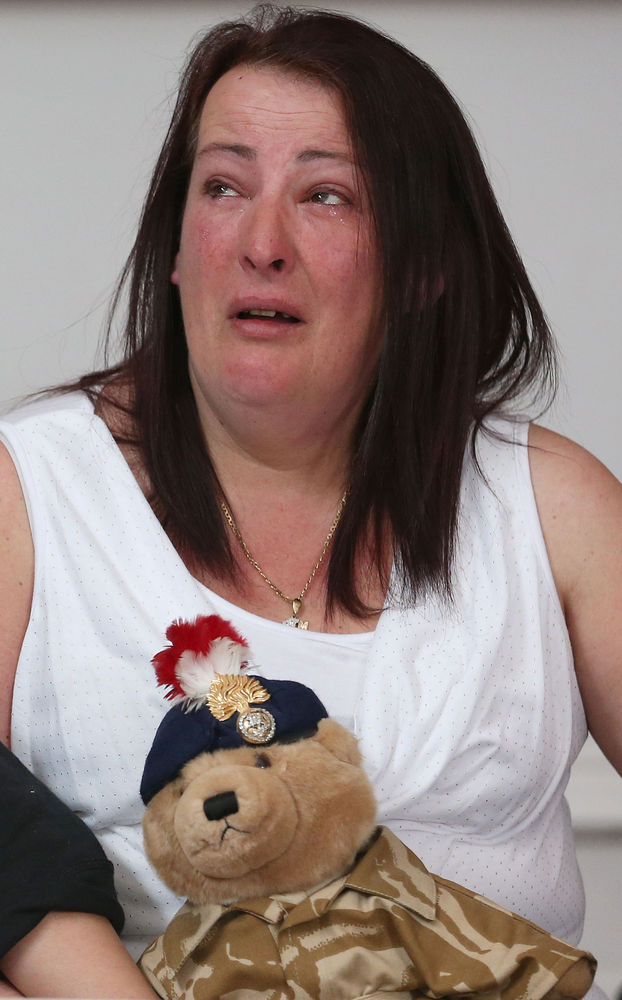
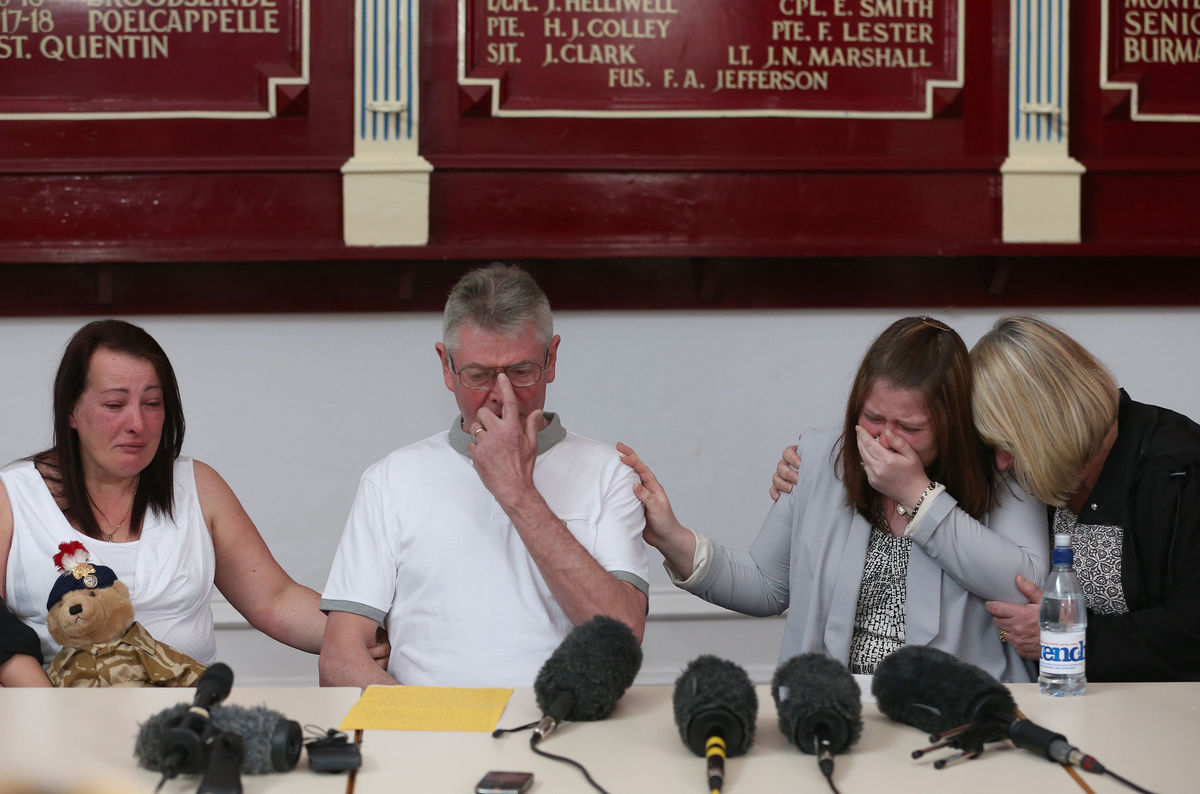
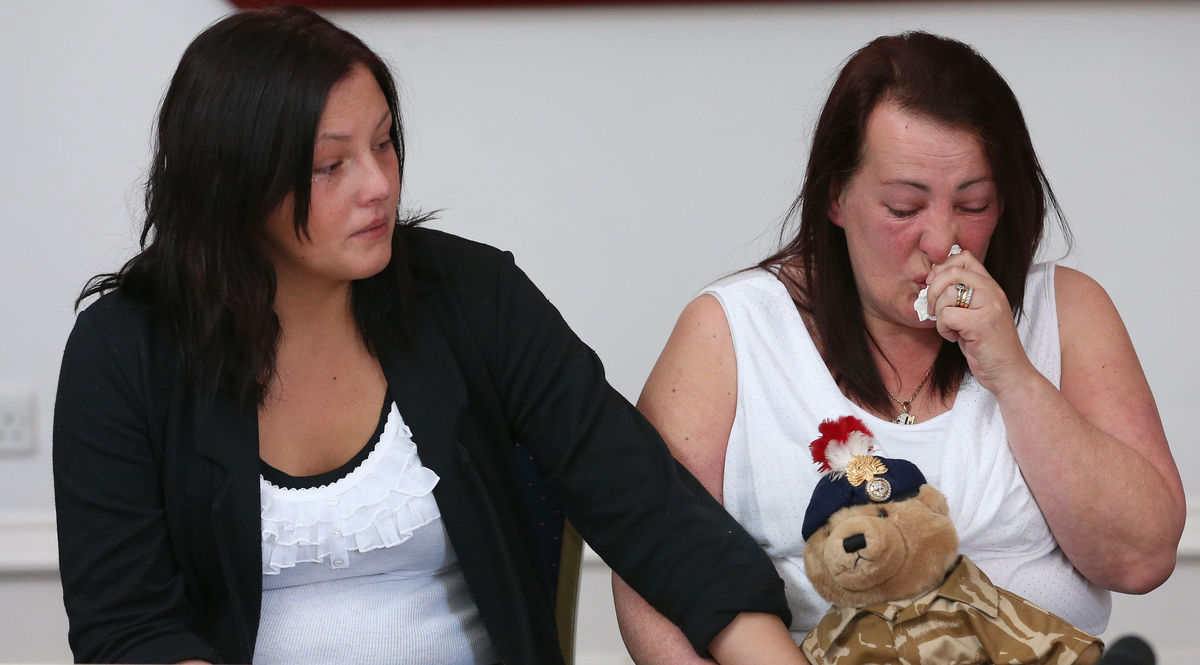
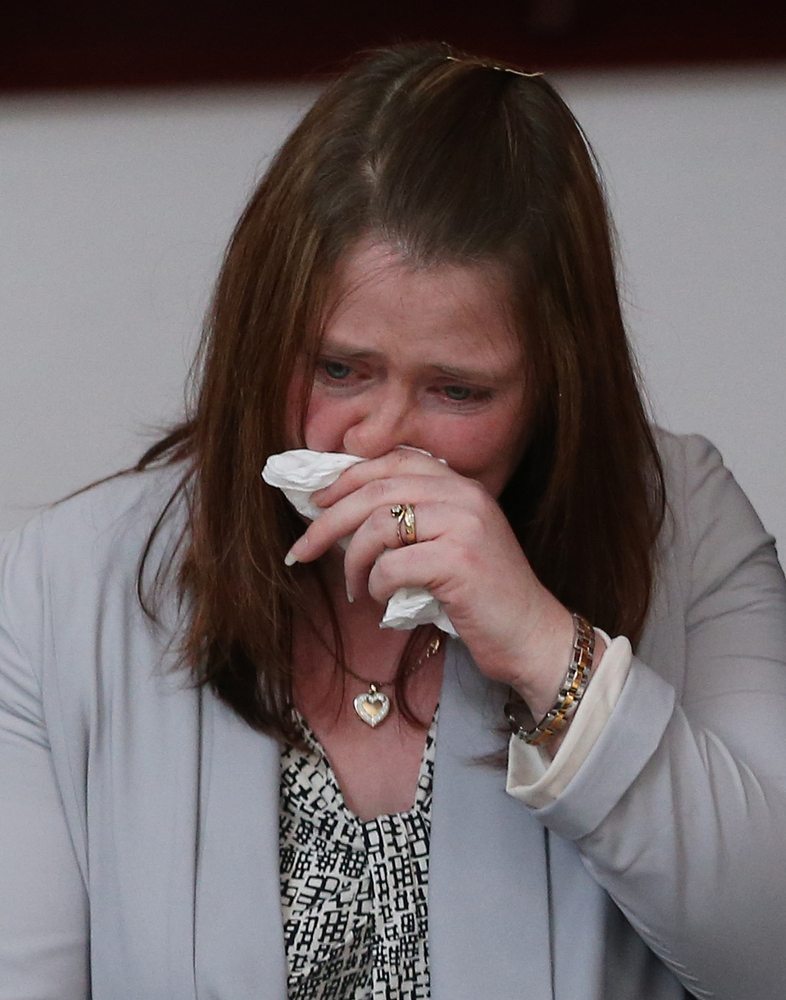
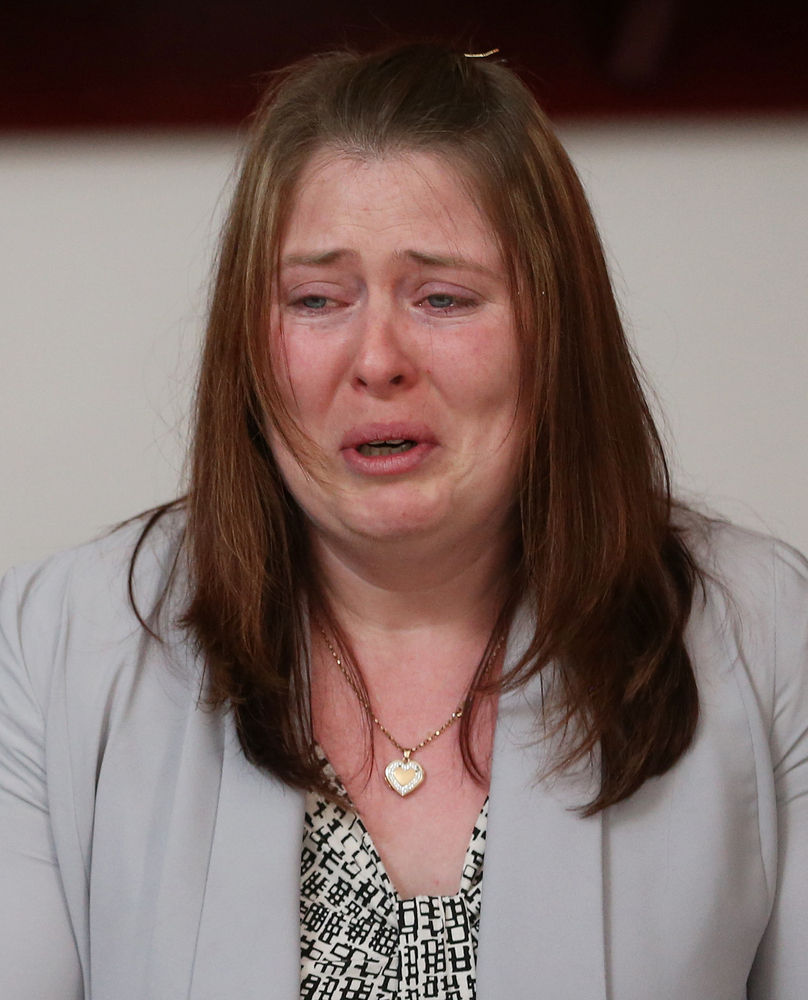
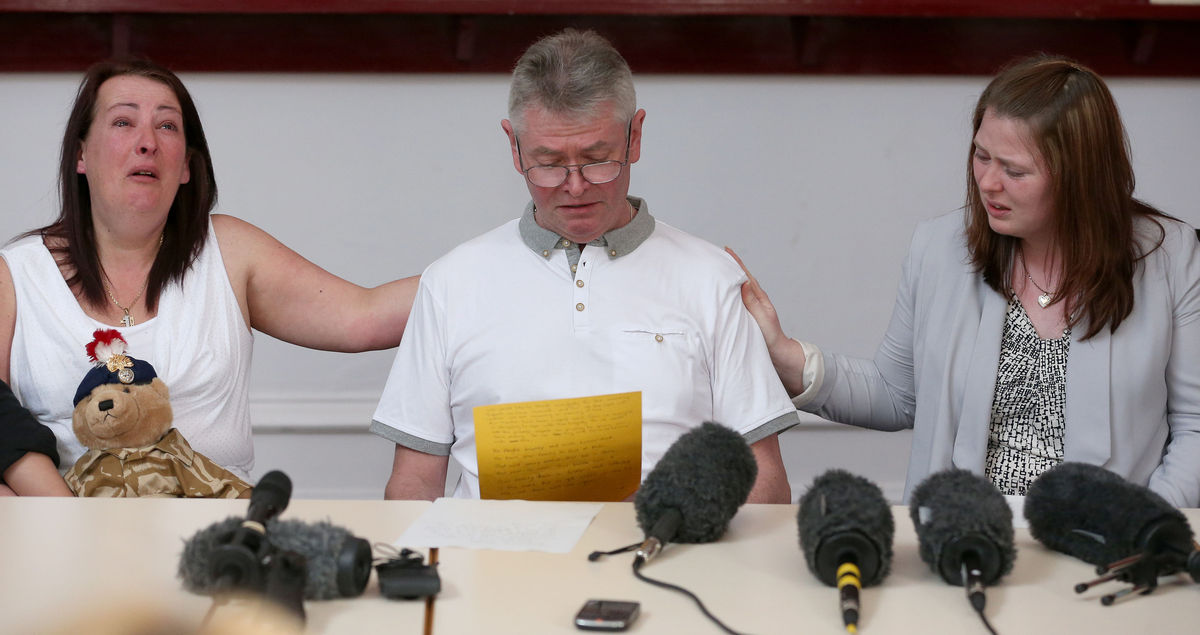
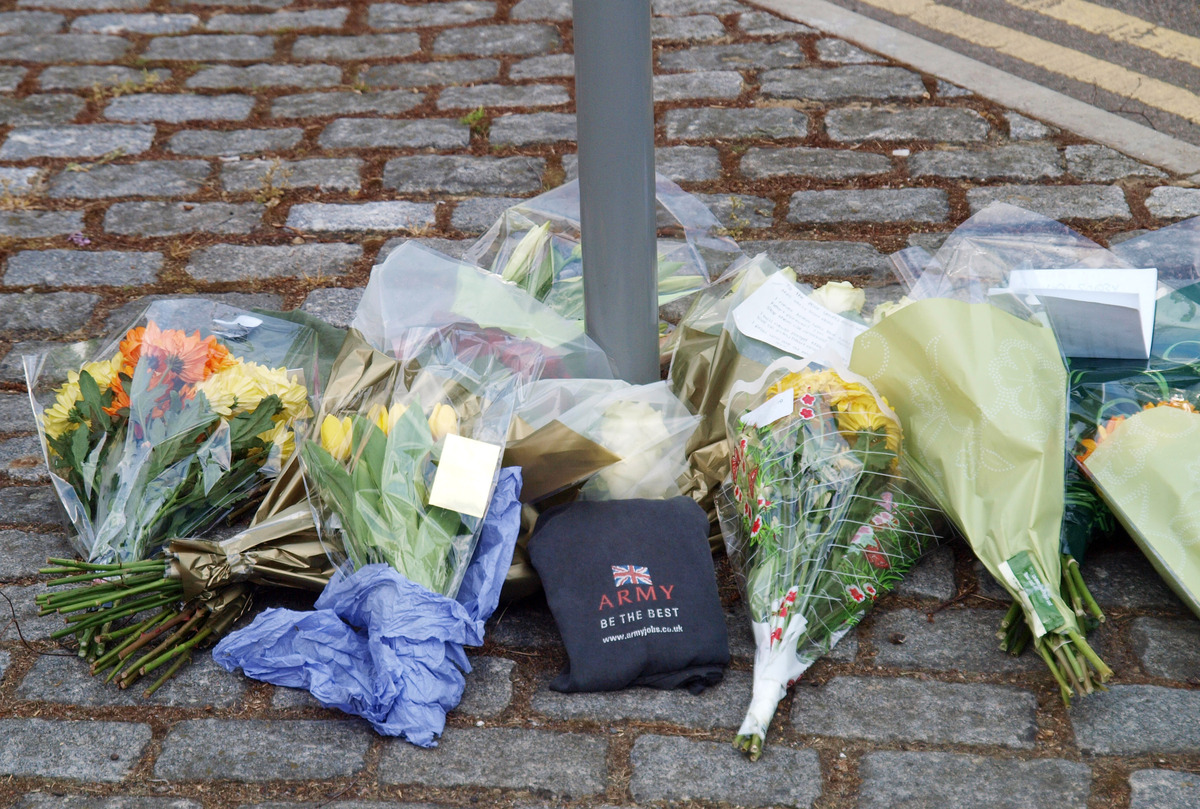
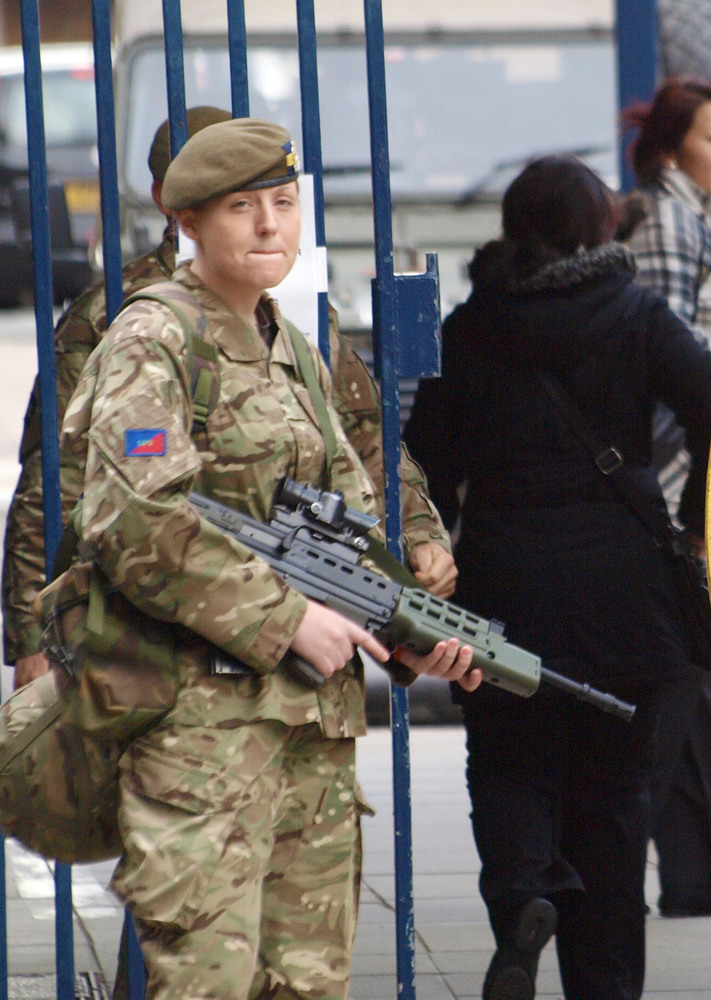
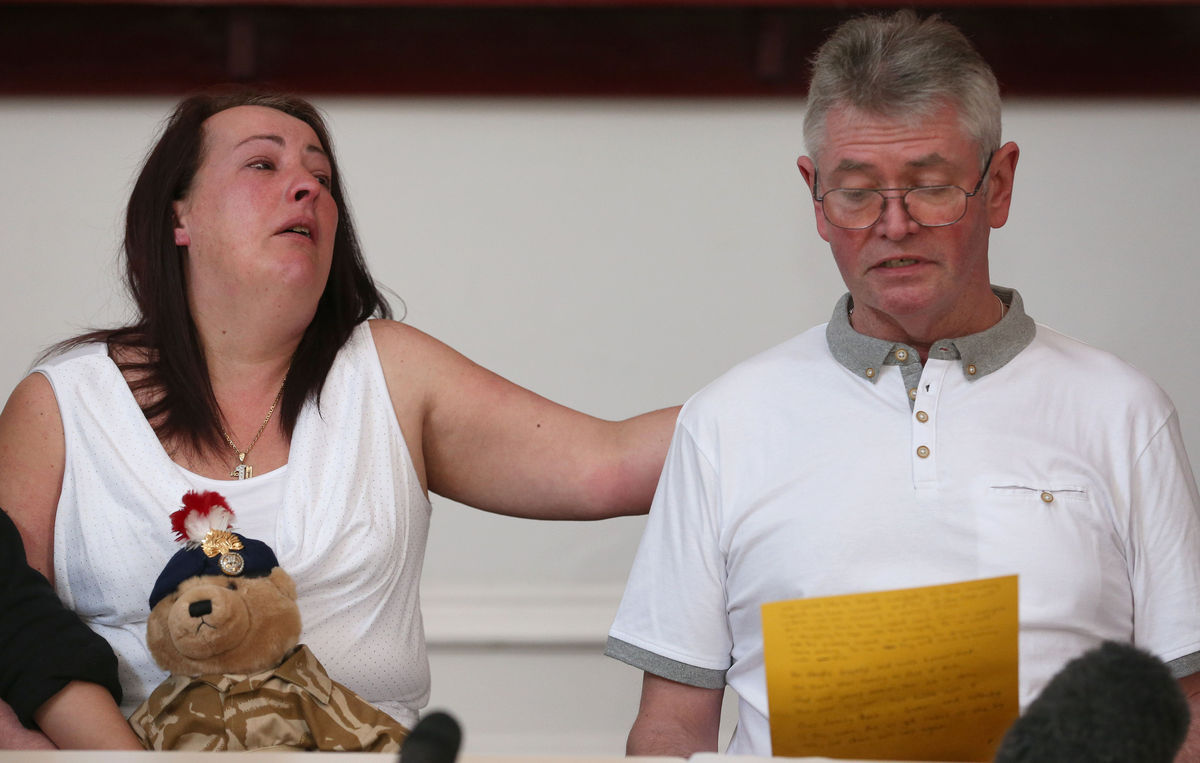
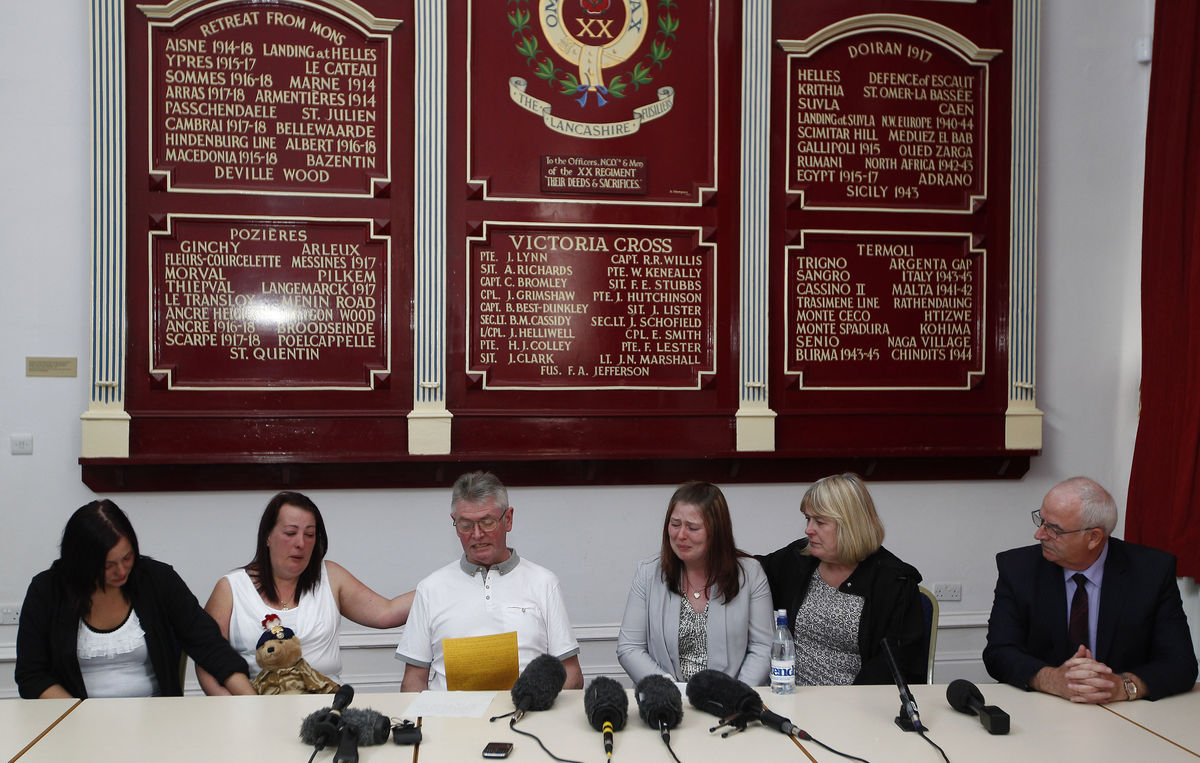
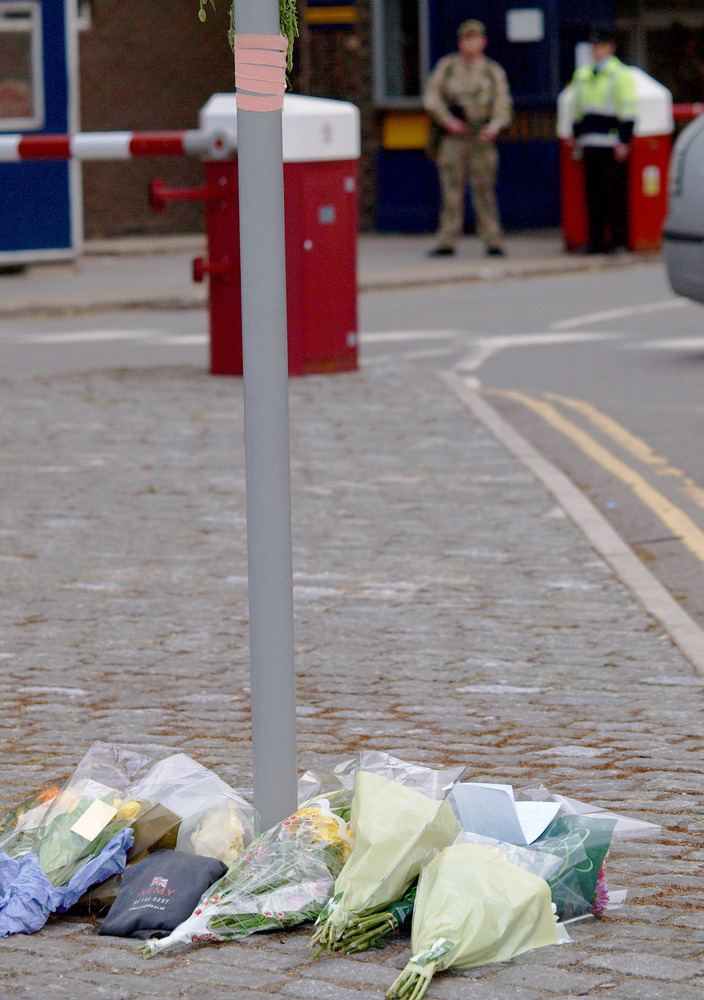
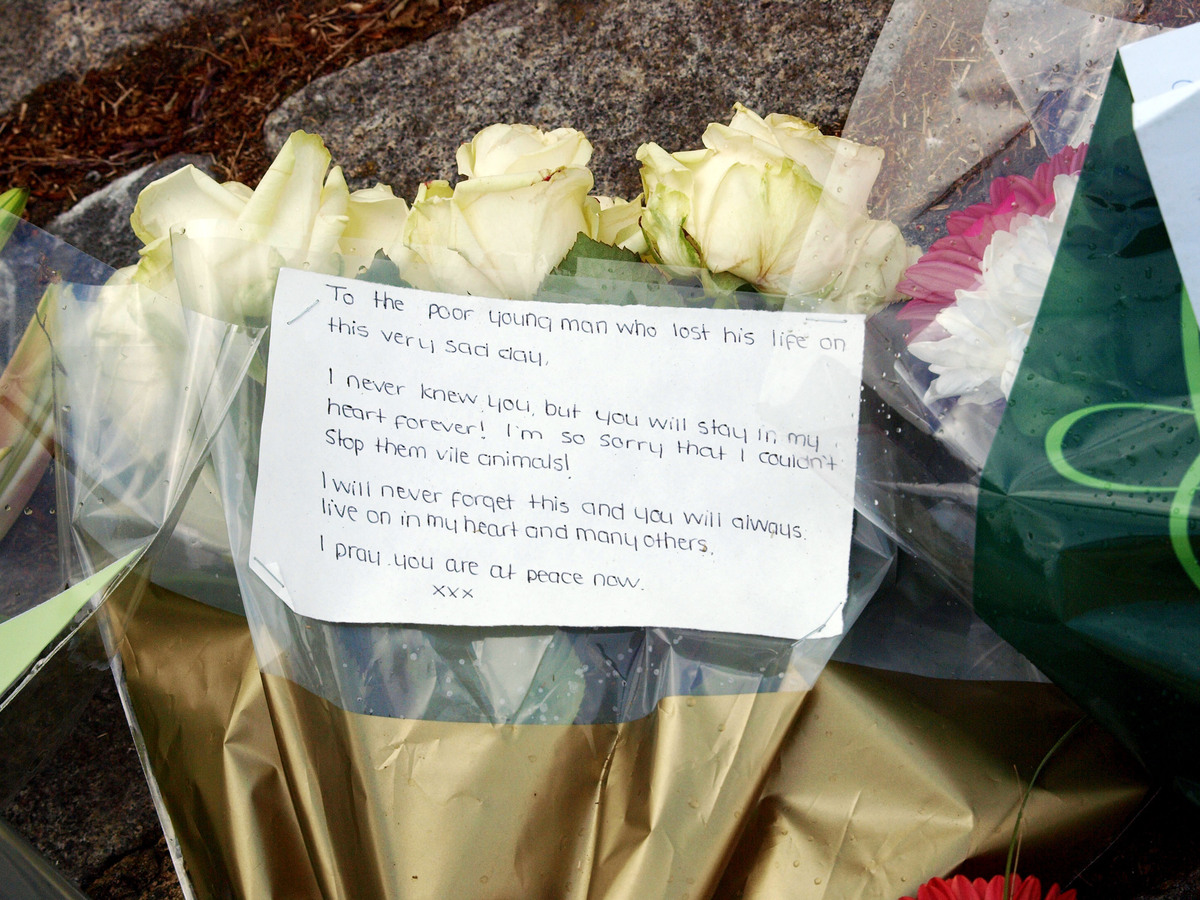
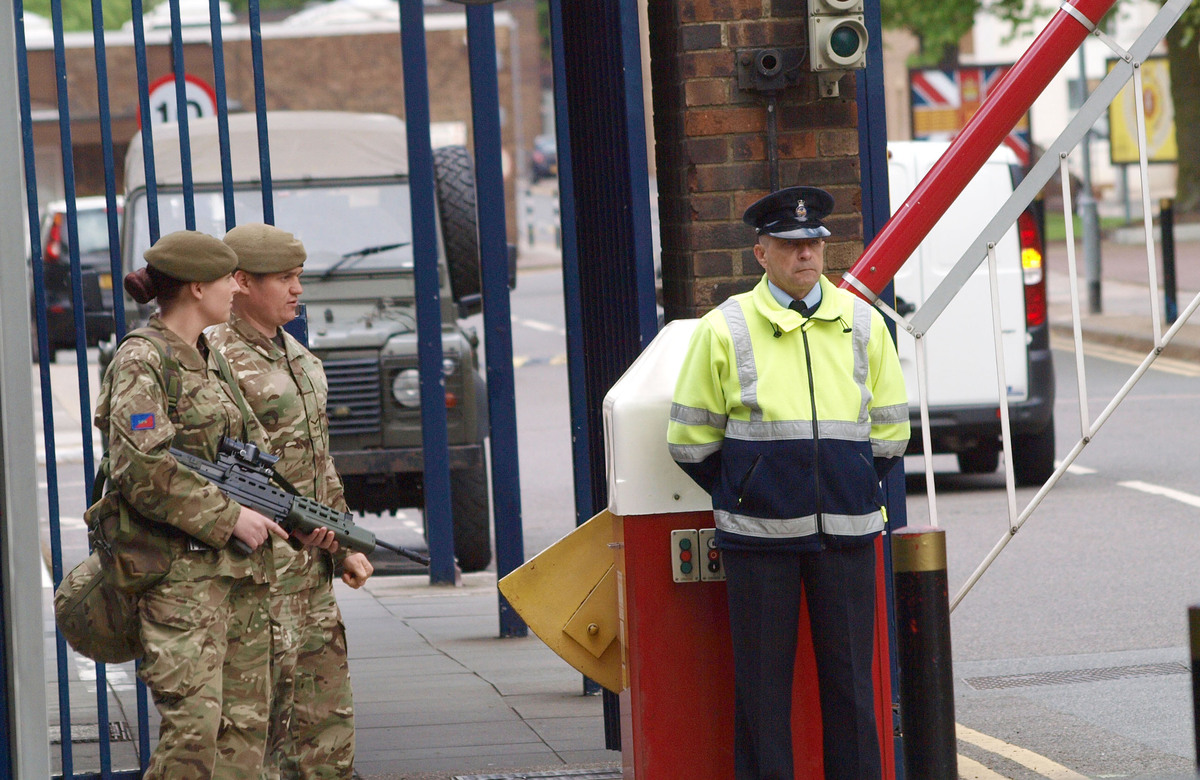
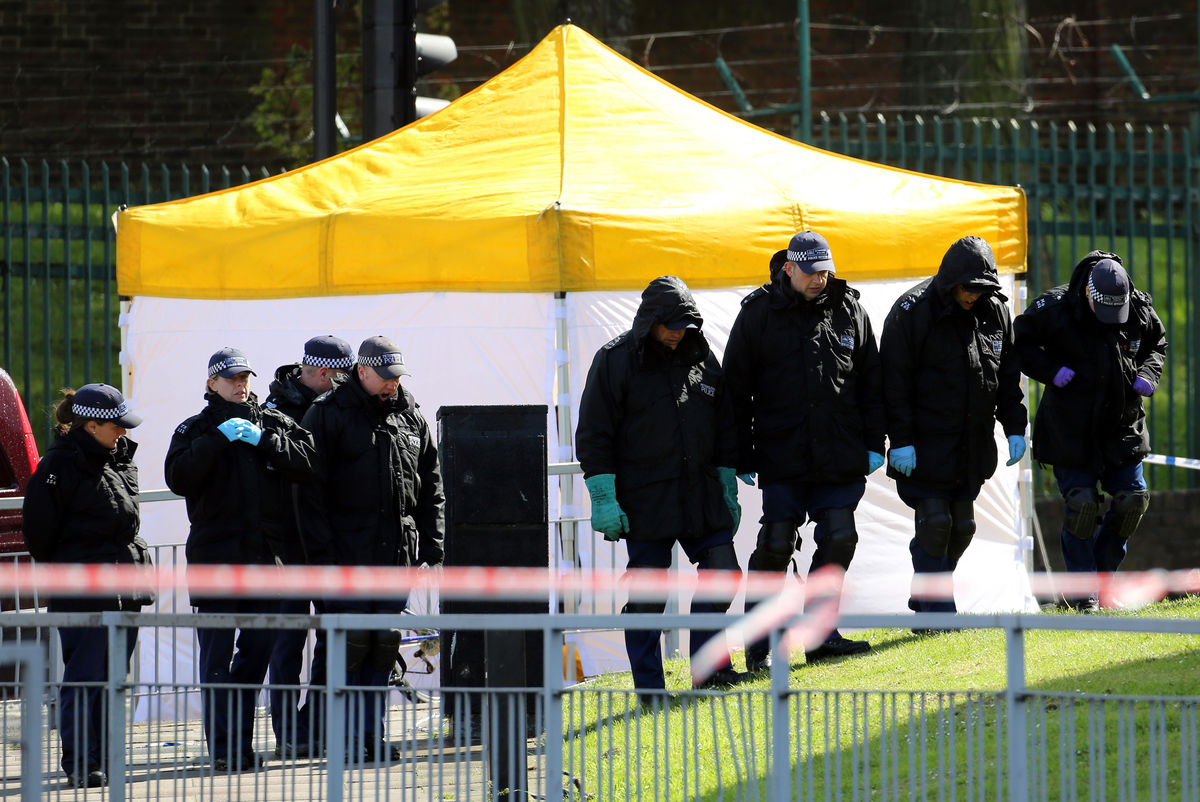
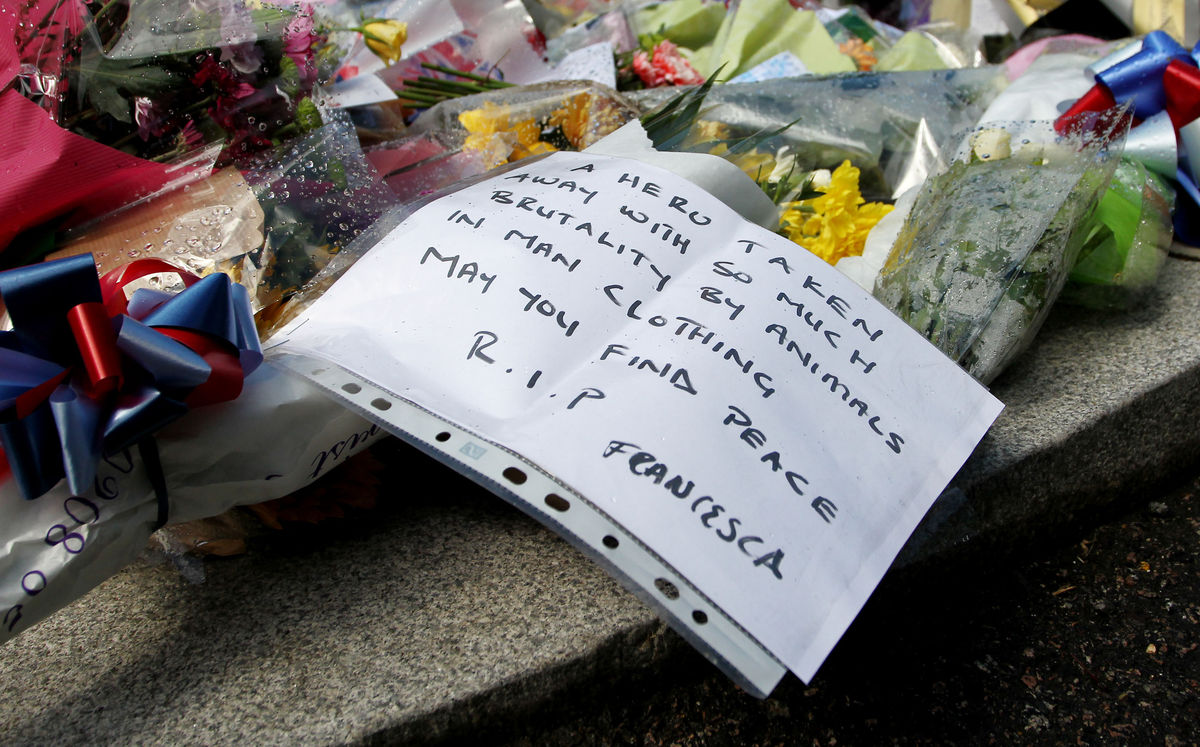
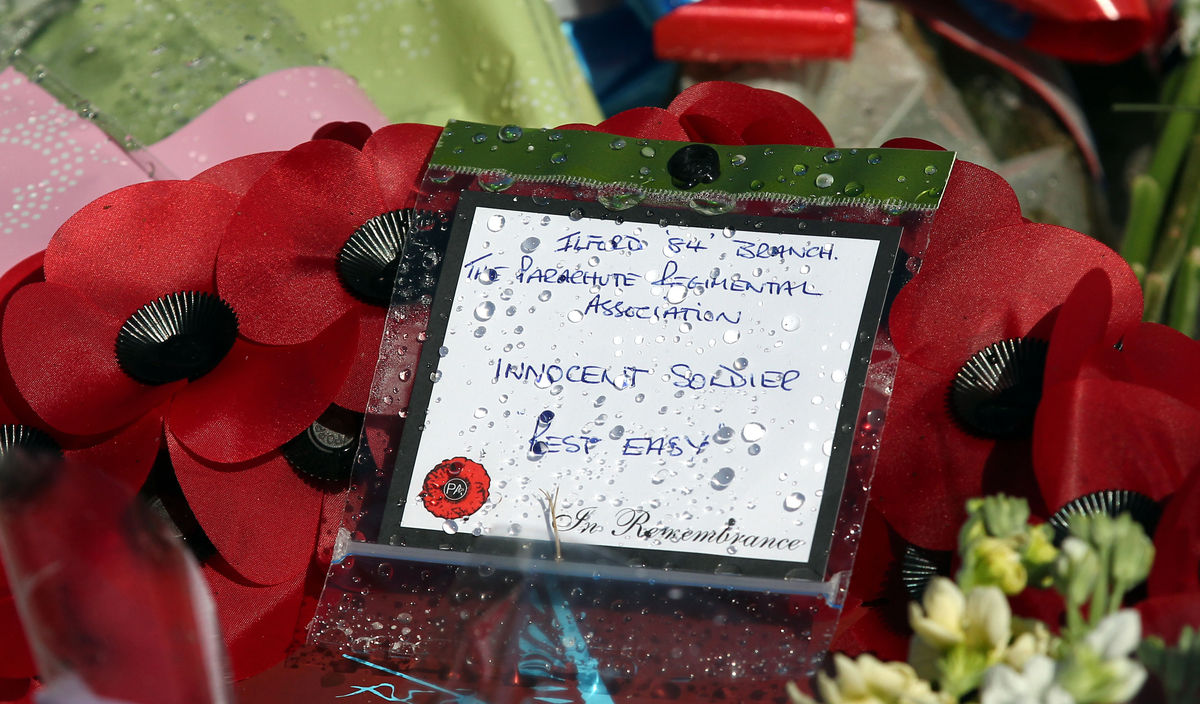
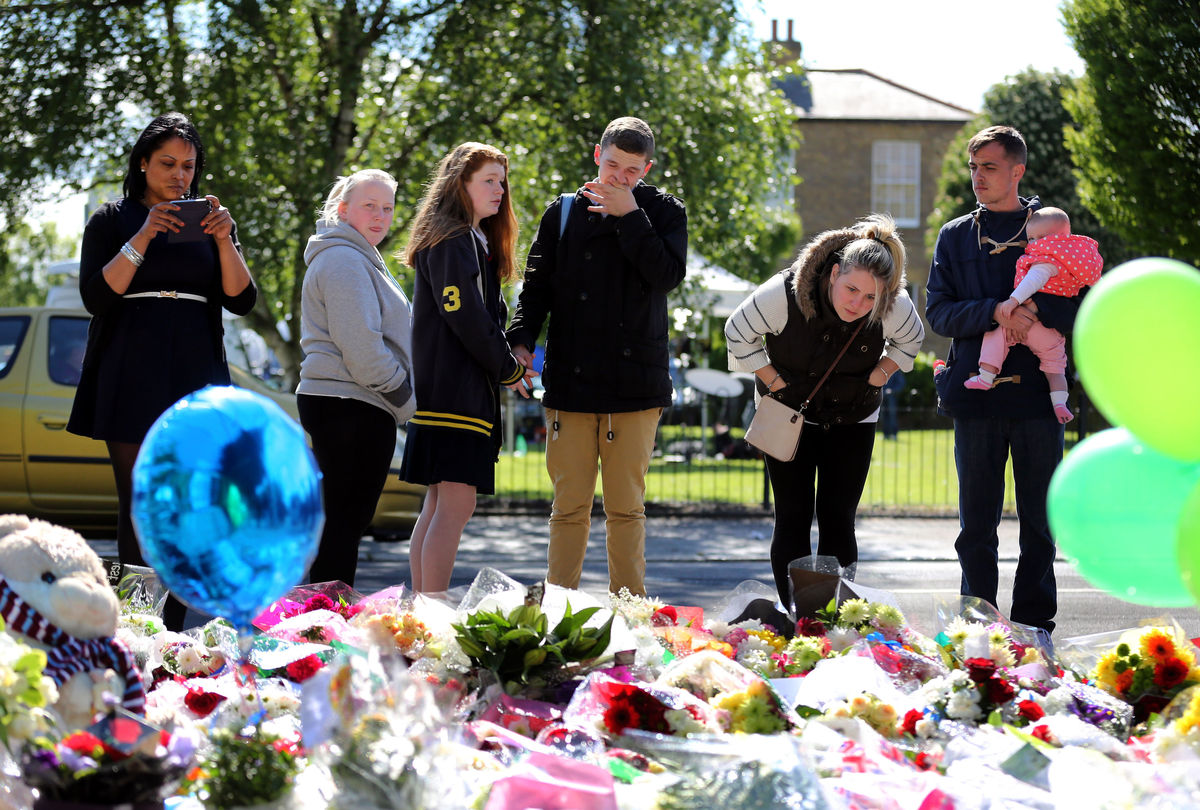
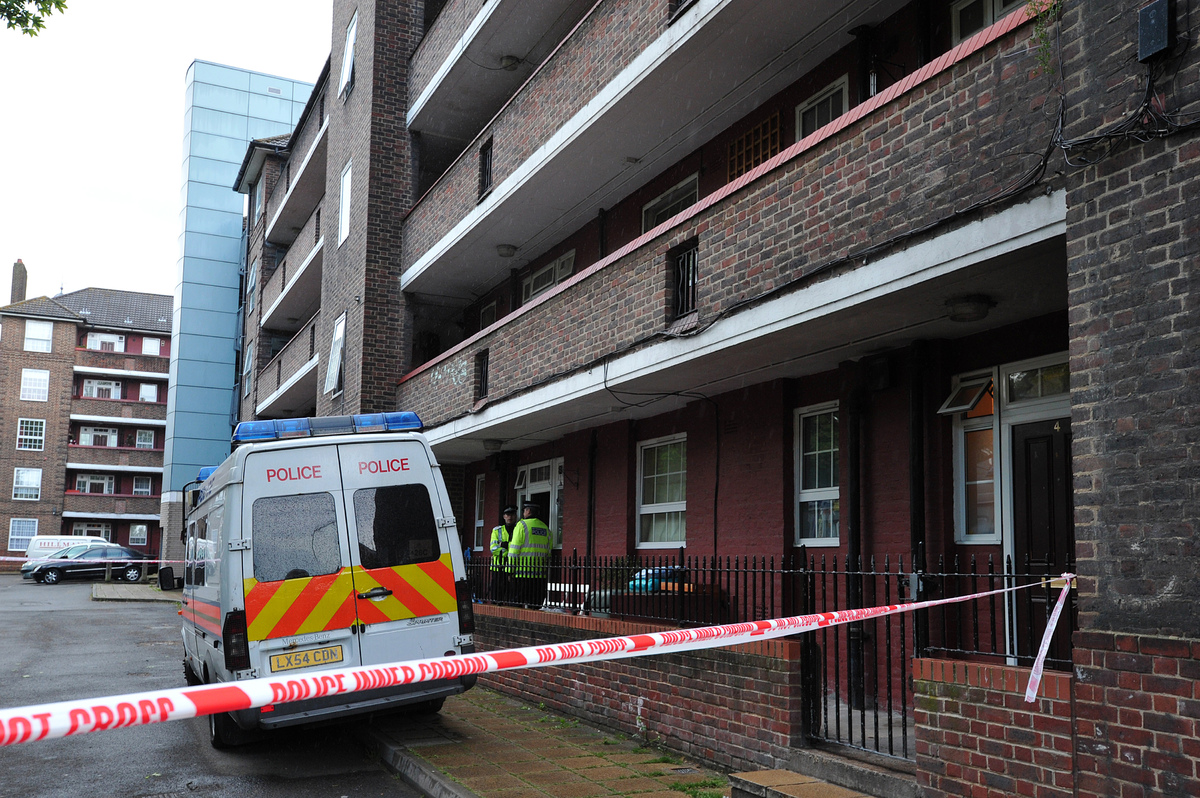
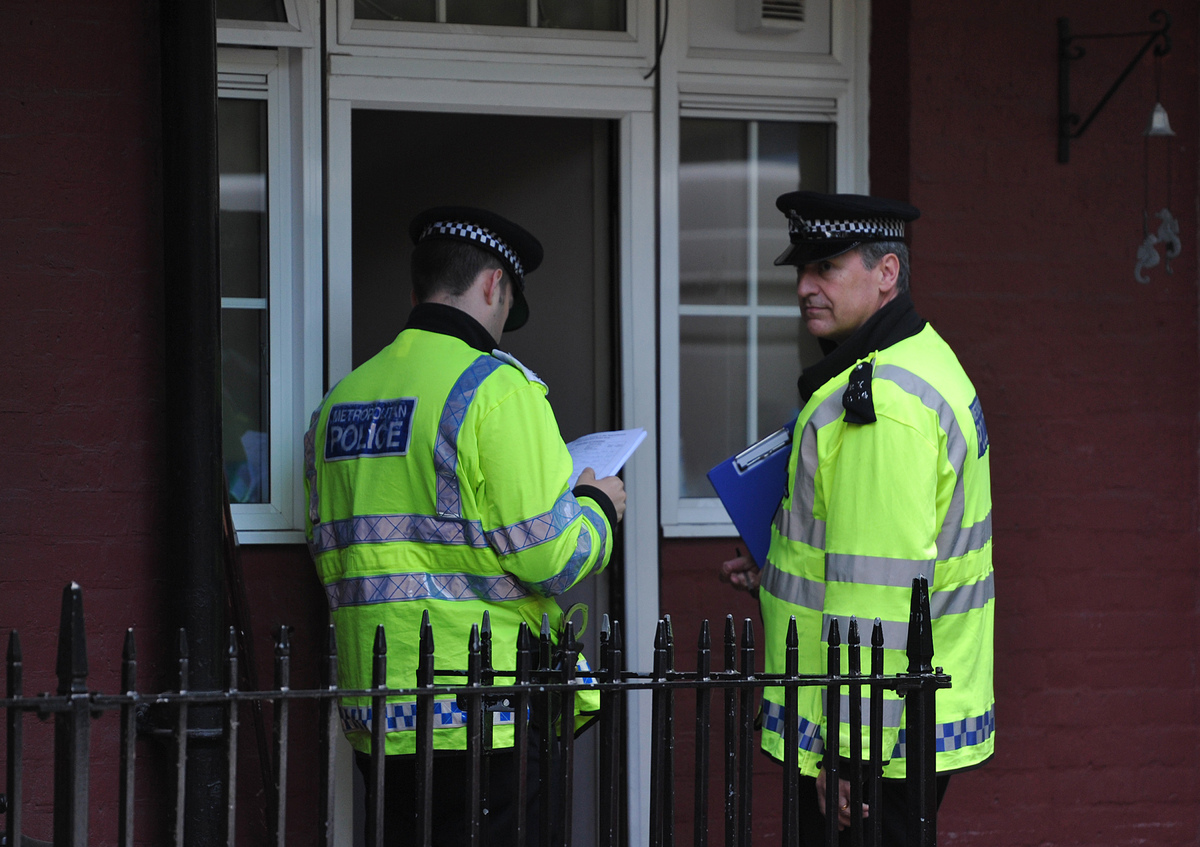
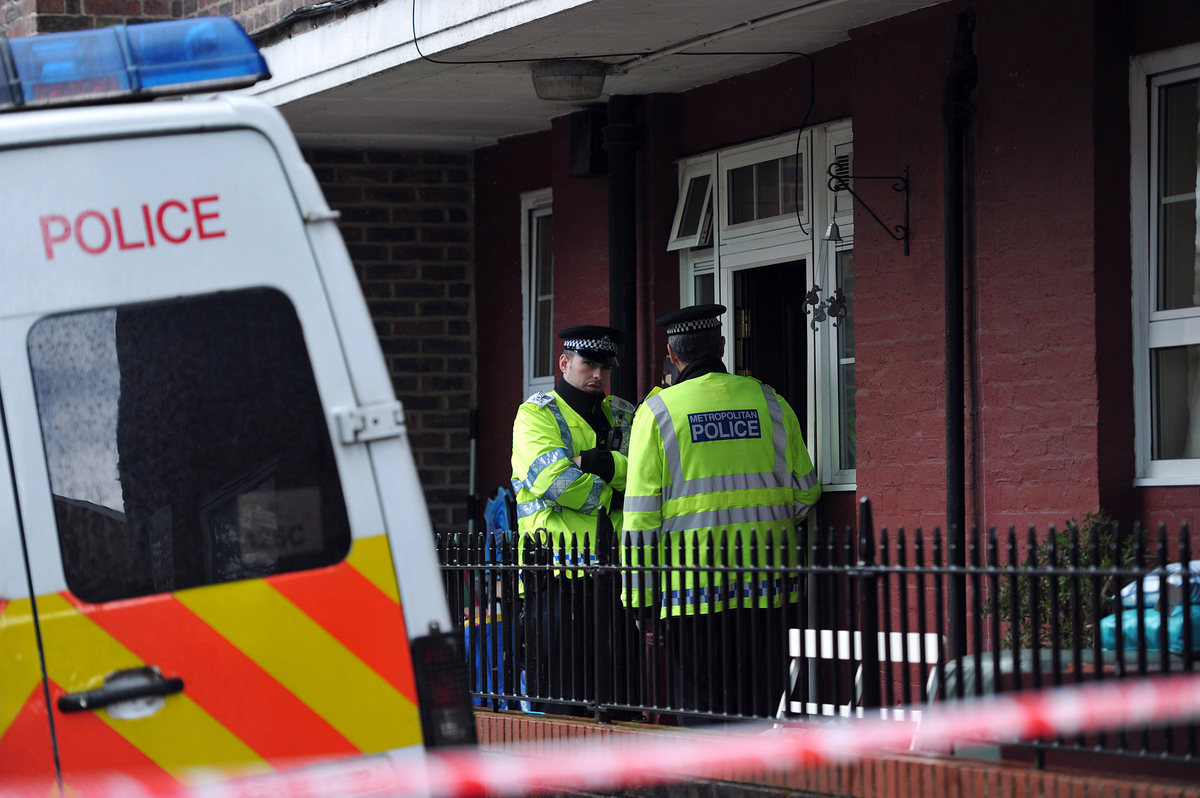
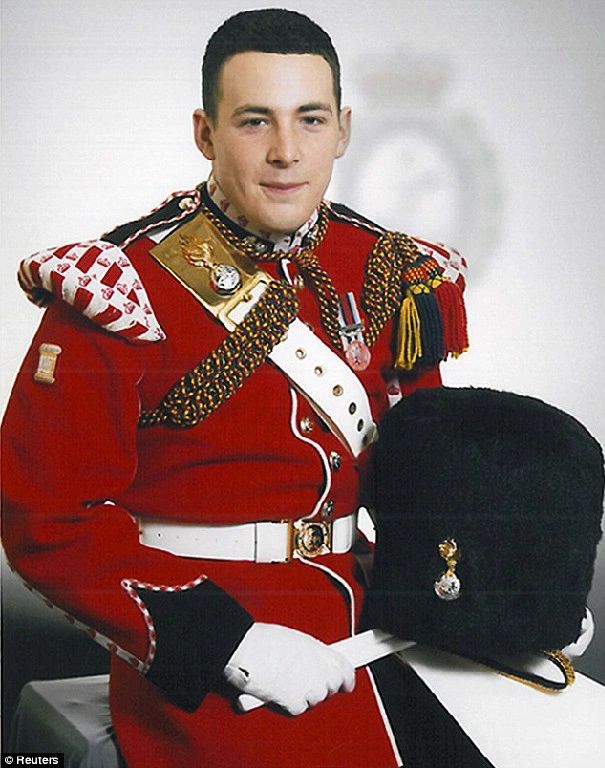












 Pat Finucane: A controversial killing
Pat Finucane: A controversial killing



 Thomas Allwood on the 21st June, 2013 in Broxburn, Scotland...as they were accused of being involved in
Thomas Allwood on the 21st June, 2013 in Broxburn, Scotland...as they were accused of being involved in 





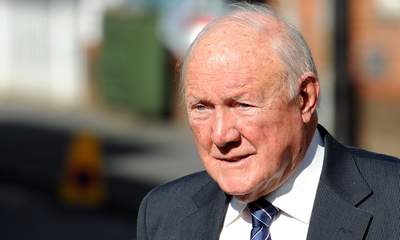
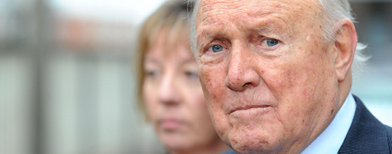

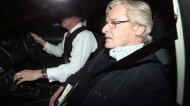






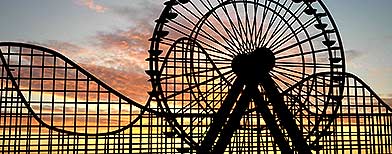

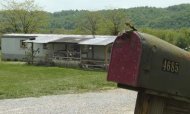
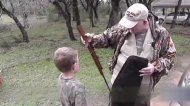
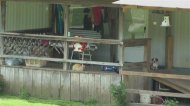
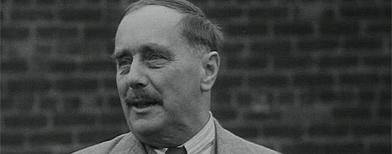












































 story
story story
story
 story
story
 story
story
 story
story
 story
story






 First offender Kyle Montgomery will be sentenced next month for the killing
First offender Kyle Montgomery will be sentenced next month for the killing











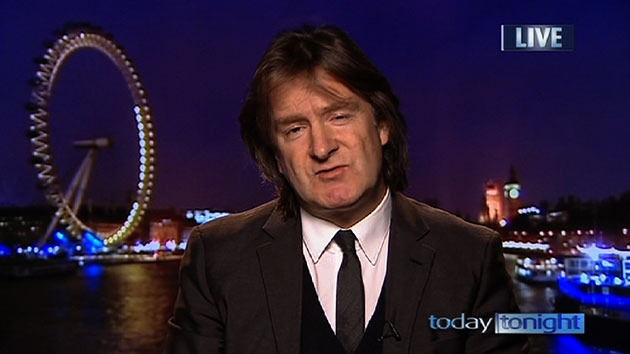






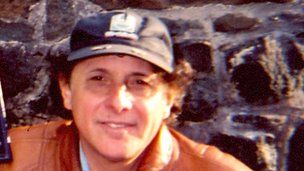
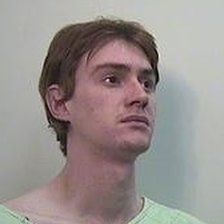
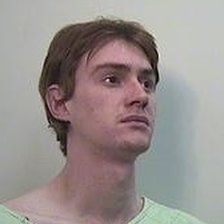
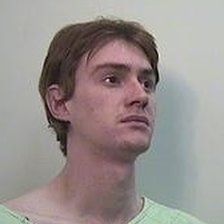
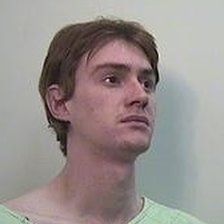
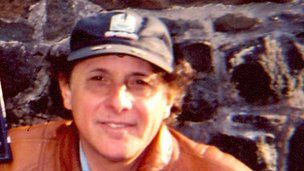
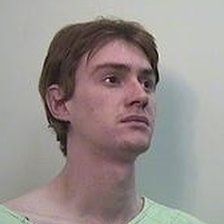
































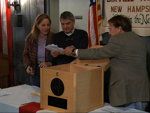











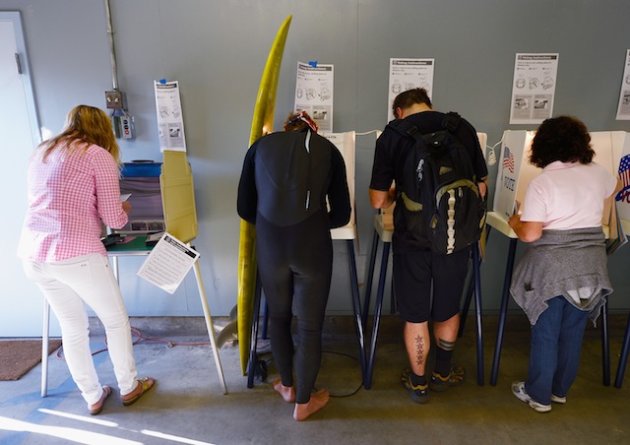

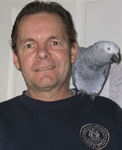



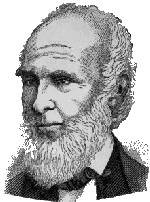
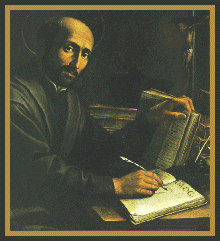



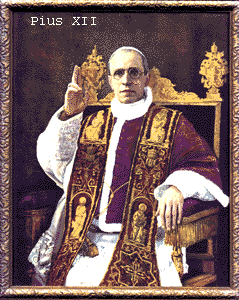









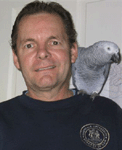 One question this Sunday is whether the Jesuits are an association of highly organized warrior priests? Another question is why has history covered important facts behind alleged Jesuit involvement in the assassination of Abraham Lincoln, as well as why did the U.S. government cut-off all diplomatic relations with the Vatican in 1867 as a result of its alleged connection with the murder of Lincoln?
One question this Sunday is whether the Jesuits are an association of highly organized warrior priests? Another question is why has history covered important facts behind alleged Jesuit involvement in the assassination of Abraham Lincoln, as well as why did the U.S. government cut-off all diplomatic relations with the Vatican in 1867 as a result of its alleged connection with the murder of Lincoln?
 THE strikes upon the World Trade Center and the Pentagon on September 11, 2001 marked a pivotal point in the evolution of the "experiment of popular government". What followed has been nothing short of a pronounced continuation of a religious war, which had its origins in the Middle Ages, using the armed forces of a compliant host nation or alliance of nations according to the wishes of the Papacy. The ultimate goal is the eventual re-location of this so-called "Chair of Peter" to Jerusalem in order to direct and control all the people of the earth and the complete destruction of anything not in accord with Her dictates. Chief among these ideals, which are hated by the Church of Rome, are freedom of conscience, freedom of religion, freedom of the press and freedom of association; in fact, every fundamental freedom on which the United States was founded.
THE strikes upon the World Trade Center and the Pentagon on September 11, 2001 marked a pivotal point in the evolution of the "experiment of popular government". What followed has been nothing short of a pronounced continuation of a religious war, which had its origins in the Middle Ages, using the armed forces of a compliant host nation or alliance of nations according to the wishes of the Papacy. The ultimate goal is the eventual re-location of this so-called "Chair of Peter" to Jerusalem in order to direct and control all the people of the earth and the complete destruction of anything not in accord with Her dictates. Chief among these ideals, which are hated by the Church of Rome, are freedom of conscience, freedom of religion, freedom of the press and freedom of association; in fact, every fundamental freedom on which the United States was founded.

 The next event was the death of Pope John Paul II. If anyone has doubts as to the political power the Roman Church has, these doubts were laid to rest as every national flag was lowered to half mast and every form of media all over North America, in the most worshipful manner bowed the knee, like those in Nebuchadnezzar's time and those in the days of the Caesars, to the man who claims to stand in the place of Almighty God. In this case a man who, while under Nazi occupation in Poland, vigorously helped to produce and sell 'Zyklon B' for chemical company I.G. Farben, a nerve gas which was used to kill those wholesale in the death camps of Europe. A man who, in spite of one of the world's greatest outbreaks of primarily homosexual pedophilia by Roman priests in recent memory, virtually swept the whole matter under the rug until he was finally forced to react by an outraged public. A man who presided over the Roman priesthood's led and encouraged genocide in Rwanda and the religious mass murders in the Balkans. A real godly man, n'est pas? Apparently every major political leader from around the world and representatives from every major religion thought so.
The next event was the death of Pope John Paul II. If anyone has doubts as to the political power the Roman Church has, these doubts were laid to rest as every national flag was lowered to half mast and every form of media all over North America, in the most worshipful manner bowed the knee, like those in Nebuchadnezzar's time and those in the days of the Caesars, to the man who claims to stand in the place of Almighty God. In this case a man who, while under Nazi occupation in Poland, vigorously helped to produce and sell 'Zyklon B' for chemical company I.G. Farben, a nerve gas which was used to kill those wholesale in the death camps of Europe. A man who, in spite of one of the world's greatest outbreaks of primarily homosexual pedophilia by Roman priests in recent memory, virtually swept the whole matter under the rug until he was finally forced to react by an outraged public. A man who presided over the Roman priesthood's led and encouraged genocide in Rwanda and the religious mass murders in the Balkans. A real godly man, n'est pas? Apparently every major political leader from around the world and representatives from every major religion thought so. The Jesuits killed Lincoln and buried the evidence. But just as water seeks its own level, so does the truth eventually surface and make itself known. Deception and denial are only band-aids in the modern day world of intelligence, tooled by the Internet and other high tech investigative systems. Today anyone can become a good detective. If it had not been myself, someone else would have undertaken the task of doing the digging and piecing together the true story of President Lincoln's assassination.
The Jesuits killed Lincoln and buried the evidence. But just as water seeks its own level, so does the truth eventually surface and make itself known. Deception and denial are only band-aids in the modern day world of intelligence, tooled by the Internet and other high tech investigative systems. Today anyone can become a good detective. If it had not been myself, someone else would have undertaken the task of doing the digging and piecing together the true story of President Lincoln's assassination.